Special Report
The Most Important Event in the Life of Queen Elizabeth in Every Year of Her Reign
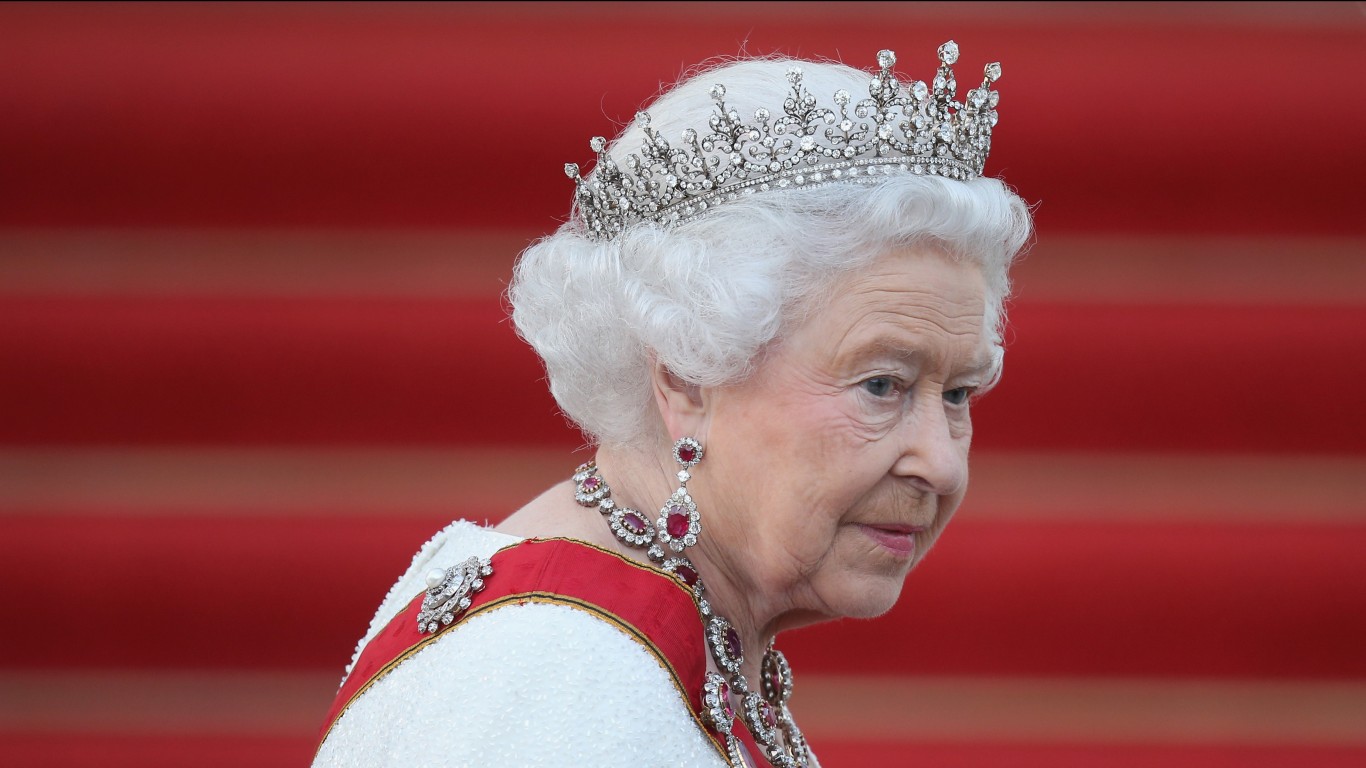
Published:
Last Updated:

Queen Elizabeth II died Sept. 8 at the age of 96 at Balmoral Castle, her estate in the Scottish Highlands.
The Queen, and by extension, the British royal family, is the most famous and talked-about in the world. While their titles and powers are largely ceremonial today — the power of the monarchy has been in decline since the signing of Magna Carta in 1215 — their expansive wealth and property holdings are very real.
Queen Elizabeth II is the longest-reigning monarch in British history. Born in 1926, she took the throne in 1952. During her reign, the United Kingdom has undergone drastic changes, among other things seeing the decline of the British Empire, “The Troubles” in Northern Ireland, and the nation first entering and then leaving the European Union. Then, too, there have been personal or family crises and controversies along the way.
Royalty has its perks, like expenses paid by the state, control of historic properties, and a full staff of aides and helpers. However, it can also mean a lifetime in the spotlight. Some lesser royals may be able to enjoy their wealth and prestige without being the focus of constant media attention, but the monarch and her immediate family are held to a higher standard.
To determine what are likely to have been the most important events in the life of Queen Elizabeth for every year of her reign, 24/7 Tempo reviewed sources including the BBC and the U.K.’s National Archives to find lists of significant events by year in the history of the United Kingdom and the world, as well as in Her Majesty’s personal life.
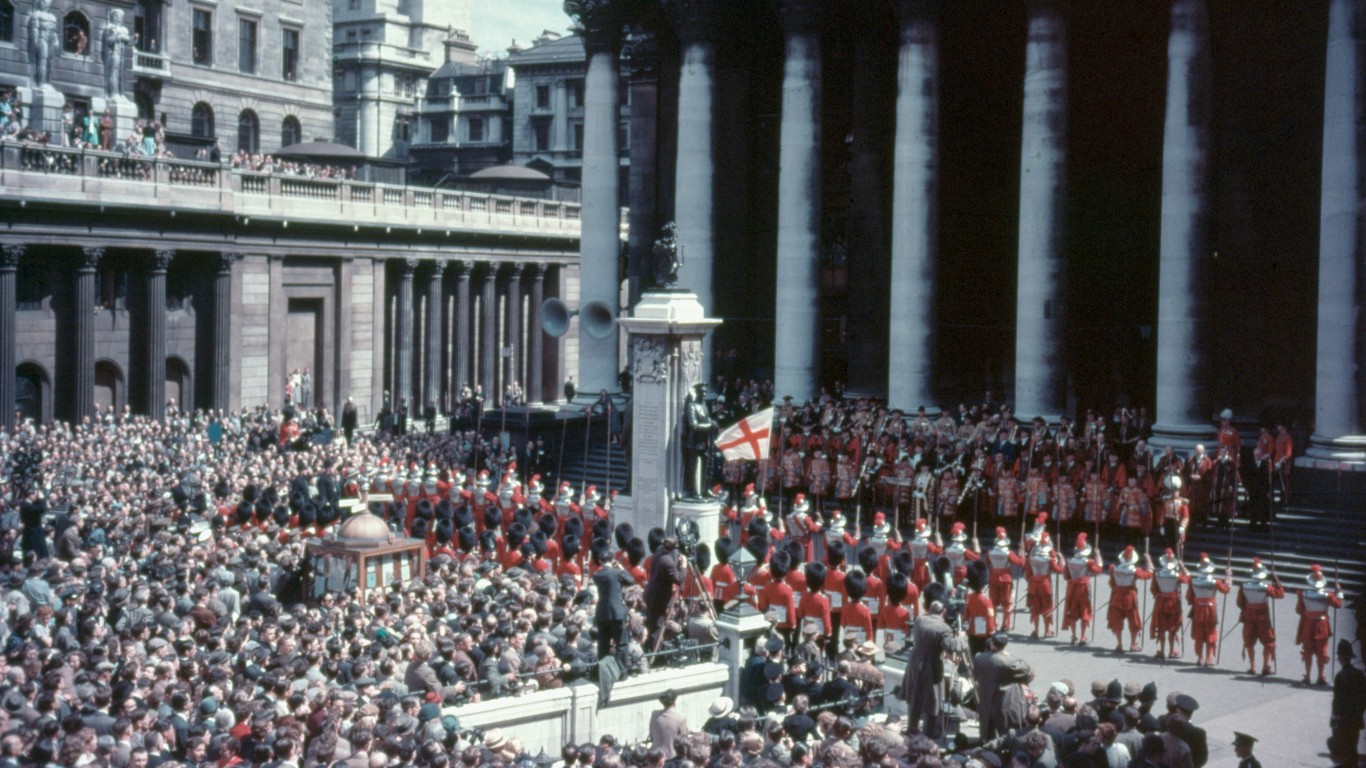
1952
> Event: Ascension to the throne
When Elizabeth’s father, King George VI, passed away in 1952, she became Queen Elizabeth II. (Elizabeth I, Queen of England and Ireland, ruled from 1558 to 1603.) She had already been standing in for her father at public events as his health declined. Her ascension ceremony was held in Westminster Abbey and was the first such event to be televised.
[in-text-ad]
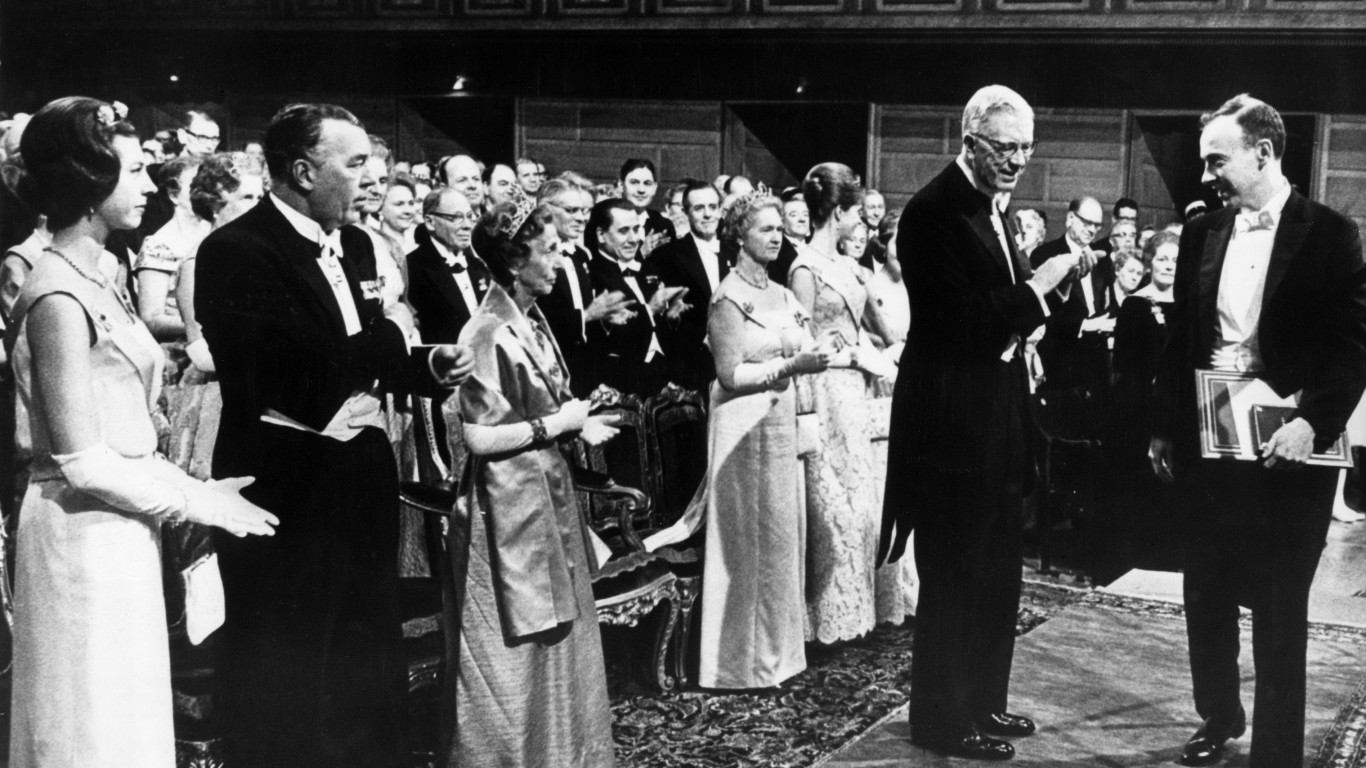
1953
> Event: Discovery of DNA
In the Queen’s second year on the throne, scientists Francis Crick of the U.K. and James Watson of the U.S. published a groundbreaking scientific article in which they claimed to have discovered “the secret of life” while working in a laboratory at the University of Cambridge. Other researchers collaborated with the two to identify the now famous double helix structure of life’s “building blocks” — the deoxyribonucleic acid molecule, otherwise known as DNA. Crick and Watson announced their discovery at a Cambridge pub. Crick was later awarded the Queen’s Medal.
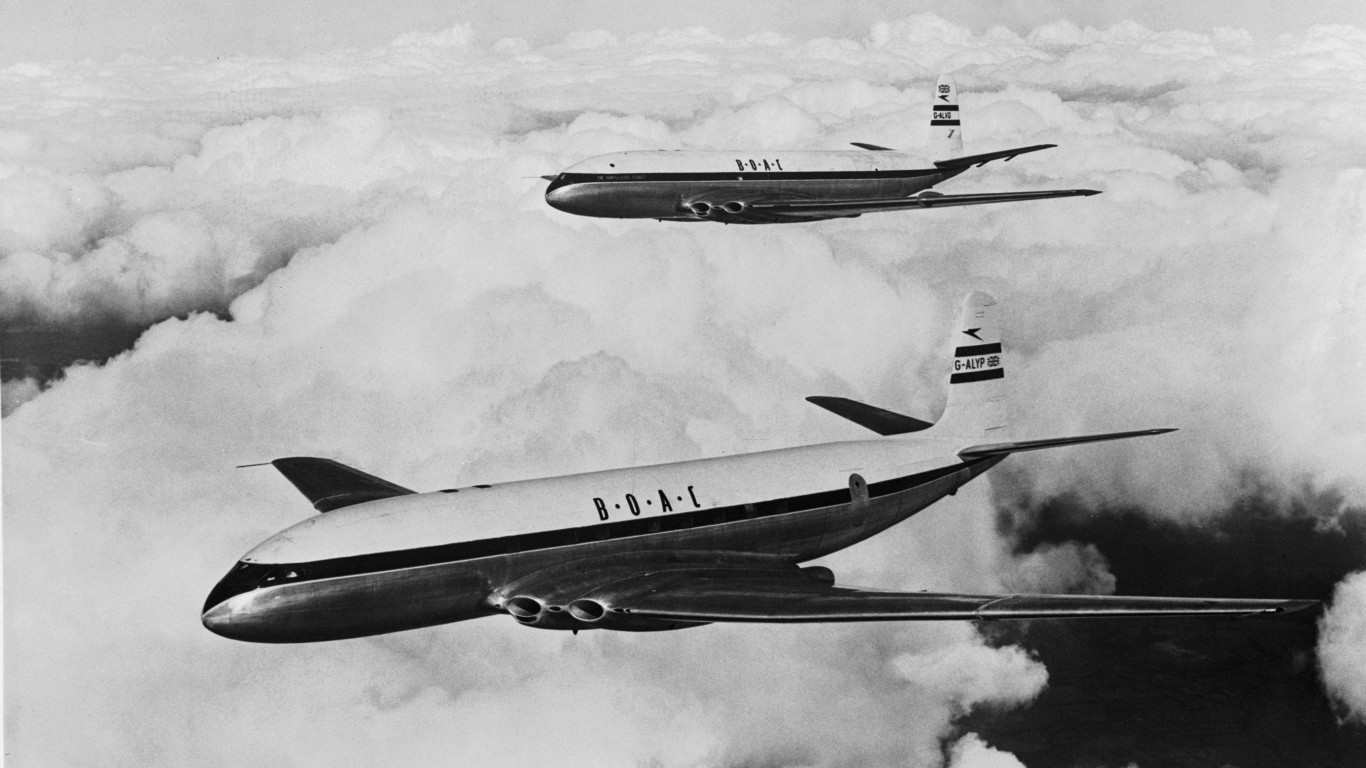
1954
> Event: Crash of the Comet
The DH.106 Comet was the world’s first commercial jetliner. The major British aviation company de Havilland, based in Hertfordshire, launched the Comets in 1952. However, due to structural problems, the planes crashed three times in their first two years of flying. Nonetheless, the Queen traveled on one in 1953. In 1954, 20 minutes after take-off, a Comet broke up mid-air off the Italian coast, killing all 35 passengers on board. Successive iterations of the plane, with improved safety measures, continued flying until 1997.
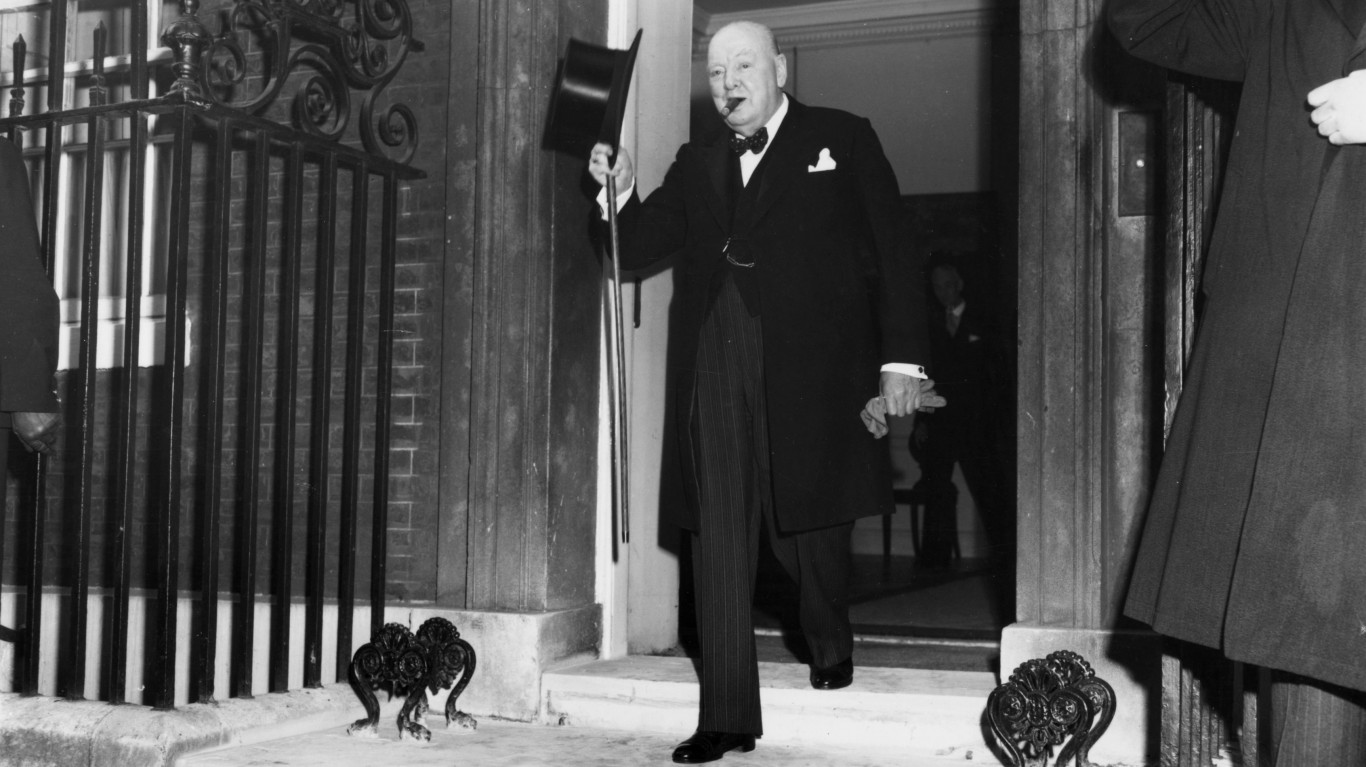
1955
> Event: Resignation of Churchill
In 1953 Winston Churchill was knighted by Queen Elizabeth II. Two years later, citing declining health, Churchill retired from his position as prime minister but remained an MP until a year before his death in 1964. Over the years, Churchill developed a close friendship with the Queen. She even offered to create the title Duke of London for Churchill, but he declined.
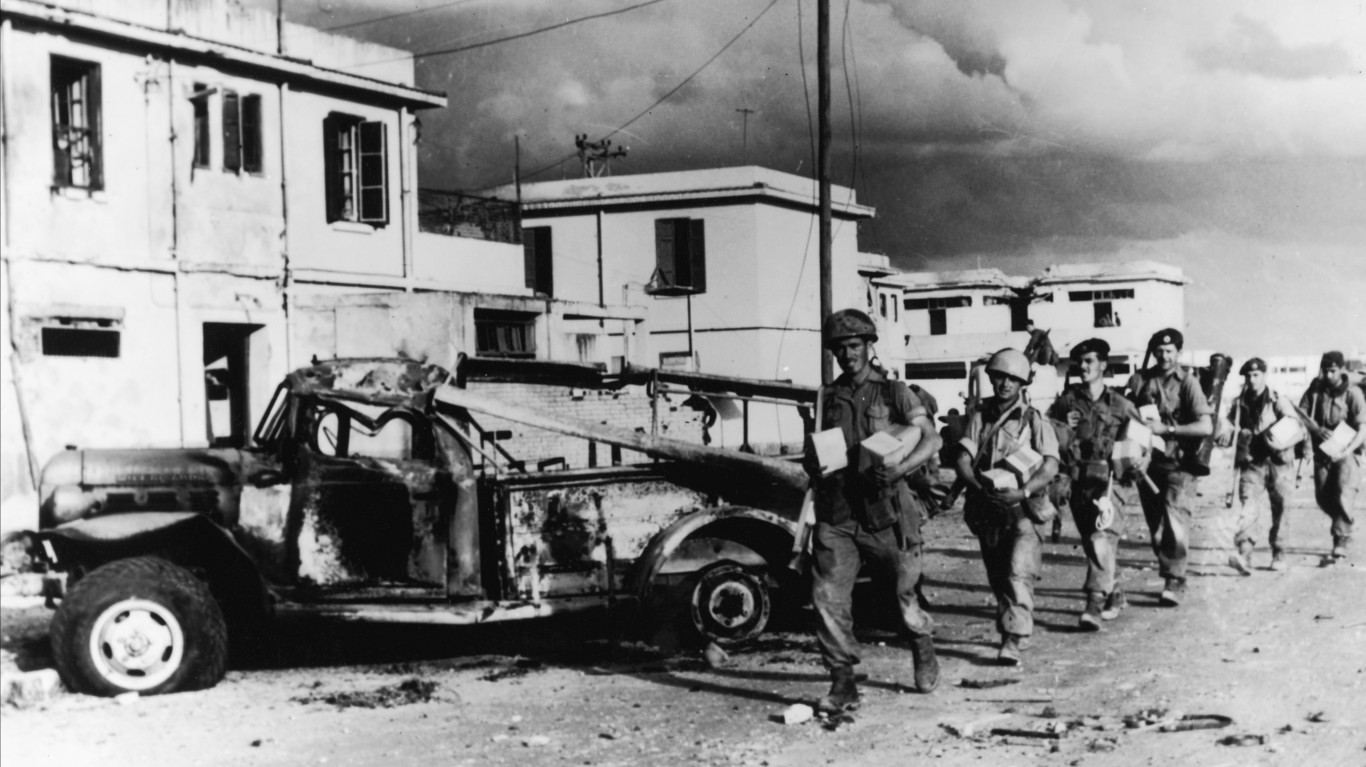
1956
> Event: Suez Crisis
On July 26, 1956, Egyptian president Gamal Abdel Nasser nationalized the Suez Canal Company, which had been owned by British and French interests. The importance of the canal led the two declining colonial powers, along with Israel, to invade the Sinai Peninsula to retake control of the crucial waterway. After some initial successes, heavy pressure from the U.S., USSR, and UN caused them to withdraw and acknowledge Egypt’s control of the canal. The Queen did not comment publicly on Britain’s plan to retake control but some sources suggest she was against it.
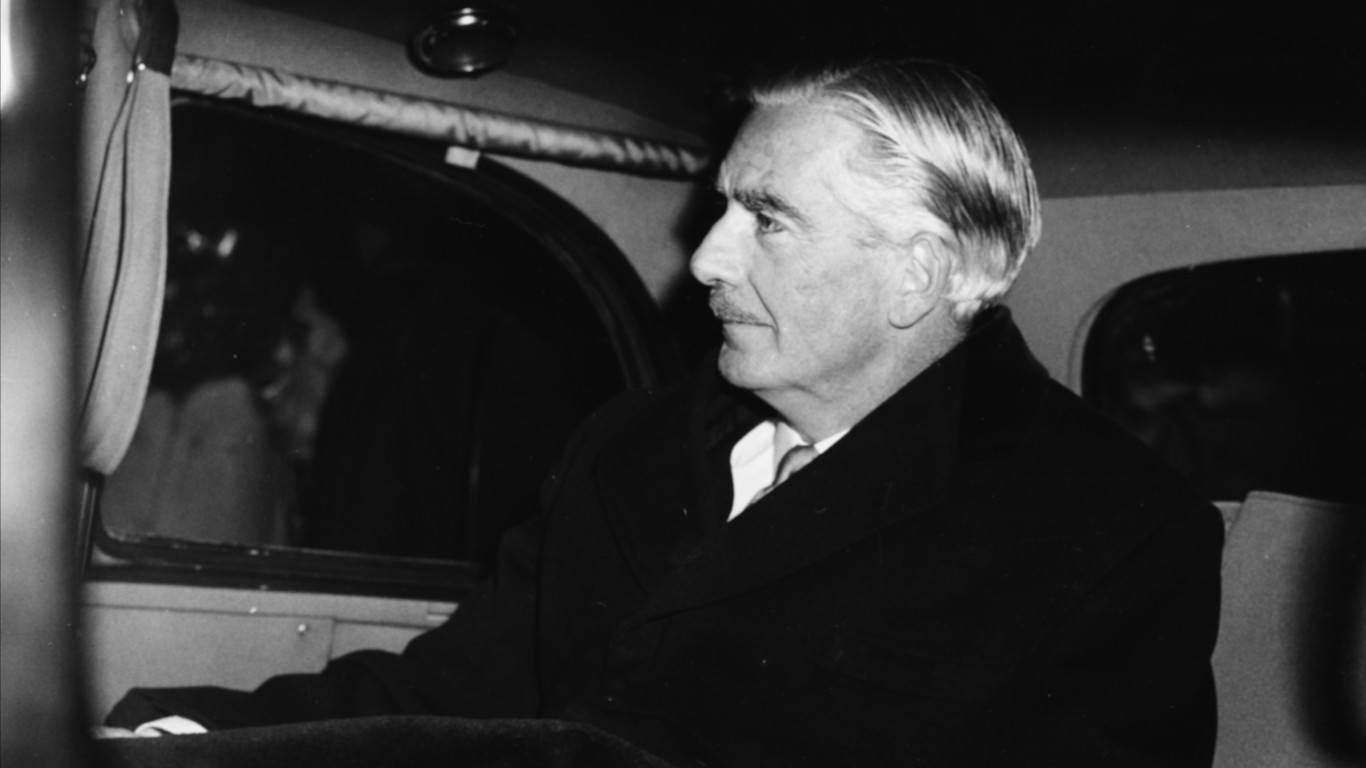
1957
> Event: Resignation of Anthony Eden
Anthony Eden was prime minister of the United Kingdom during the Suez Crisis. A majority of the oil supplies of Western Europe were transported through the canal at the time, and Eden’s government feared they could be cut off from their crucial supply. After domestic and international pressure forced Eden to pull his troops out of Egypt, and despite his unpopularity, Eden tried to stay in office. However, he resigned in January of 1957 when his doctor warned him that his health was declining rapidly. The Queen accepted his resignation.
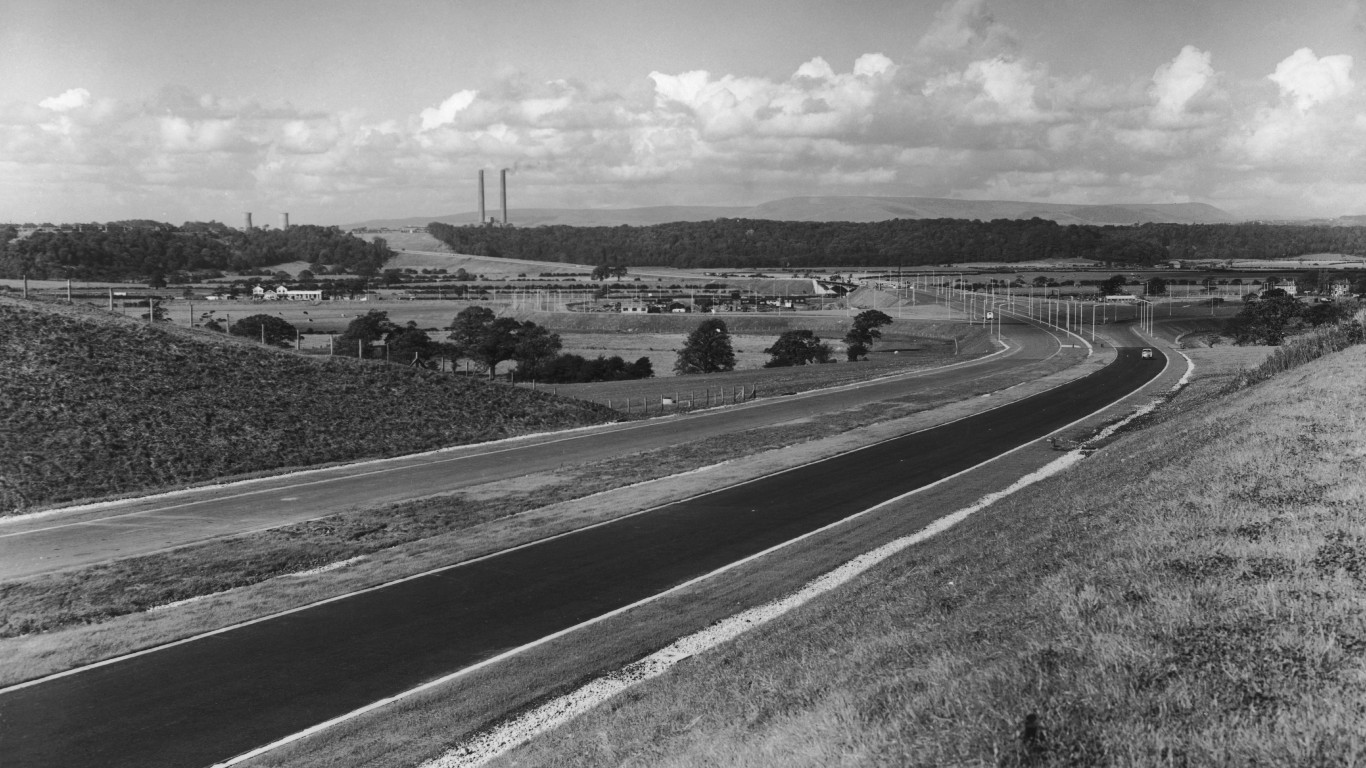
1958
> Event: Opening of the motorway system
Motorways (modern highways) were first built in the U.K. in the late 1950s. The M6, currently the nation’s longest one, was first opened in December of 1958, functioning as a high speed bypass around the town of Preston in Lancashire. Prime Minister Harold Macmillan oversaw the its opening. The motorway system has been expanded extensively over the years.
[in-text-ad-2]
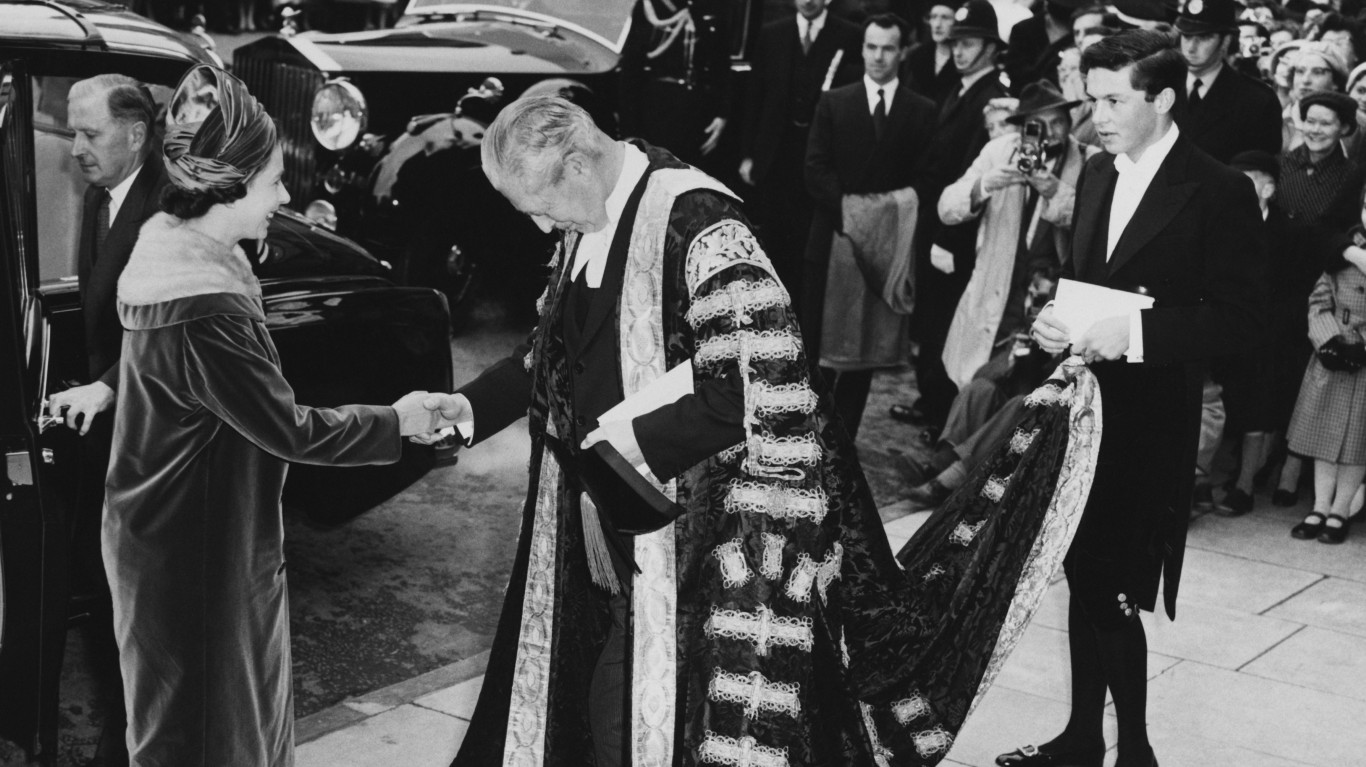
1959
> Event: Election of Harold Macmillan
Prime Minister Anthony Eden resigned in 1957 but his Conservative Party had no mechanism for choosing the next prime minister. On advice from Winston Churchill, the Queen appointed Harold Macmillan as Eden’s successor. In 1959, when the Conservative Party won another election and chose Macmillan to continue leading their government. Macmillan is credited with repairing relations with the U.S. following the Suez Crisis, and he presided over the decolonization of Africa. He continued as PM until resigning in 1963.
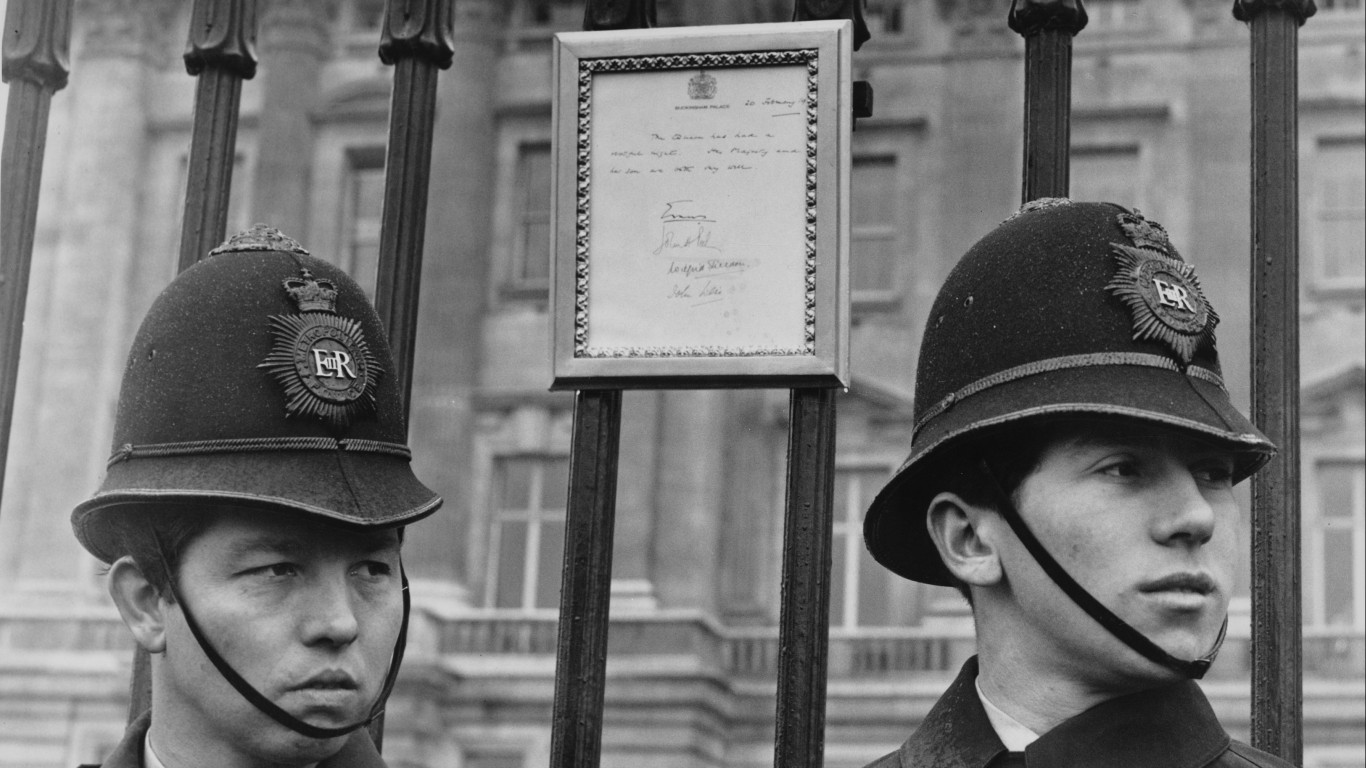
1960
> Event: Birth of Prince Andrew
Prince Andrew is the third child and second son of Queen Elizabeth II and Prince Philip, and was the first born since Elizabeth took power. Andrew is ninth in the line of succession to the British throne. He served in the Royal Navy and saw action in the Falklands War. Andrew was thrown into the media spotlight when he separated from his wife, Sarah Ferguson, in 1992 and then divorced in 1996. He is currently facing accusations of child sexual abuse, linked to deceased financier Jeffrey Epstein.
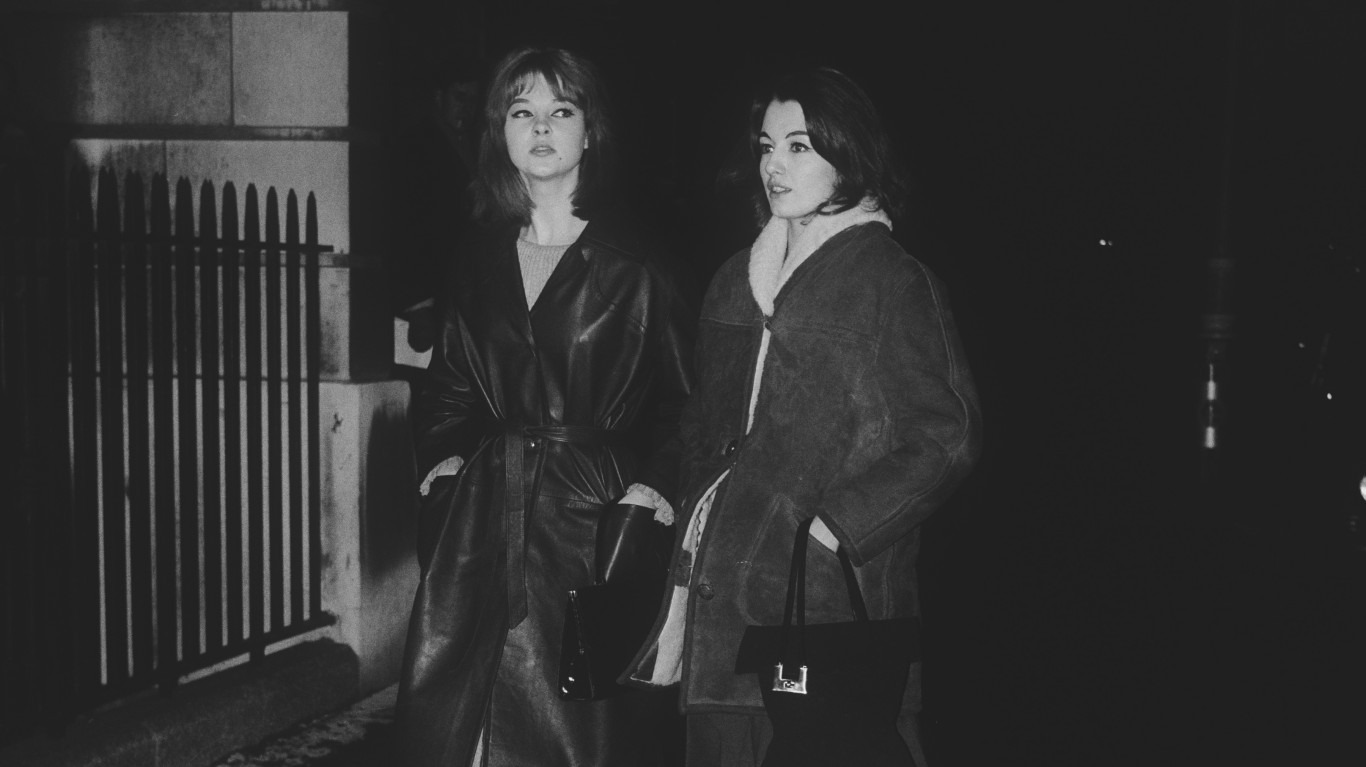
1961
> Event: Profumo Affair
John Profumo was Secretary of State for War in Harold Macmillan’s government. In 1961, it was revealed that he had been having an extramarital affair with a 19-year-old model named Christine Keeler. Profumo would try to deny the accusations but a police investigation brought the truth to light. Further, it was then revealed that Keeler had also had a relationship with an attaché at the Soviet Embassy in London, creating a potential national security risk. The Profumo affair would lead to the downfall of Macmillan in 1963 and the Conservatives would go on to lose several seats and control of the government in the 1964 elections. Along the way, Keeler claimed that Prince Philip had been unfaithful to Elizabeth.
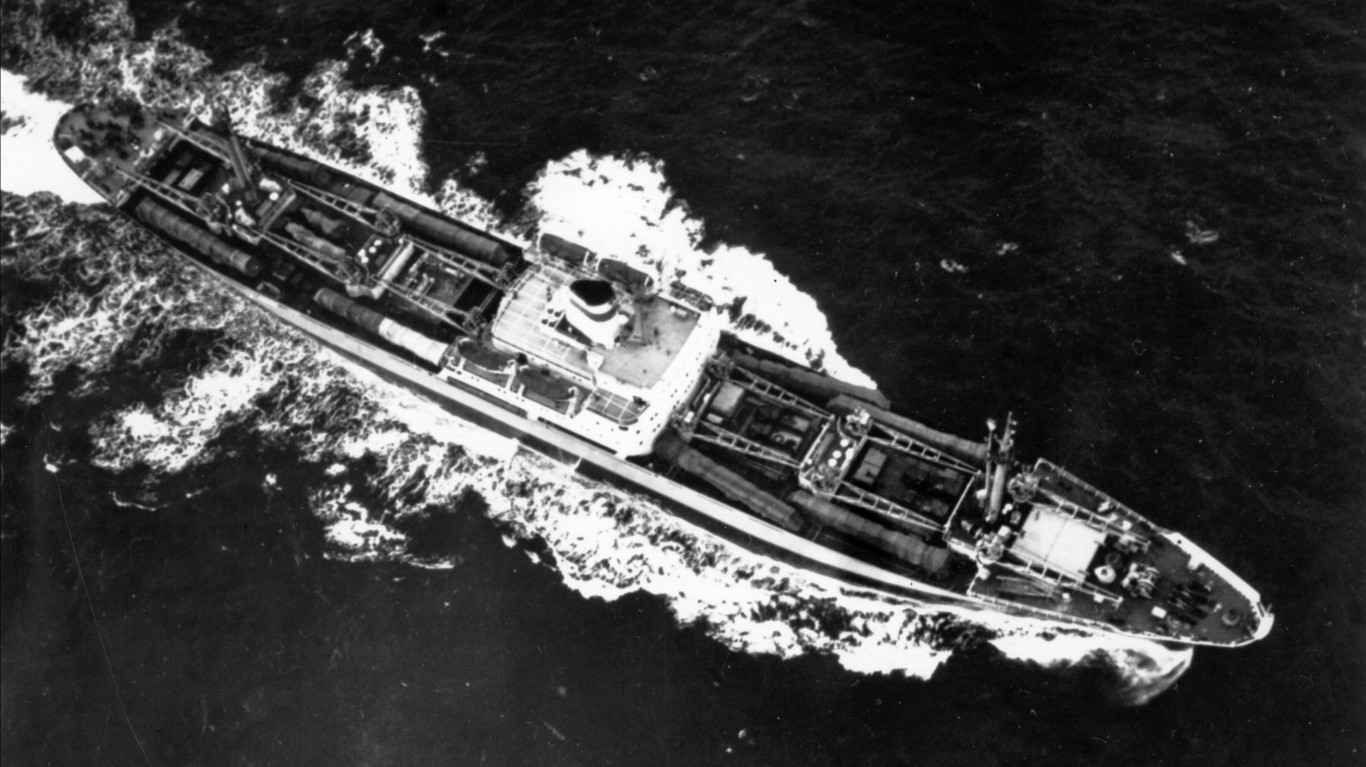
1962
> Event: Cuban missile crisis
The Cuban Missile Crisis shook the world and threatened to spiral the U.S. and USSR into mutually assured nuclear destruction. After it was revealed that the Soviets had placed nuclear missiles in Cuba, a tense standoff nearly escalated to Armageddon. However, a diplomatic solution was reached and the crisis was averted. The events spurred the British government to come up with Operation Candid, a plan to protect the Queen and her husband in the event of nuclear war. They were to be evacuated in a royal yacht and hidden in a loch in coastal Scotland.
[in-text-ad]
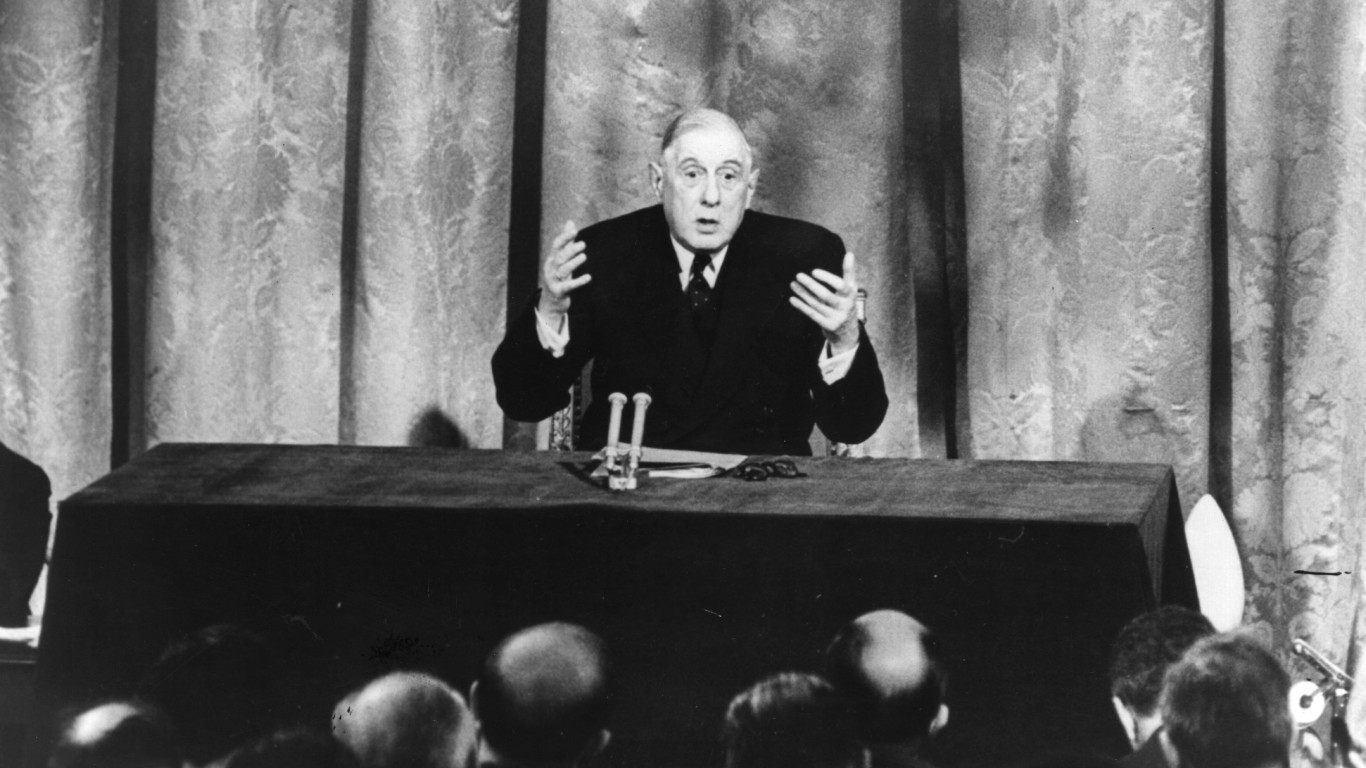
1963
> Event: French veto of the U.K.’s entry into the Common Market
In 1963, the United Kingdom attempted to join the European Common Market, the forerunner to the European Union. However, French president Charles de Gaulle vetoed Britain’s application. He claimed that Britain lacked commitment to European integration and some might say history has proven him correct. De Gaulle would go on to veto Britain’s second attempt a few years later.
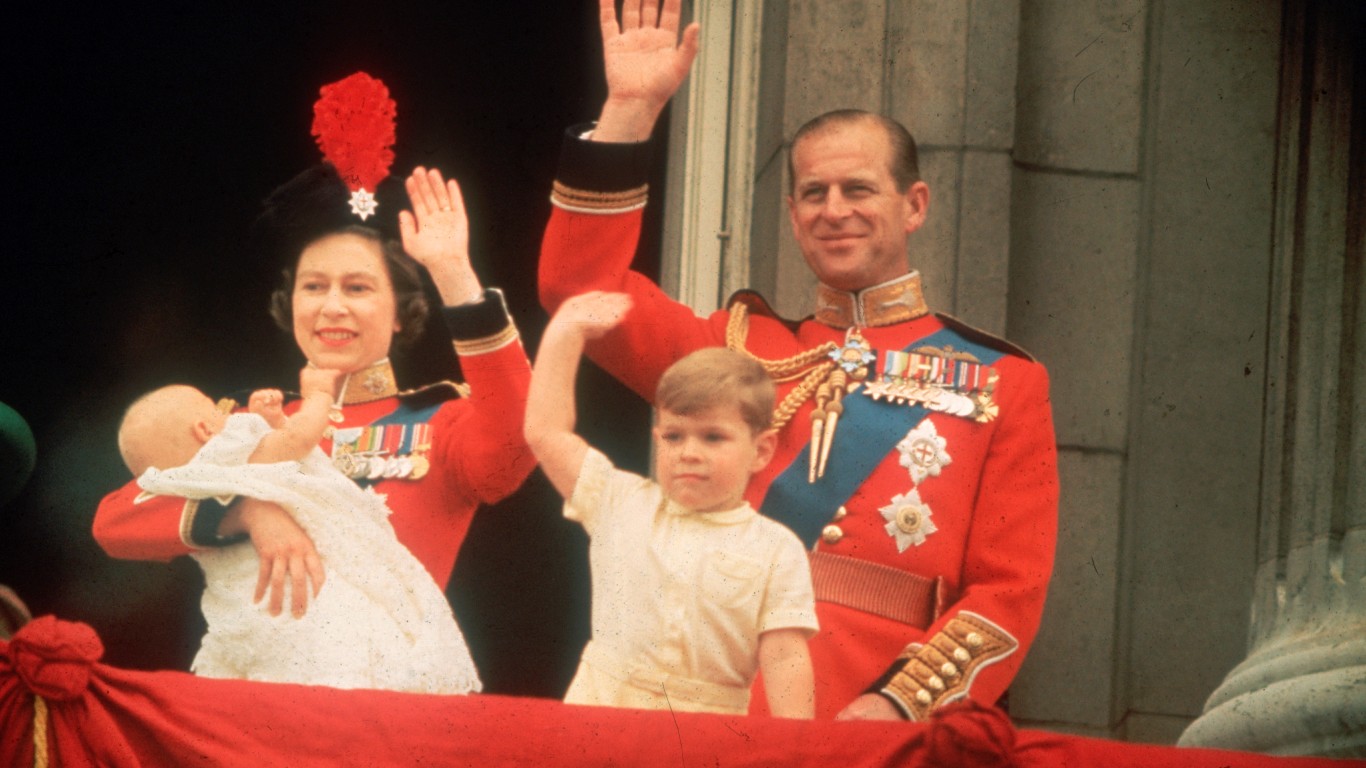
1964
> Event: Birth of Prince Edward
Prince Edward, Earl of Wessex, was born March 10, 1964, at Buckingham Palace. He is the youngest child of Elizabeth and Philip and the 14th in line of succession to the British throne. Edward joined the Royal Marines after graduating from the University of Cambridge. Military service is traditional for members of the British Royal Family — however, Edward stayed with the Marines for less than six months. Edward moved on to a career in theater and television production before taking up royal duties as a full-time job.
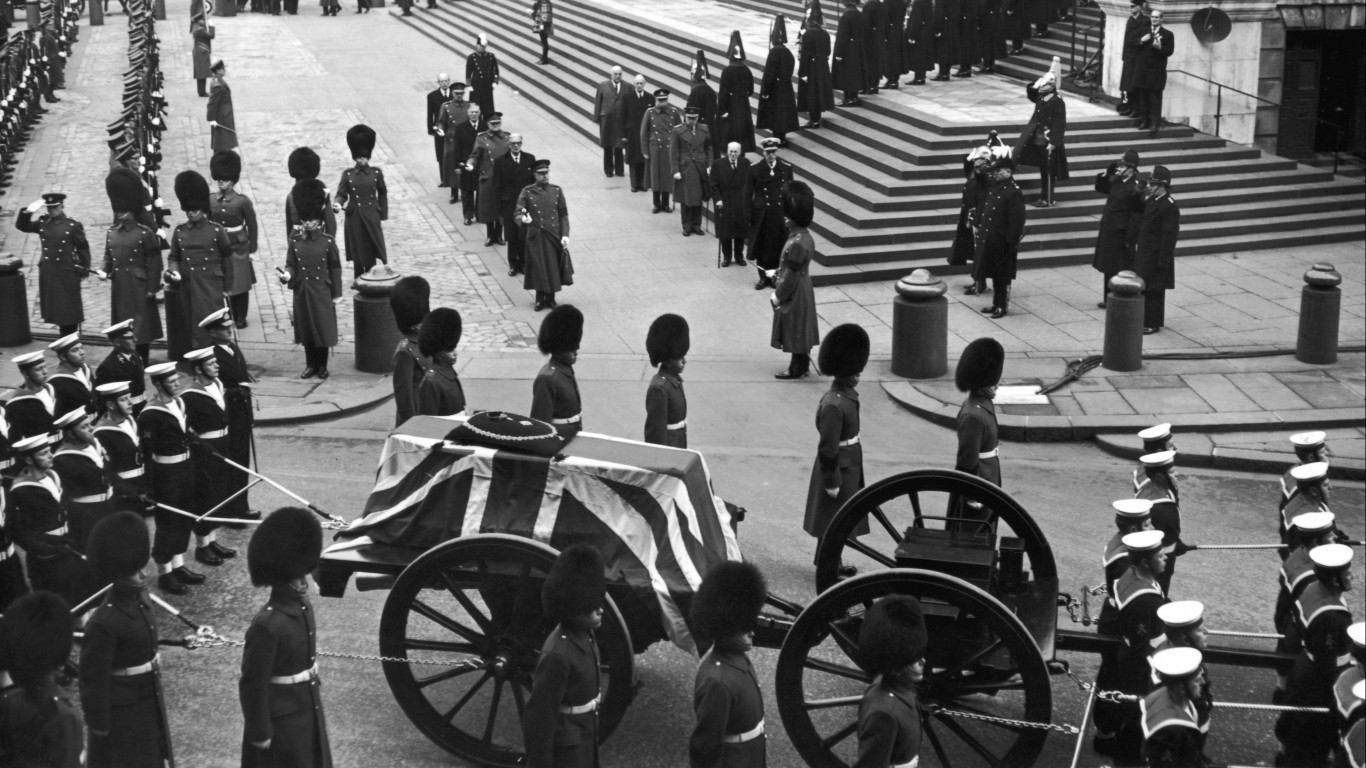
1965
> Event: Death of Winston Churchill
Churchill is a complicated and controversial figure, known for defying the Nazis and guiding the U.K. through World War II. He served as an effective post-war prime minister, and became a close friend of Elizabeth. But he has also been accused of racist views, and he defended the idea of a British Empire and its colonies. He suffered a stroke in 1953, and in 1962 was hospitalized after a fall in Monte Carlo. He never completely recovered, and there has been speculation that he fell into depression. He had another stroke on Jan. 12, 1965, and died two weeks later at the age of 90.
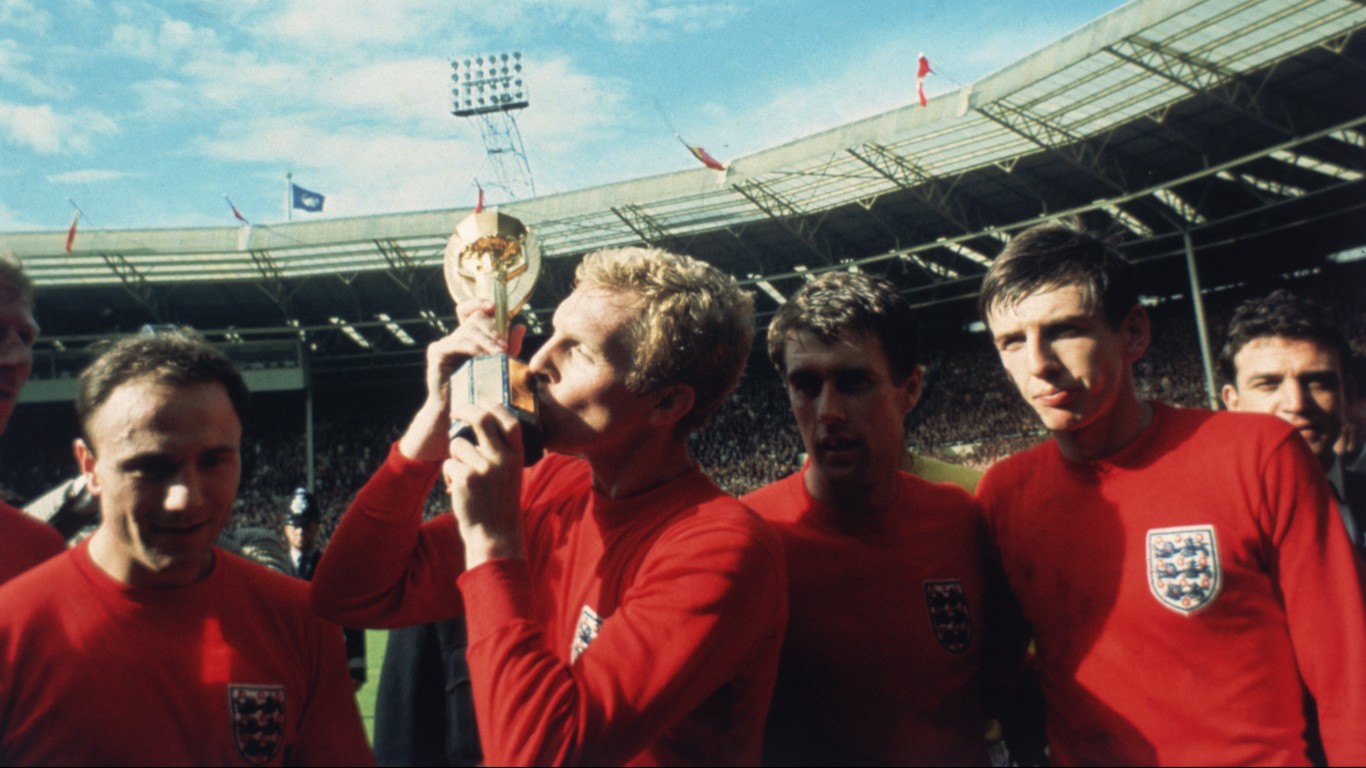
1966
> Event: World Cup victory
England’s only World Cup victory came in 1966, and the Queen was there to play her part. She witnessed England’s victory over West Germany in London’s Wembley stadium. She then went on to hand the World Cup trophy to the team’s captain. Recently, she invoked her memories of 1966 while rooting on England as they took on Italy in this year’s European Championship final (which it lost).
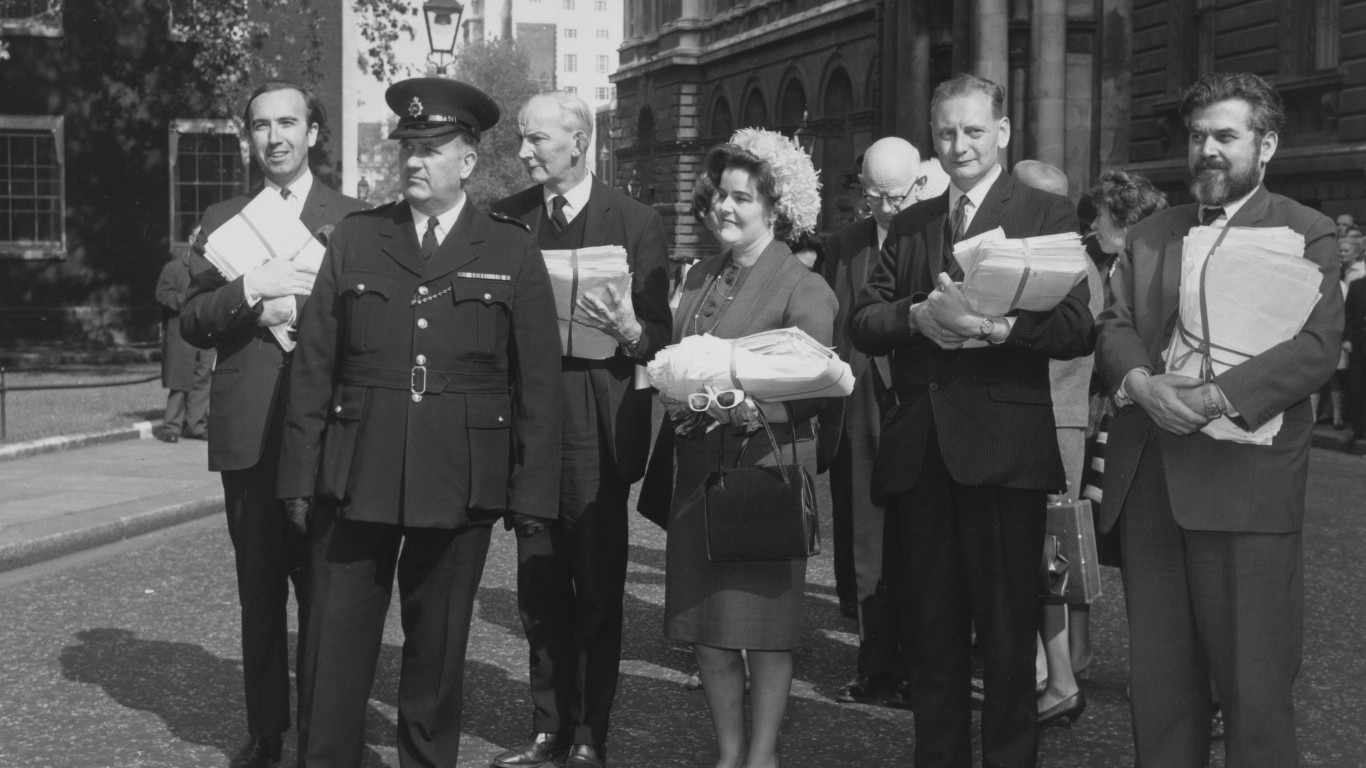
1967
> Event: Legalization of homosexual acts and abortion
In 1967, the British parliament passed the Sexual Offences Act, legalizing homosexual acts if they were consensual, in private, and between individuals who were at least 21 years old. It was considered a landmark for gay rights in the nation. Also in 1967, the Abortion Act was passed, which legalized abortion on certain grounds by registered practitioners. The Queen gave her royal assent to both laws.
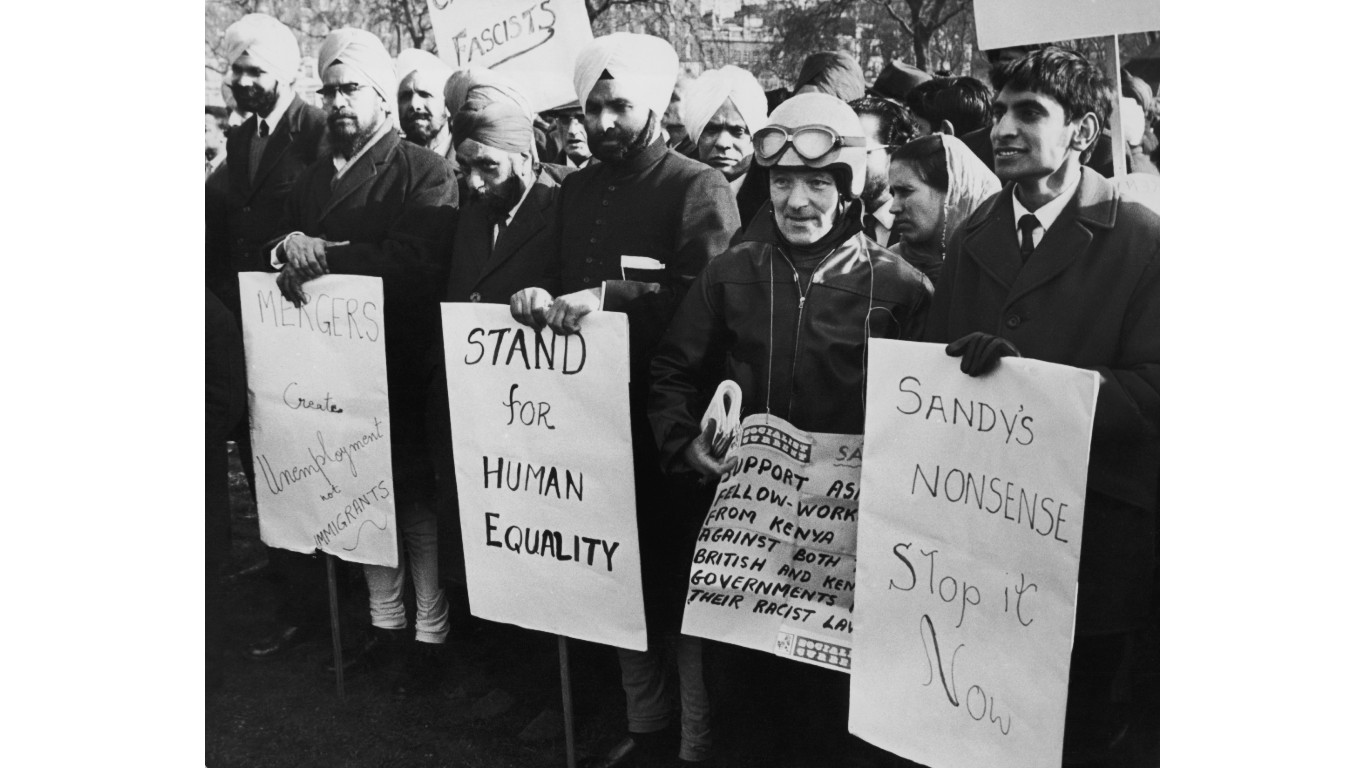
1968
> Event: Amending of the Commonwealth Immigration Act
The Commonwealth Immigration Act 1968 amended a similar act from 1962. The new act further reduced the rights of citizens of the Commonwealth of Nations to migrate to the United Kingdom. The Commonwealth is made up of nations and territories that were previously part of the British Empire (including Australia, Canada, India, and Nigeria). The Queen gave the act her royal assent.
[in-text-ad-2]
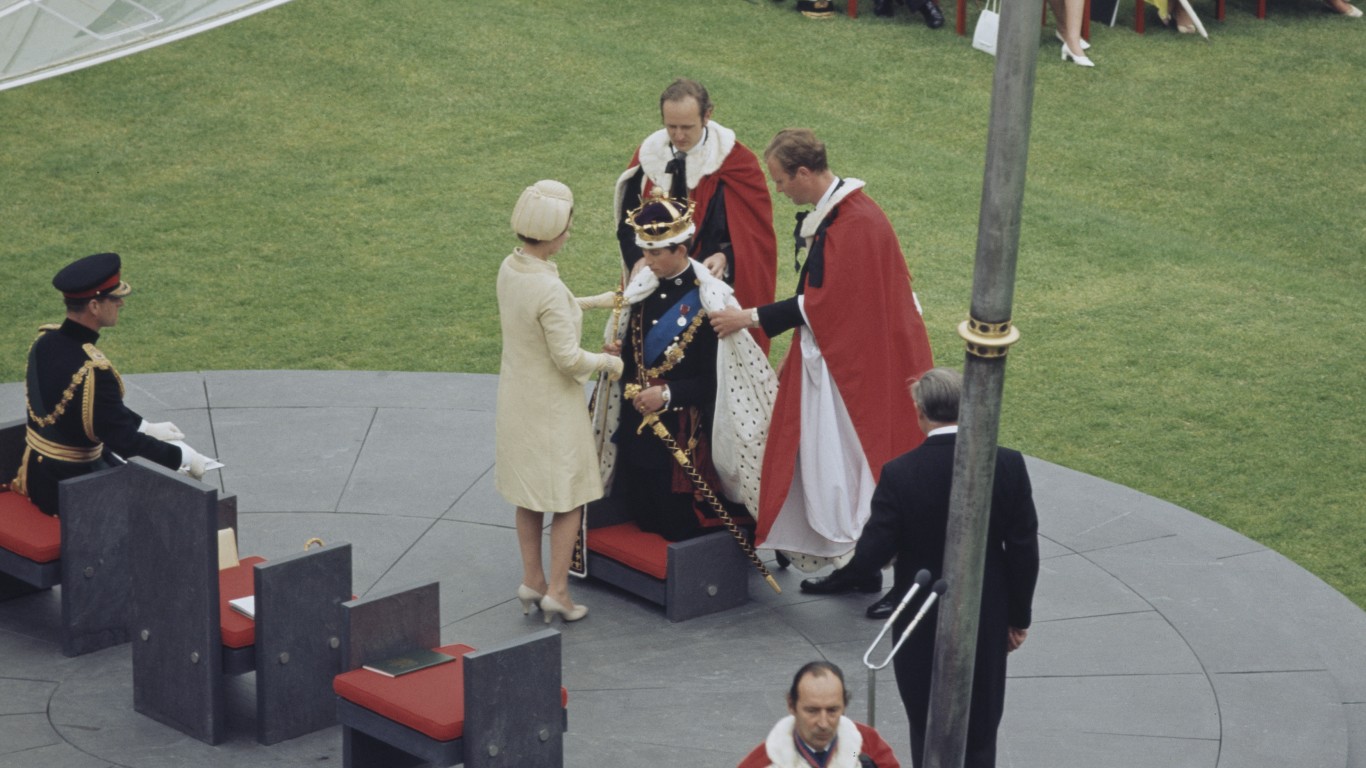
1969
> Event: Investiture of Charles as Prince of Wales
Prince of Wales is the traditional and ceremonial title granted to the heir apparent to the British throne. The investiture is an official ceremony that confers the title. Only two such investiture ceremonies took place in the 20th century, both at Caernarfon Castle in Wales. The 73-year-old Prince Charles, the eldest child of Elizabeth and Prince Philip, remains next in line to take the throne.
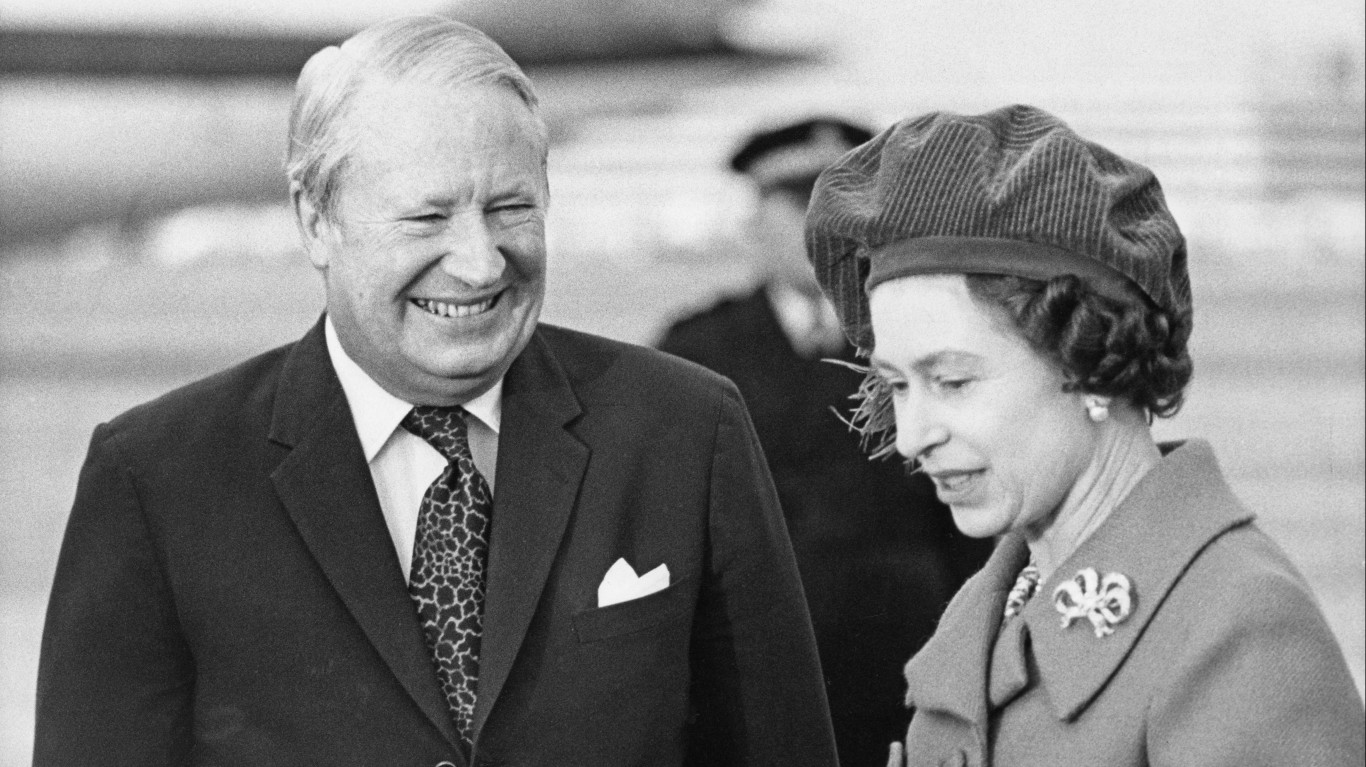
1970
> Event: Election of Edward Heath as Prime Minister
Edward Heath served as leader of the Conservative Party from 1965 to 1975 and was prime minister from 1970 to 1974. After the scandals of the later ’50s and early ’60s, his party was knocked out of power until its surprise victory in 1970. Heath balanced relationships between the United States and China, among others. The Queen accompanied him in 1970 when he met with President Nixon on his visit to the U.K..
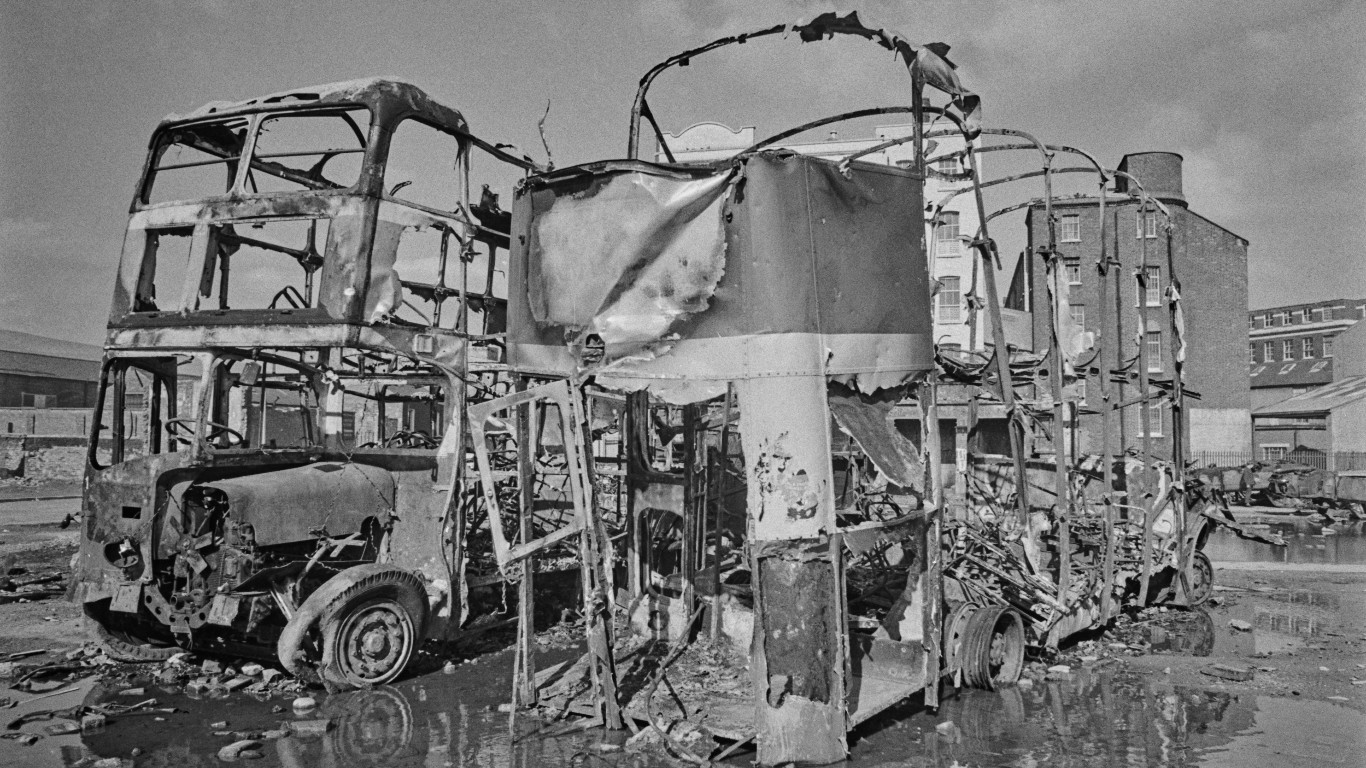
1971
> Event: Death of the first British soldier in Northern Ireland
Robert Curtis was officially listed as the first British soldier killed in the decades-long conflict in North Ireland known as “The Troubles.” In early 1971, British forces began searching for Irish Republican Army arms caches in Belfast, provoking citizens to riot. During one clash, Curtis’s regiment was deployed to quell a riot. A gunman fired a burst from a submachine gun into the British lines, killing Curtis.
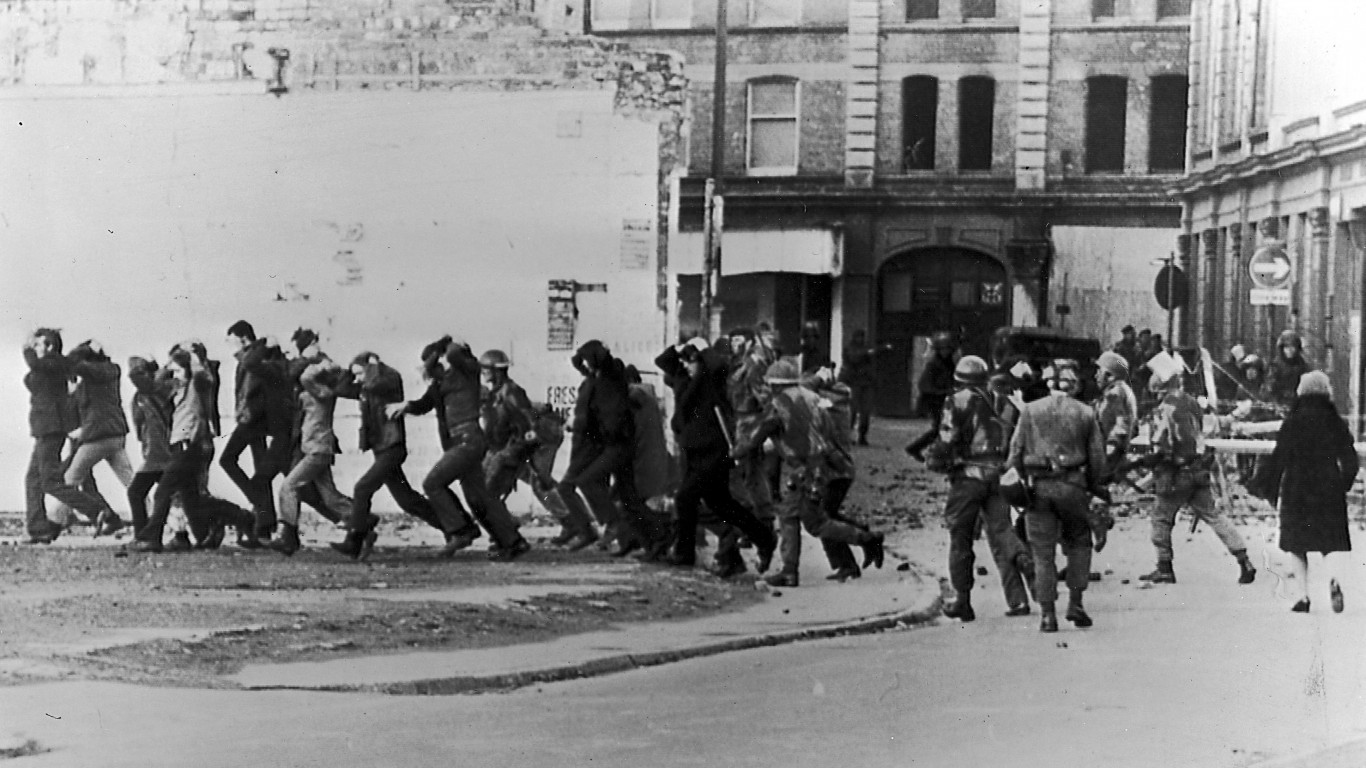
1972
> Event: Bloody Sunday
On January 30, 1972, British soldiers shot 26 unarmed citizens who were participating in a protest in the Northern Irish city of Derry against the practice of internment without trial by the British government. Of those wounded, 13 died at the scene and one more succumbed later to his injuries. Bloody Sunday was one of the most significant events of The Troubles because so many civilians were killed by state forces, in the presence of numerous witnesses and press. At the end of 1972, Queen Elizabeth awarded one of the key commanding British officers, Lieutenant Colonel Derek Wilford, the Order of the British Empire.
[in-text-ad]
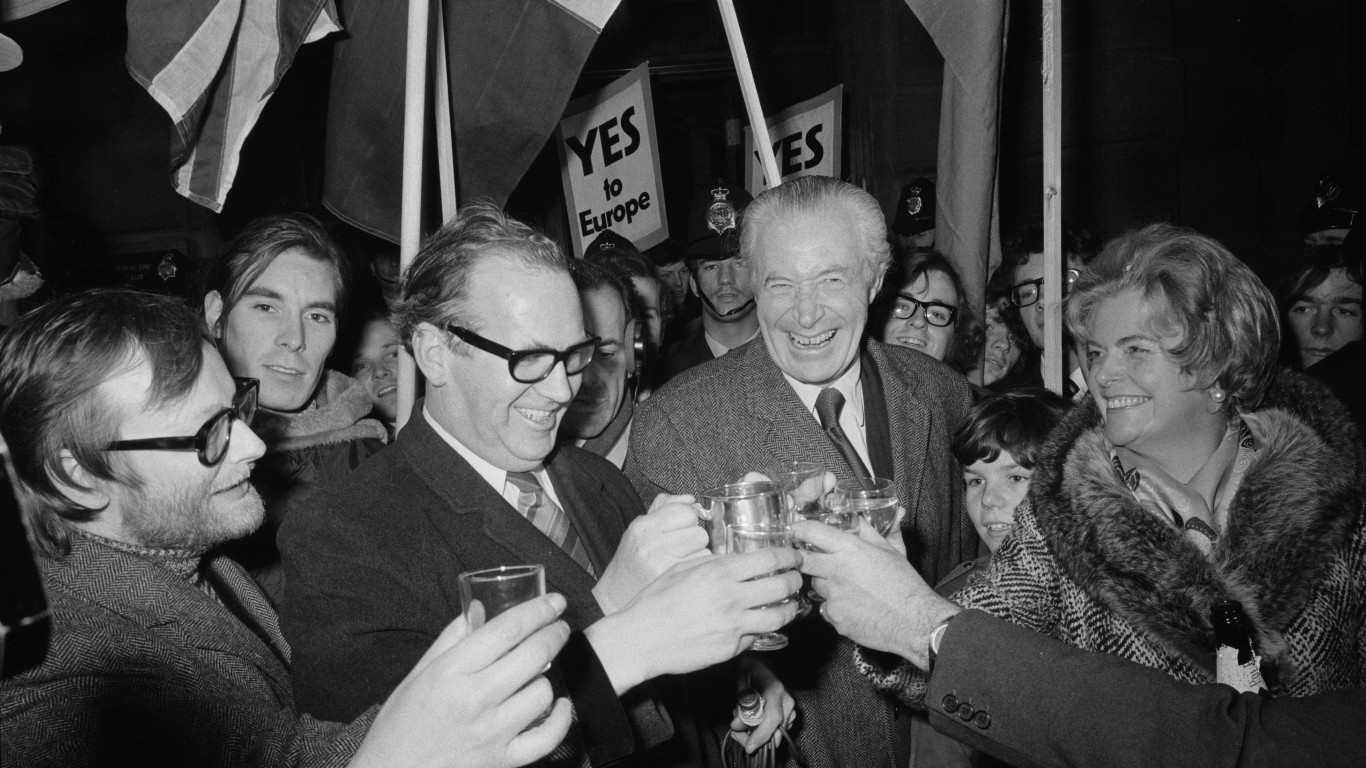
1973
> Event: Entry of the U.K. into the European Economic Community
On its third try and 10 years after it first attempted to become part of the organization’s predecessor, the U.K. successfully joined the European Economic Community, with the Queen’s assent. The EEC, founded in 1957, was created to eliminate trade barriers and create a common trade policy across member states. It also aimed to defuse tensions between nations following World War II by making them economically interdependent. After only two years, a new British government wanted to renegotiate its position in the EEC and held a public referendum. British citizens voted to remain in the Community.
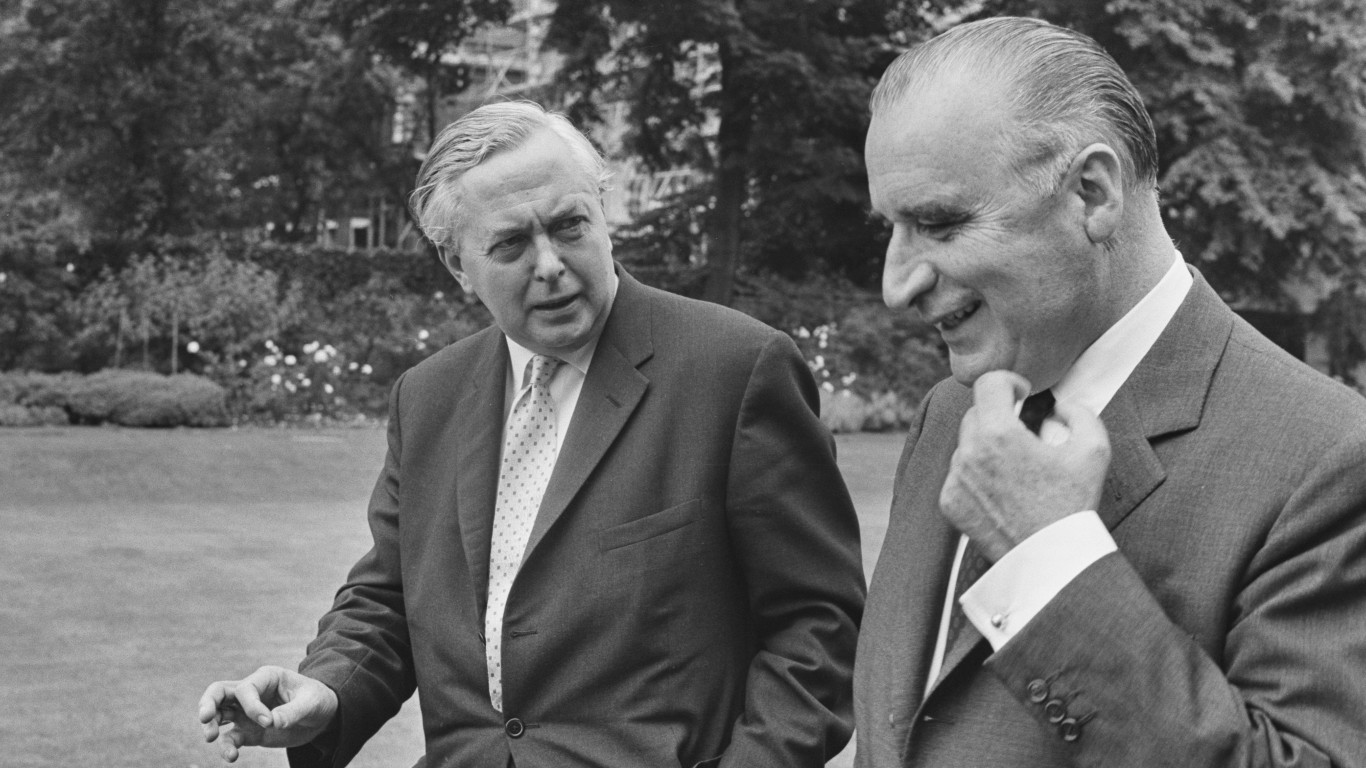
1974
> Event: Dissolution of parliament and victory of Harold Wilson
On February 7, 1974, Prime Minister Edward Heath asked Queen Elizabeth to dissolve parliament, allowing for general elections on February 28. Neither the Labour nor Conservative party won an absolute majority and control of the government — a situation known as a hung parliament. A second election was called in October — the first time there’d been two general elections in the same year since 1910 — and Labour candidate Harold Wilson won a narrow victory. Wilson served as prime minister from 1964 to 1970 and again from 1974 to 1976.
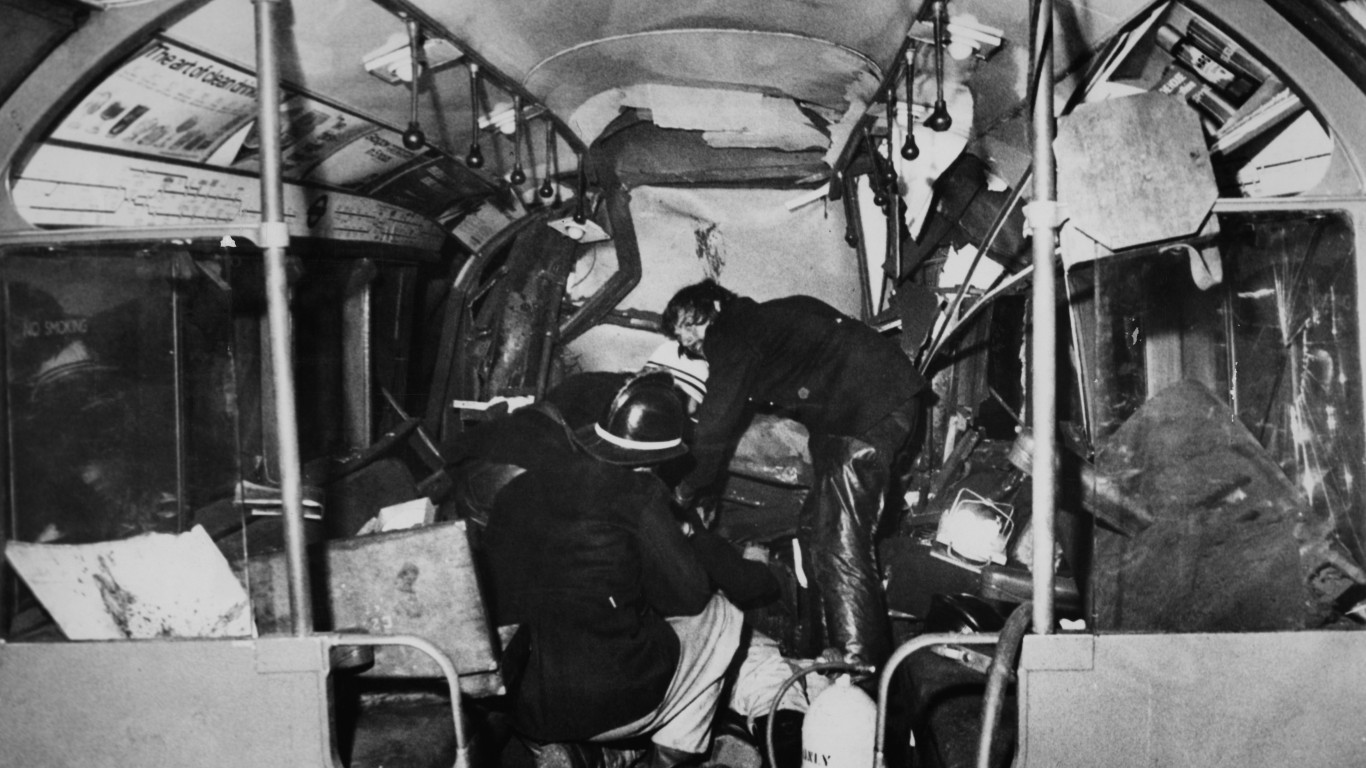
1975
> Event: Moorgate tube crash
On February 28, 1975, a train on the Northern City Line of the London Underground (“tube”) failed to stop and collided with a wall at Moorgate, the line’s southern terminus. Some 74 people were injured and 43 of them died, making this the tube system’s worst peacetime accident. An investigation concluded that the accident was caused by the train’s driver, Leslie Newson, who was one of the fatalities — but authorities never discovered what caused his failure to stop the train in time.
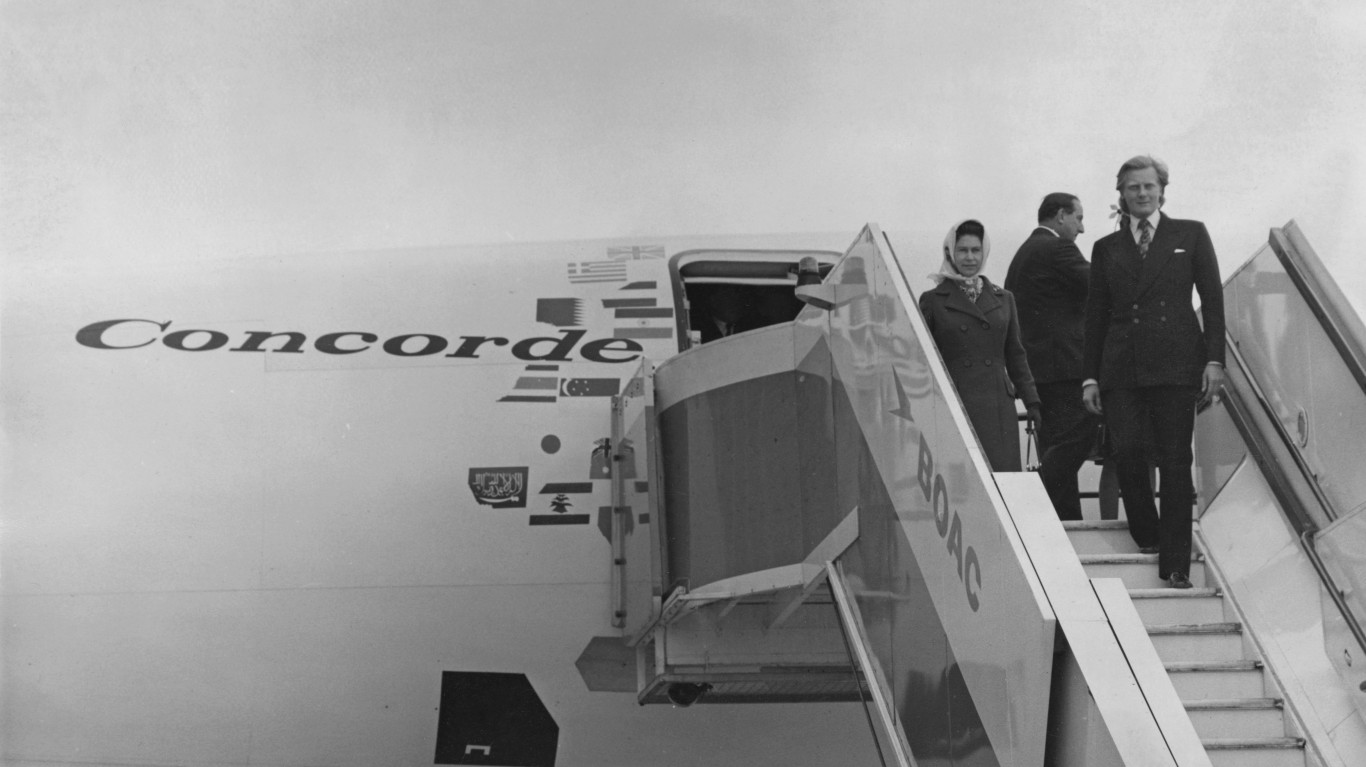
1976
> Event: First commercial flight of the supersonic Concorde
The Concorde, a passenger jet capable of flying more than twice the speed of sound, was a joint Anglo-French endeavor in service from 1976 to 2003. The Queen traveled on the Concorde for the first time in 1977, and made several later trips on it. It was so fast that the journey from London to New York took less than three hours (it was said that one could have lunch in London and arrive in New York in time for lunch again). However, the planes were extremely expensive, with tickets sometimes costing more than 30 times the price of the cheapest equivalent regular flight. In 2000, a Concorde flying from Paris to New York crashed after takeoff, killing all on board. A subsequent decline in passengers and increasing obsolescence led to the permanent grounding of the planes in 2003.
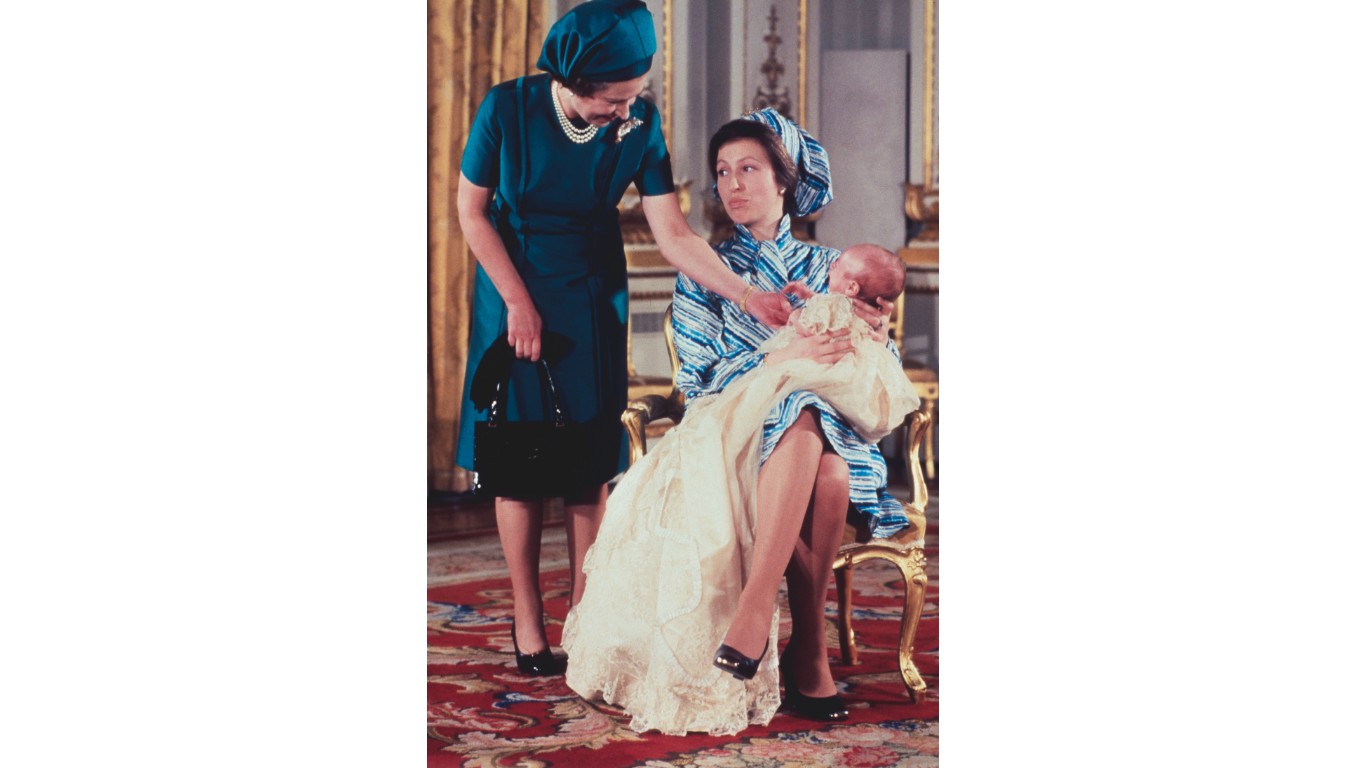
1977
> Event: Birth of Elizabeth’s first grandchild
Peter Phillips is the son of Elizabeth’s daughter, Princess Anne, and her first husband, champion equestrian Mark Phillips. The Queen’s oldest grandchild, he is currently 18th in line of succession for the throne. Phillips graduated from the University of Exeter. He has worked at Jaguar Racing and SEL UK, a boutique sports management company. He is the father of the Queen’s oldest great-grandchild, Savannah.
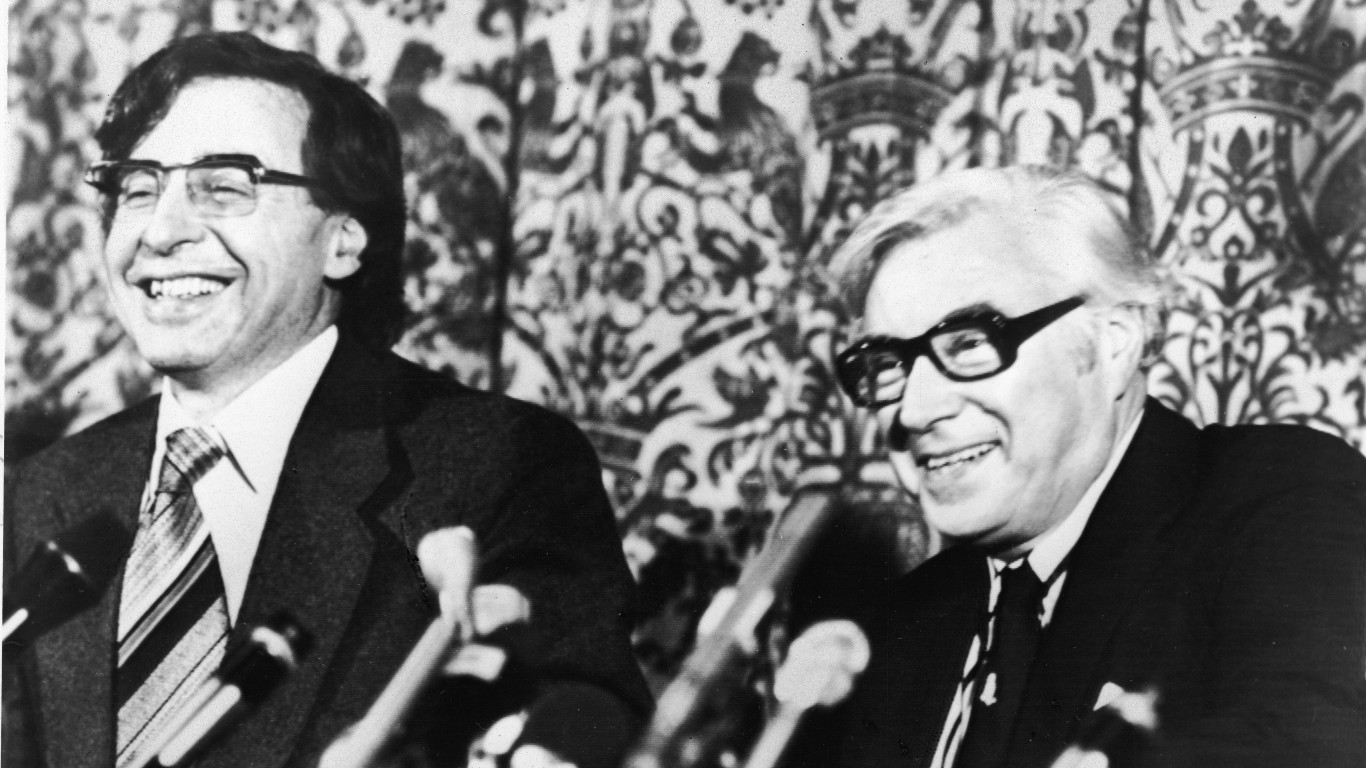
1978
> Event: Birth of the first IVF baby
In vitro fertilization (IVF) is a process that involves fertilizing a human egg with sperm in a culture medium in a laboratory. The fertilized egg is then implanted into the uterus, with the hopes of creating a successful pregnancy. Louise Brown, born at Royal Oldham Hospital near Manchester on July 25, 1978, was the first IVF baby. The procedure was developed by English physiologist Robert Edwards in collaboration with two other scientists. In 2010, Edwards won the Nobel Prize in Physiology or Medicine, and a year later he was knighted by the Queen.
[in-text-ad-2]
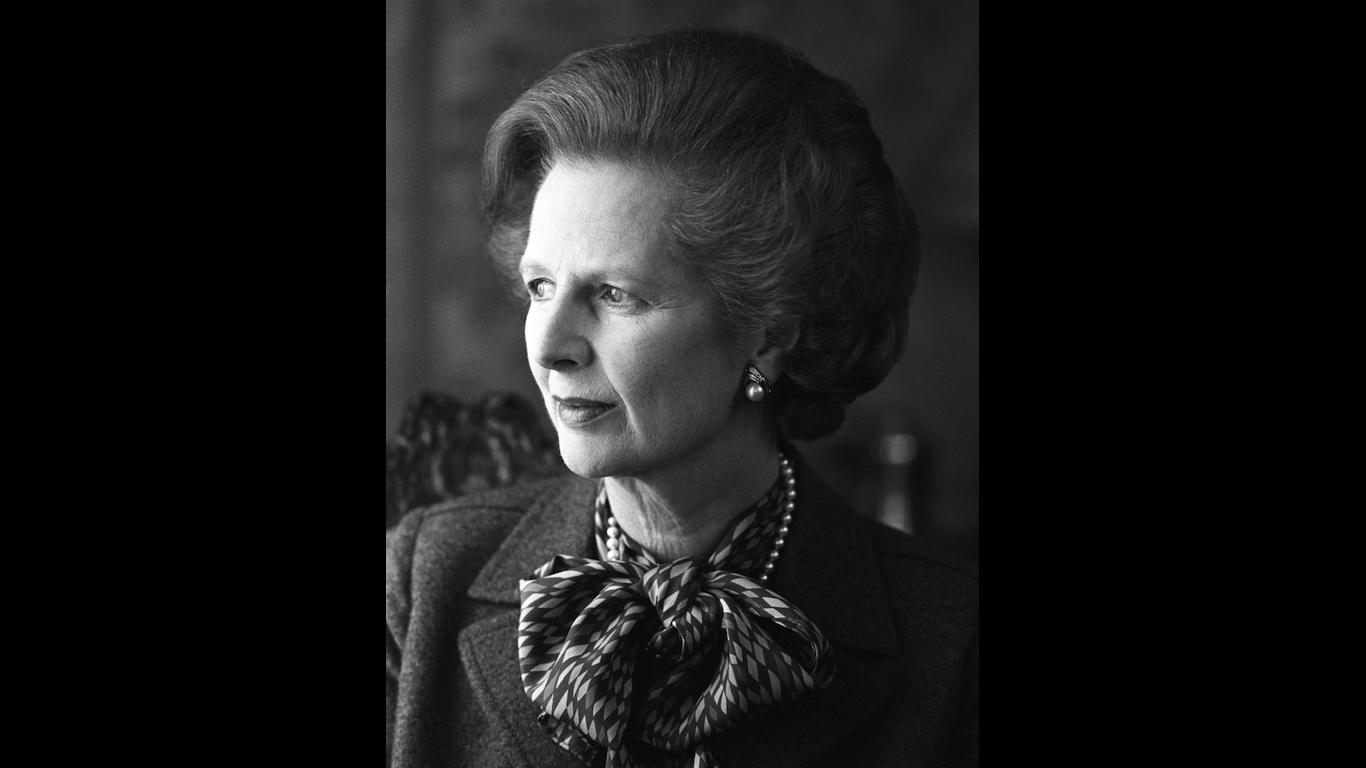
1979
> Event: Election of Margaret Thatcher
Margaret Thatcher became the Prime Minister of the United Kingdom in 1979 and remained in power until 1990. She was the longest serving British prime minister in the 20th century and first woman to hold the post. Along with Ronald Reagan on the other side of the Atlantic, Thatcher dominated conservative politics in the 1980s. Thatcher and Queen Elizabeth met weekly, but were said to have had an icy relationship at times.
1980
> Event: First Maze Prison Hunger Strike
The Queen was threatened from afar in 1977, when the IRA declared the royal family as legitimate targets for violence. In 1978, republican prisoners at Maze Prison, near Belfast, sought better conditions by means of a “dirty protest,” in which they refused to clean themselves and covered their cells in excrement. In 1980, they began a hunger strike that lasted nearly two months. A second and significantly longer strike in 1981 led to the deaths of several prisoners, including strike organizer Bobby Sands. The protests shone an international spotlight on the conflict and increased pro-IRA activism.
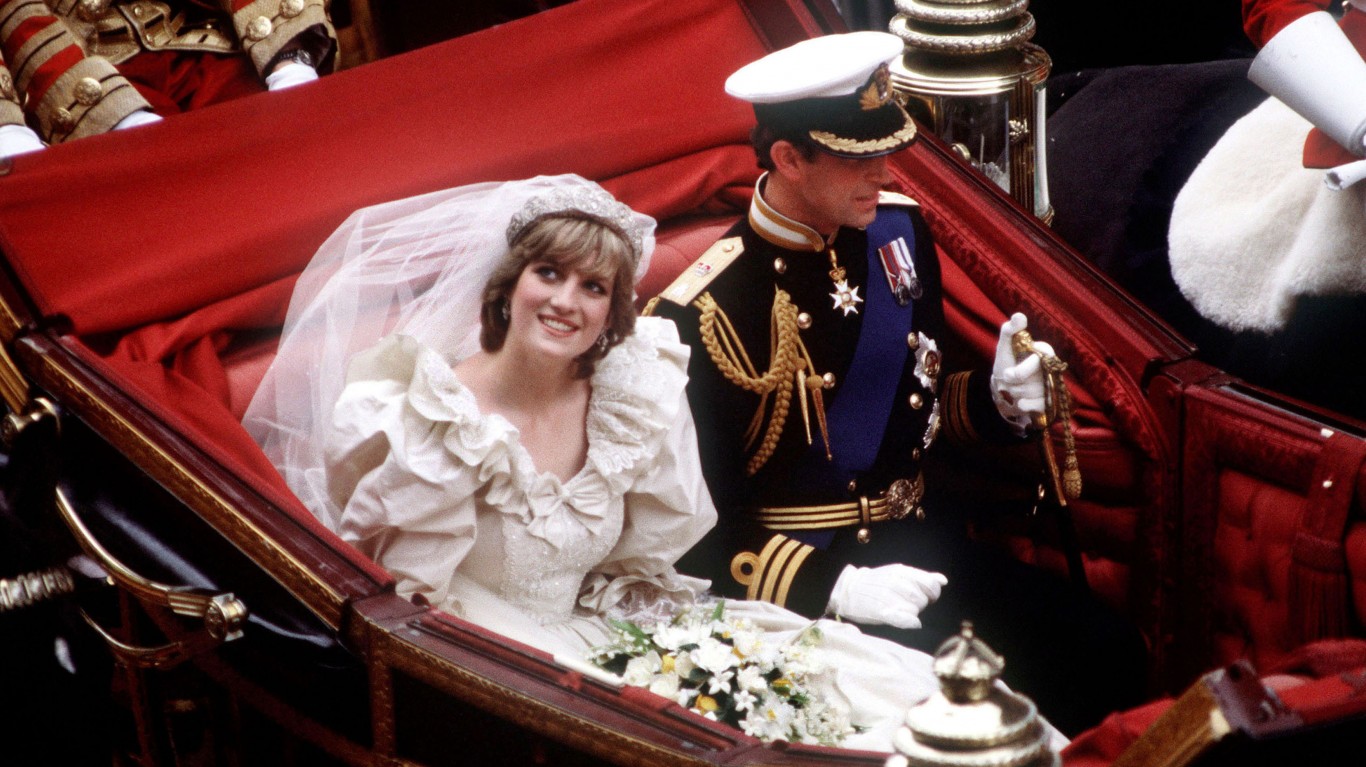
1981
> Event: Marriage of Prince Charles and Lady Diana Spencer
Prince Charles first met Diana in 1977 at her family’s country estate, but they didn’t become involved romantically until 1980. He proposed in early 1981 and they wed later that year. It was said that Diana was flattered by the attentions of such a distinguished figure, while Charles seemed to think of her primarily as a suitable bride for a member of the royal family. Their story — including Charles’s ongoing relationship with Camilla Parker Bowles (now his wife) and Diana’s tragic death — has been told many times, most recently in this year’s “Spencer,” starring Kristen Stewart as the ill-fated princess.
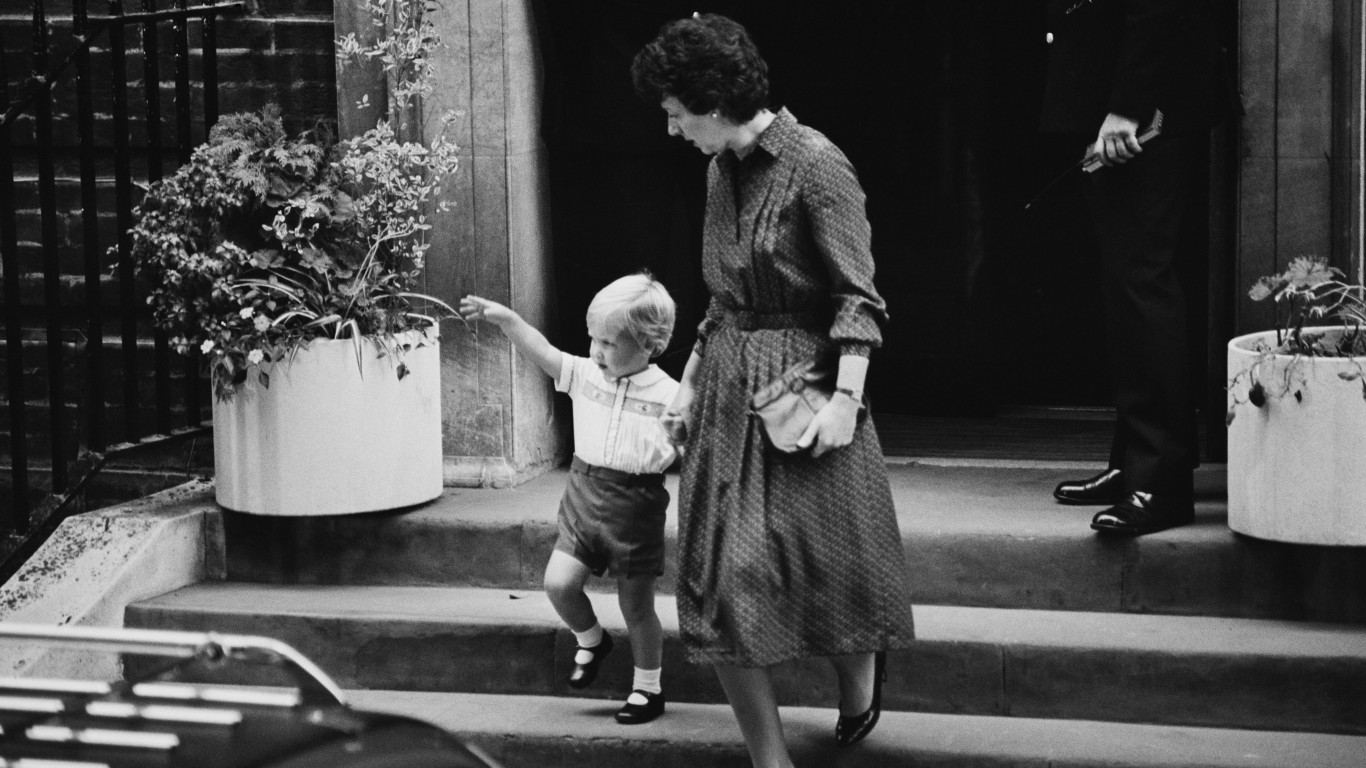
1982
> Event: Birth of Prince William
Prince William, Duke of Cambridge, was the first child of Charles and Diana and is thus second in the line of succession to the British throne. He was educated at Eton and the University of St Andrews in Scotland. Afterwards, he joined the Royal Air Force and served as an air ambulance pilot for two years. Currently, William performs official royal duties on behalf of the Queen. These include engaging with charitable and military organizations.
[in-text-ad]
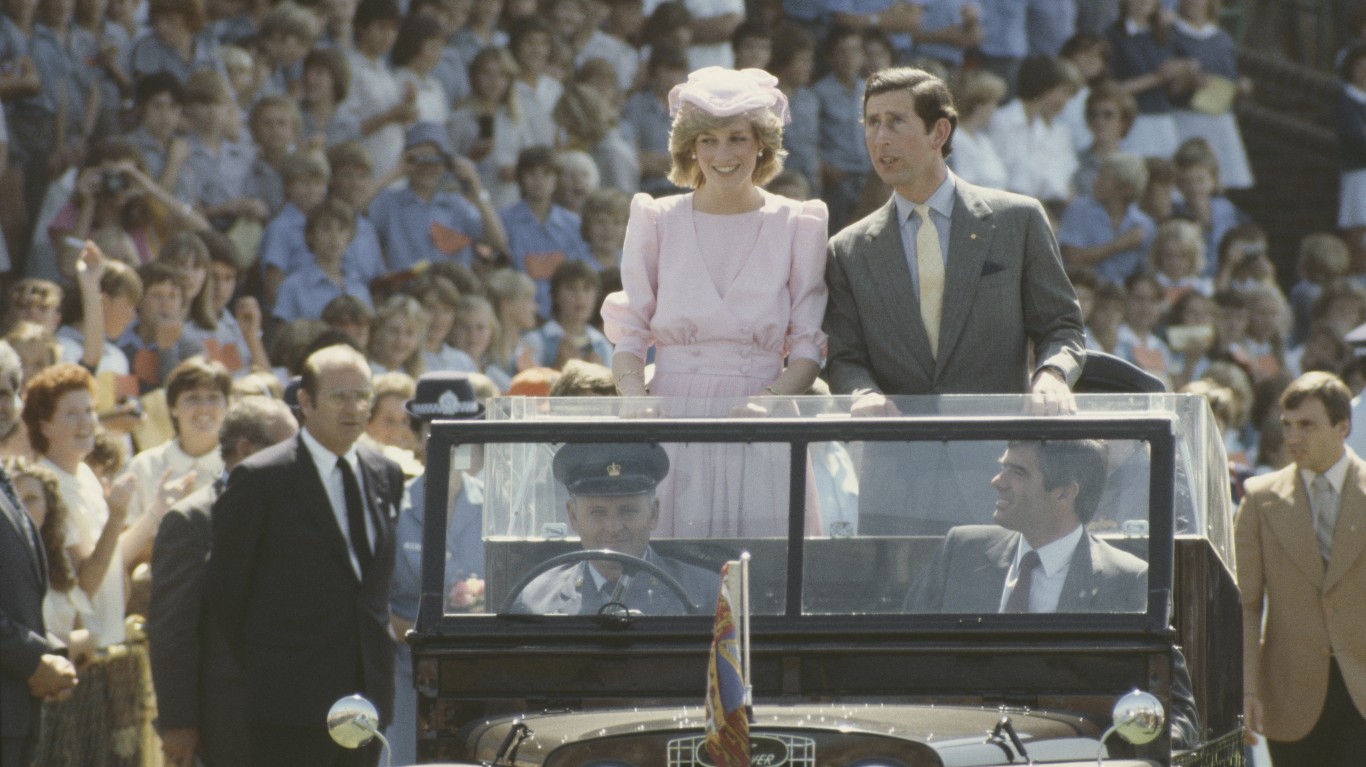
1983
> Event: Australian tour by Charles and Diana
Charles and Diana set out on an intense tour of Australia just as the country’s newly elected Labour leader, Bob Hawke, announced that he wanted to end his nation’s membership in the Commonwealth. The couple covered about 30,000 miles and made as many as eight appearances a day. Diana broke royal precedent by bringing baby Prince William with her. The trip was covered extensively by the media, and Diana proved to be an extremely popular figure, winning over even Hawke. It is said that she returned to England a star.
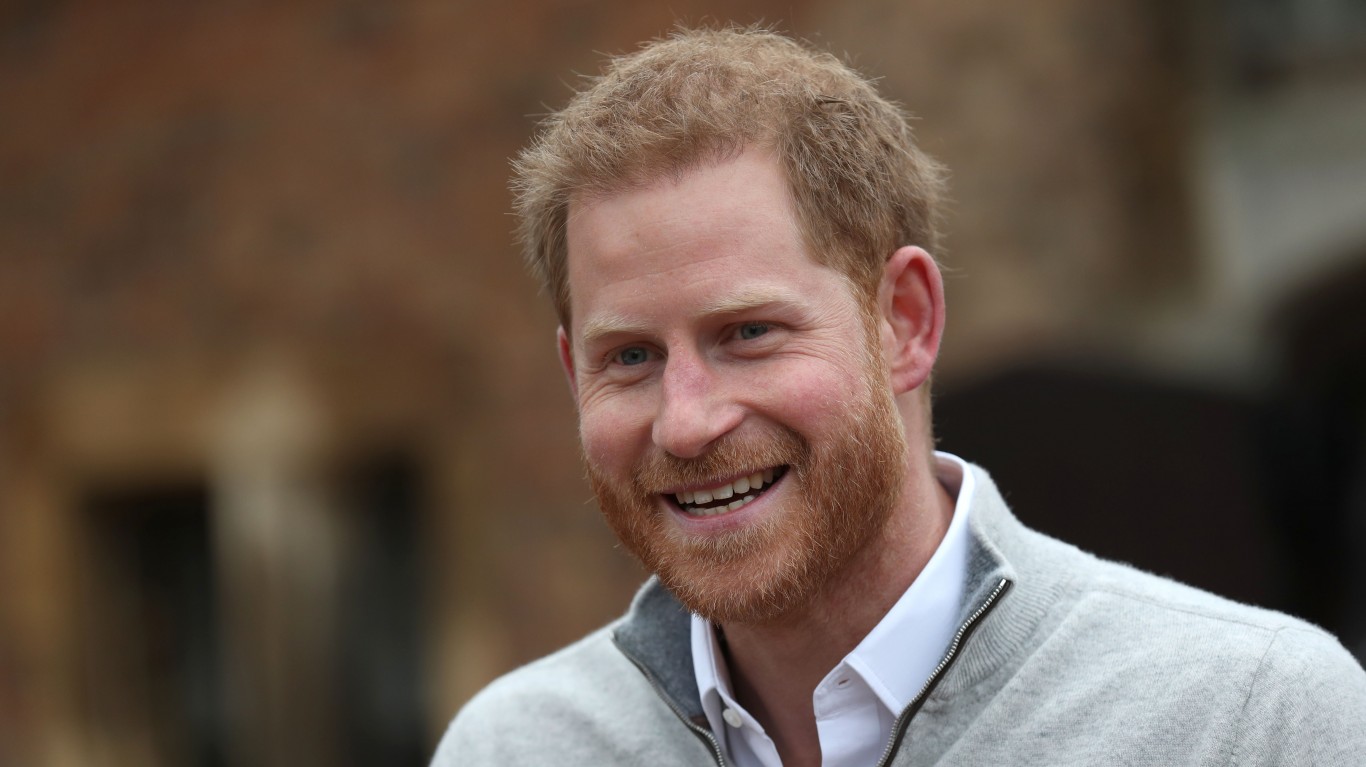
1984
> Event: Birth of Prince Harry
The second child of Charles and Diana, Harry is sixth in the line of succession to the British throne. After completing high school, Harry took a gap year in Australia where he worked on a cattle ranch. Later, as part of his expected military service, he deployed to two tours of Afghanistan in 2007 and ’08 and again in 2012 and ’13. In 2018, he married American actress Meghan Markle.
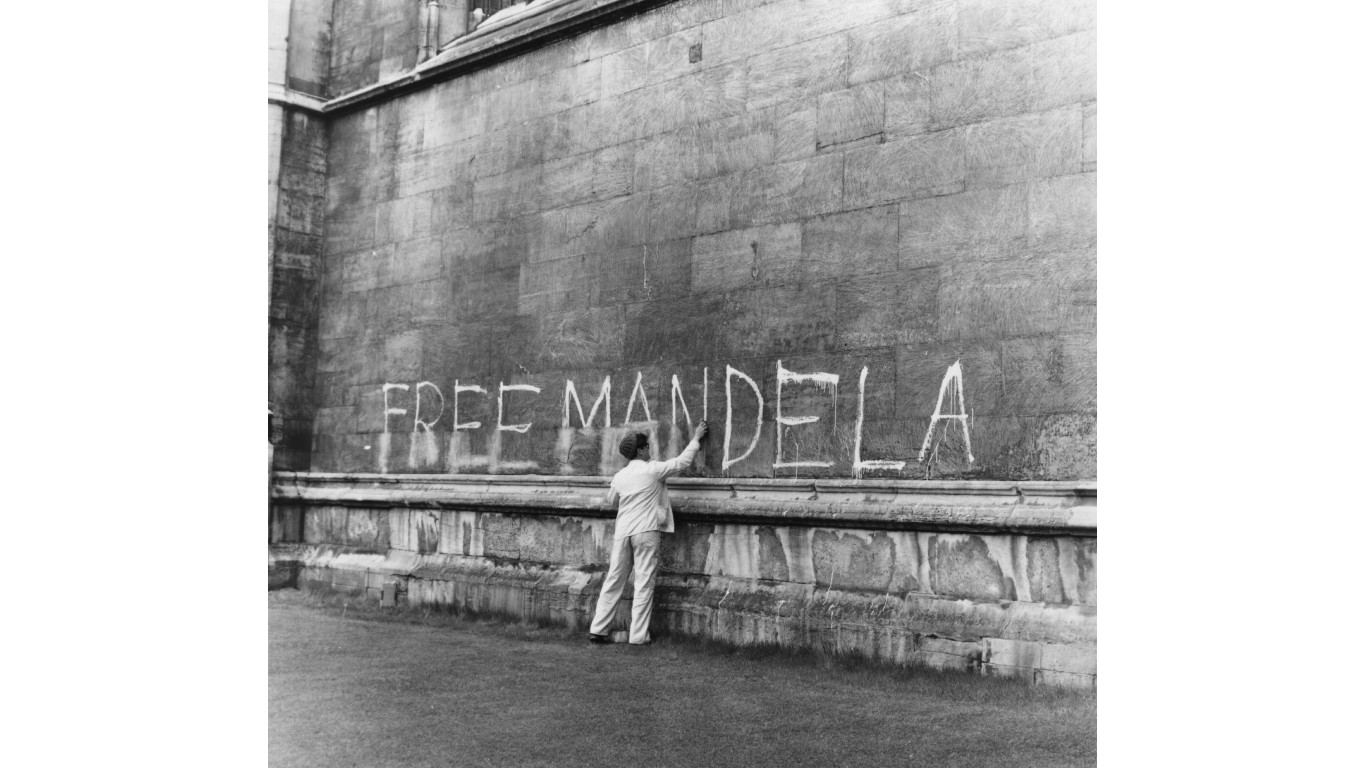
1985
> Event: The Nassau Accord
The Queen attended the 1985 meeting of the Commonwealth of Nations, held in Nassau, the capital of the Bahamas. A major takeaway from the event was the Nassau Accord, which called on the government of South Africa to dismantle apartheid and end its occupation of Namibia.
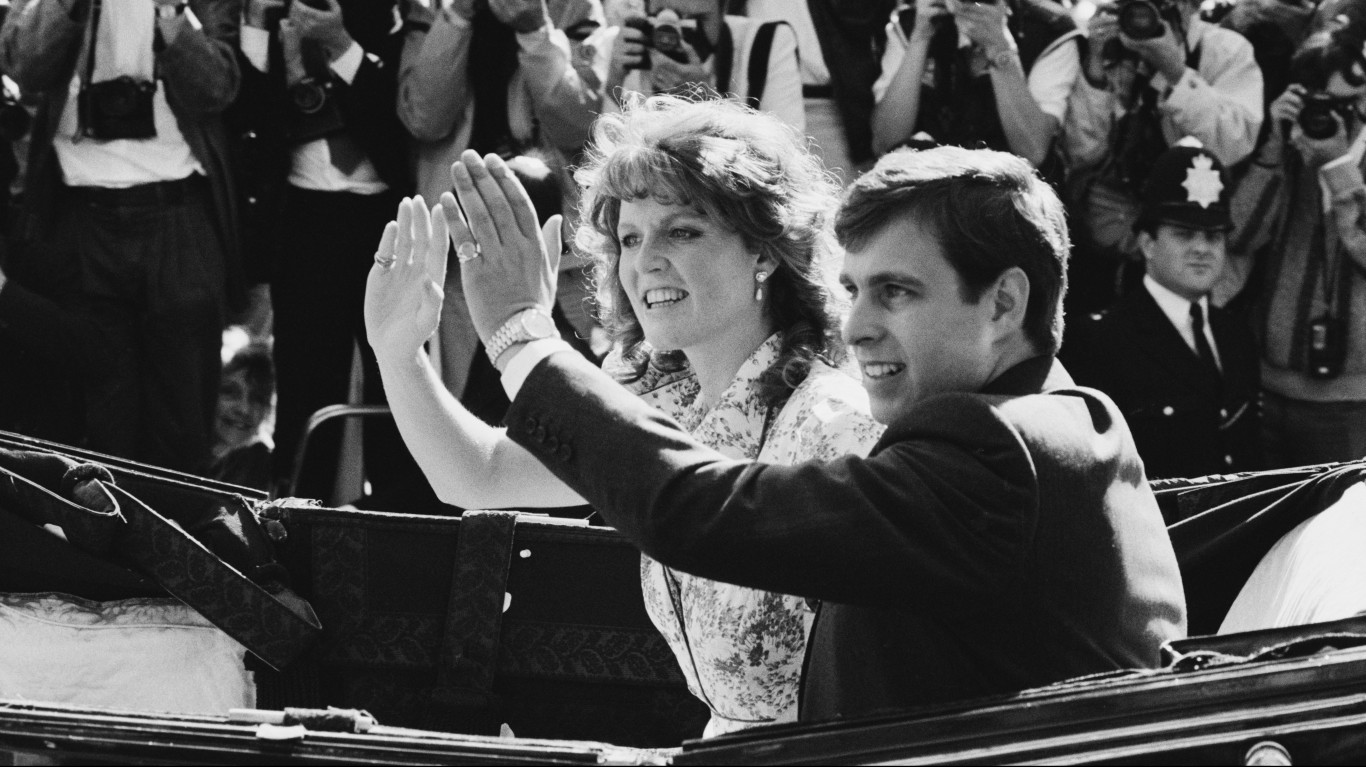
1986
> Event: Wedding of Prince Andrew and Sarah Ferguson
In 1986, Prince Andrew married commoner Sarah Ferguson at Westminster Abbey. The two had known each other since childhood but did not begin dating until 1985. The couple separated in 1992 and officially divorced four years later. Their split drew considerable media attention, as divorce was not considered normal for royals. Andrew and Sarah had two children, princesses Beatrice and Eugenie. Andrews has been accused of child sexual abuse linked to deceased financier Jeffrey Epstein, and has stepped back from public life.
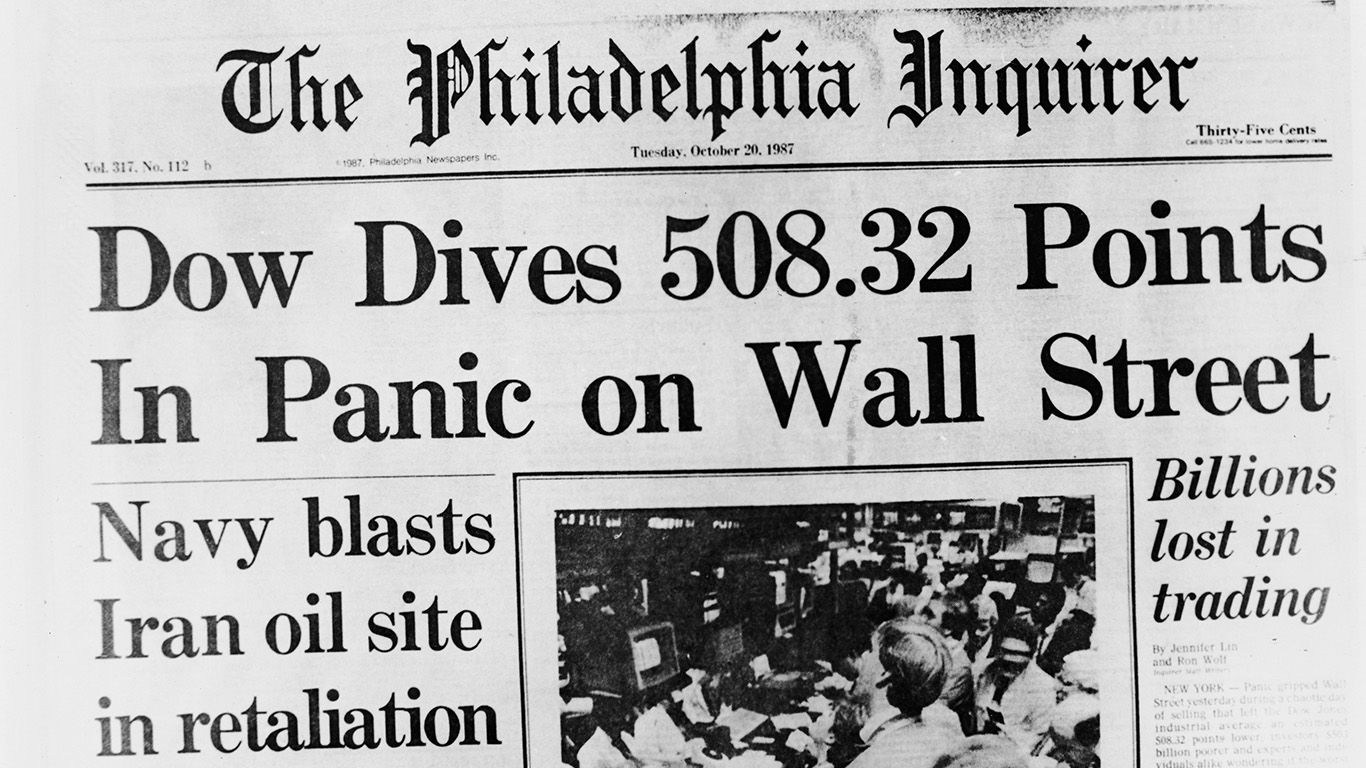
1987
> Event: Black Monday
On Monday, October 19, 1987, stocks crashed internationally, affecting all major world markets. Financial transactions in the U.K. had been halted unexpectedly the previous Friday due to the so-called Great Storm — an extratropical cyclone that ravaged the country — and this exacerbated the effects of the crash on British markets. There were fears that the crash could create a prolonged economic crisis, potentially even rivaling the Great Depression, but by 1989, stocks had begun to rebound.
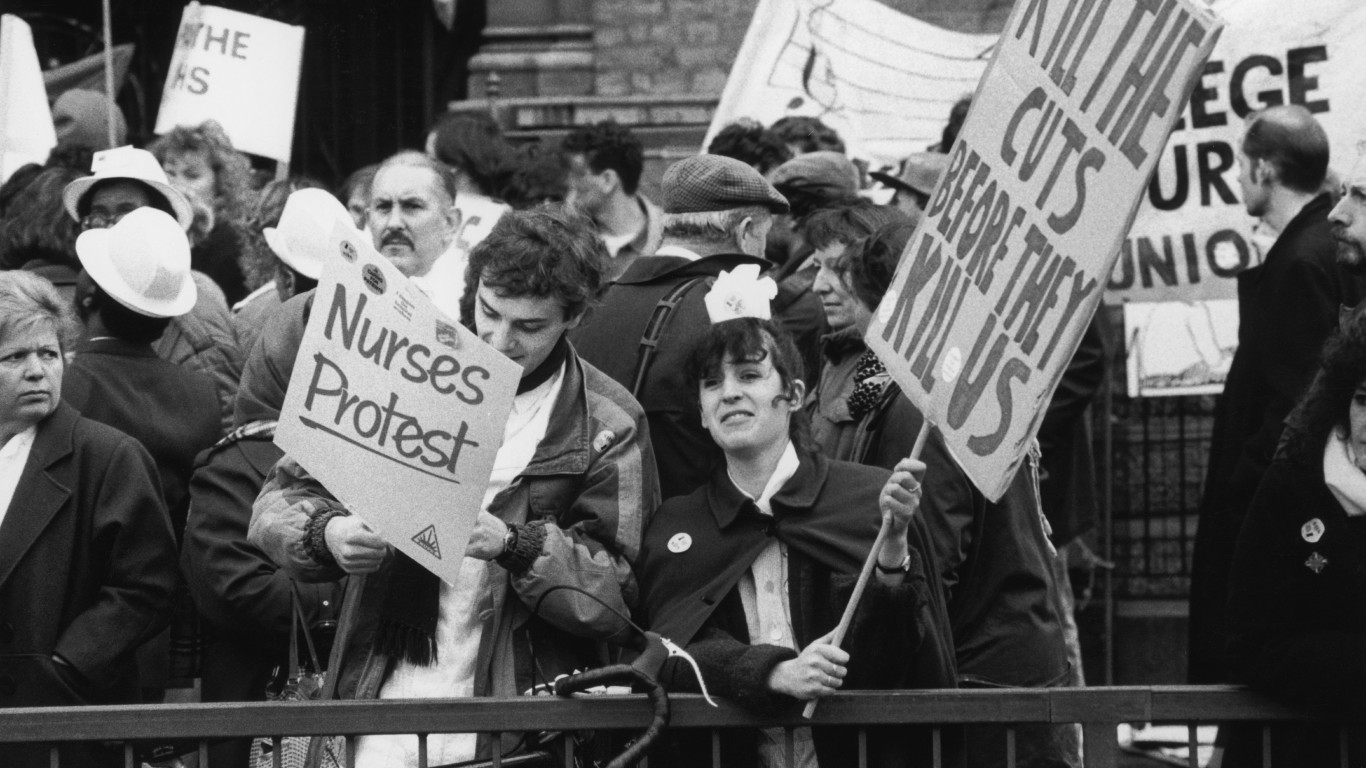
1988
> Event: Nurses’ protest
In February of the year, nurses across the United Kingdom took part in a day of “industrial action,” striking to secure better pay for themselves and more financing for the National Health Service. Prime Minister Margaret Thatcher condemned the strike, saying it would cost patients treatment time. However, the majority of nurses joined picket lines during their breaks or arranged for someone to cover their shifts. Queen Elizabeth II did not comment on the protest.
[in-text-ad-2]
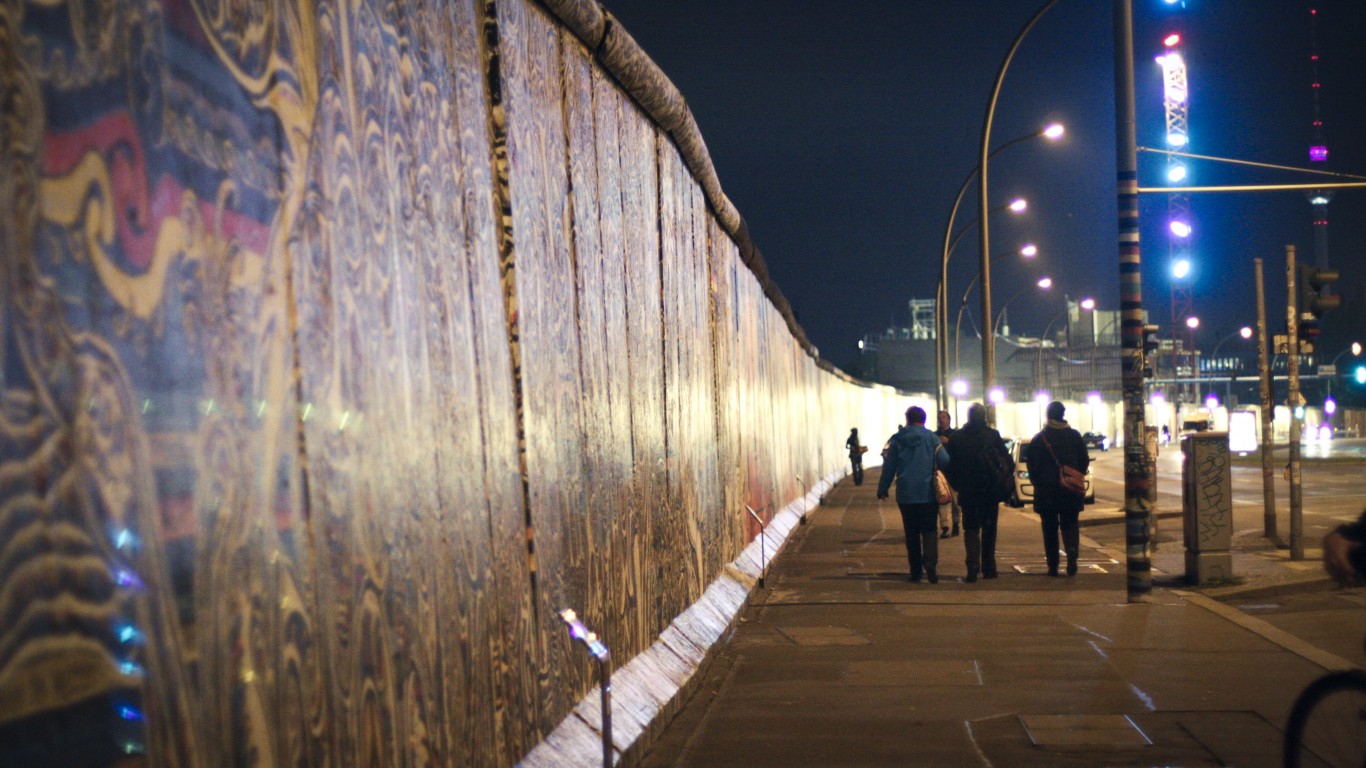
1989
> Event: Fall of the Berlin Wall
The fall of the Berlin Wall in November of the year was a landmark moment that marked the symbolic end of the Cold War, led to the ultimate reunification of Germany, and triggered the beginning of the breakup of the Soviet Union and the resultant substantial change in world geopolitics. Queen Elizabeth was popular in West Berlin; when she visited in 1965, more than a million people lined the streets to greet her. She visited on other occasions, including a trip in 1987.
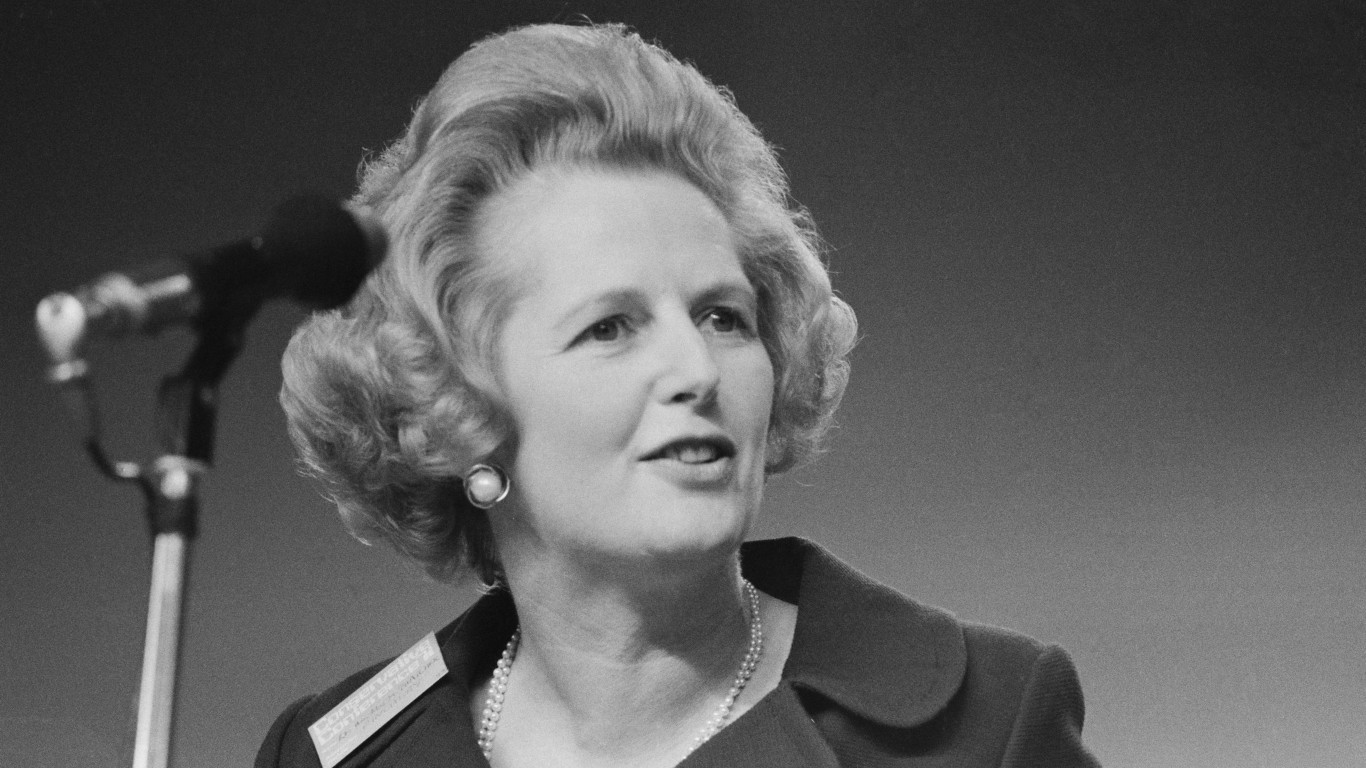
1990
> Event: Resignation of Margaret Thatcher
Throughout her time in office, Thatcher maintained one of the lowest average approval ratings of any post-war prime minister. She faced multiple challenges to power but was able to fend them off. Her style of governing could be very headstrong — she was known as “the Iron Lady” — and she often ignored the opinions of colleagues. In the late 1980s she began to run into disagreements with fellow members of her party which eventually led her to withdraw from leadership. Before leaving office, she held a final meeting with the Queen.
1991
> Event: Operation Desert Storm
In 1990, the Iraqi Army invaded neighboring Kuwait. Much of the international community responded with sanctions and eventually military action. Coalition forces first heavily bombed Iraq in 1991 and then launched an offensive codenamed Operation Desert Storm when Iraq didn’t surrender. British military forces played a large role from the air and on the ground. The Queen issued several honorary knighthoods to Americans who took part in the operation.

1992
> Event: “Annus horribilis”
On the Queen’s 40th anniversary on the throne, she gave a speech calling 1992 an “annus horribilis” — Latin for “terrible year.” The year saw Prince Andrew separate from his wife and Princess Anne divorce her husband. It was also the year that Princess Diana published her tell-all book about her problems in the royal family, including revelations about her former husband’s ongoing affair with Camilla Parker Bowles. There was also a fire in Windsor Castle in 1992, one of the Queen’s residences. After her address, one further “terrible” event occurred — the separation of Prince Charles and Diana.
[in-text-ad]
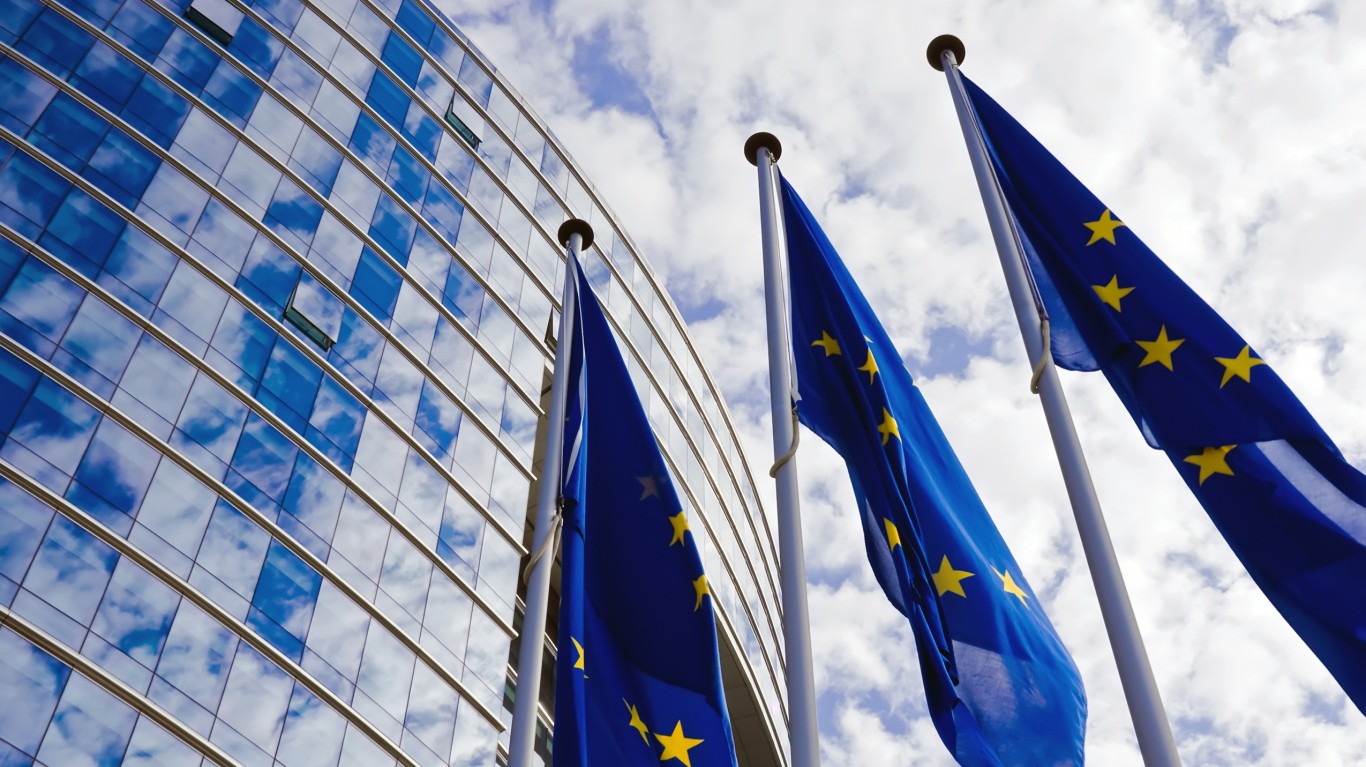
1993
> Event: Formation of the European Union
The Maastricht Treaty, signed in 1992, officially established the European Union, coming into force in November, 1993. There were originally 12 member countries, including the United Kingdom. The EU evolved out of the European Economic Community, which partly aimed to integrate European and prevent conflict after the devastation of World War II. The Queen gave her official royal assent to the treaty.
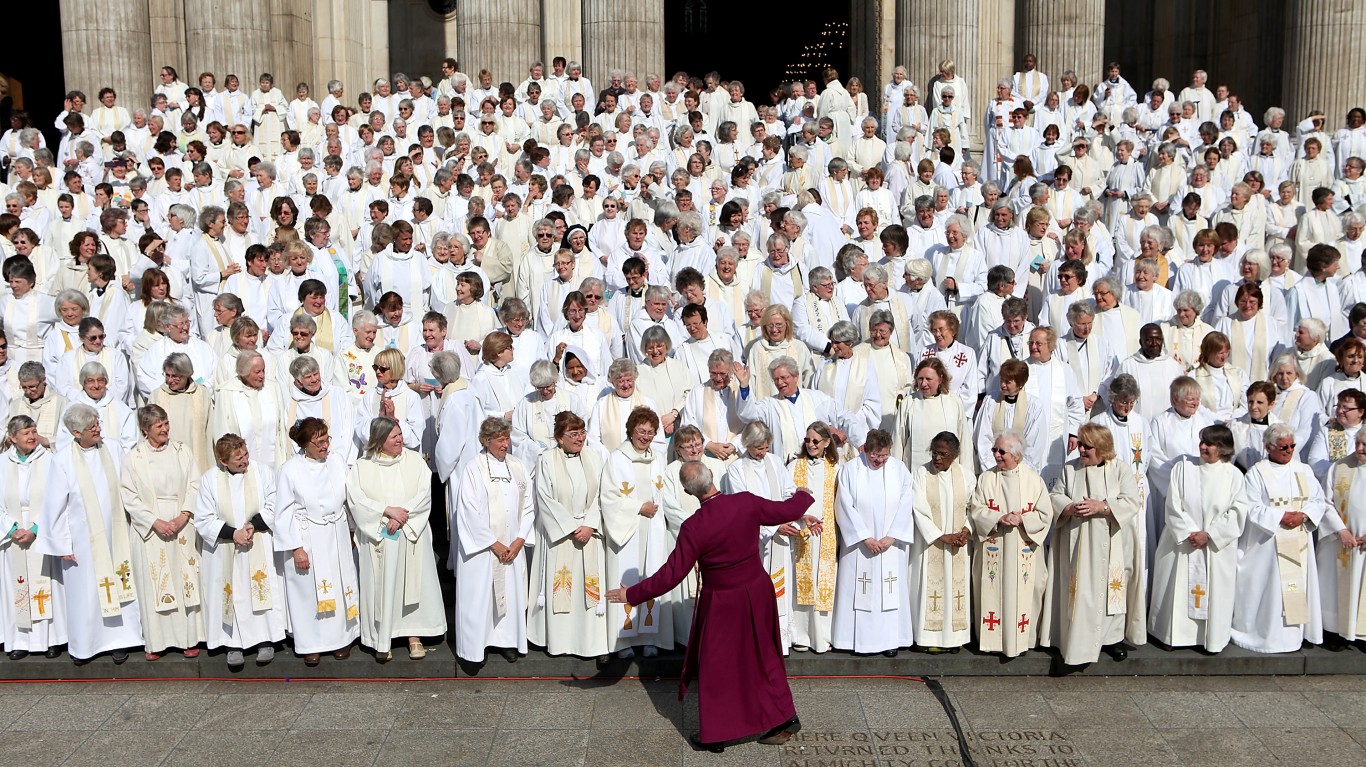
1994
> Event: First Church of England ordination of women priests
The Queen is technically the “Supreme Governor of the Church of England,” an institution which separated from the Roman Catholic Church in 1534. Women had been appointed as deaconesses in the Church of England since 1861, but it wasn’t until 1992 that they were granted the right to become ordained clergy, with the practice going into force in 1994.
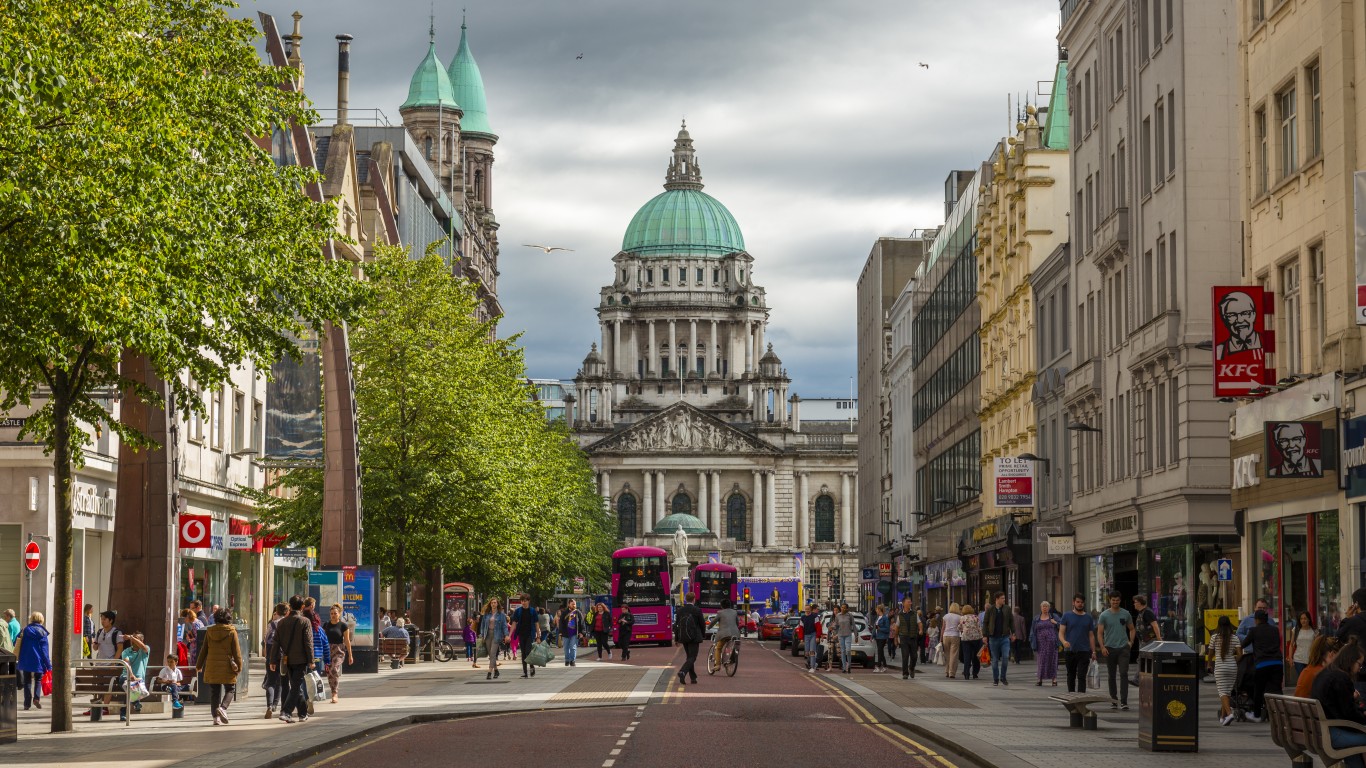
1995
> Event: Visit of the Queen to Northern Ireland
The Queen’s 1995 visit to Belfast, North Ireland, was the first since a ceasefire came into effect between the Irish Republican Army and Loyalist forces. The Queen met with the Roman Catholic Primate and other Catholic officials. Her visit was seen as a way of encouraging the ongoing peace process that aimed to end The Troubles.
1996
> Event: Cloning of Dolly the Sheep
Dolly the Sheep was the first mammal cloned from an adult somatic cell. The procedure led to widespread advancement with stem cell research. Dolly produced several lambs during her lifetime, and was put to sleep after contracting a progressive lung disease unrelated to her cloning. Dolly was created and lived her life at the Roslin Institute in Scotland. One of the lead researchers, Ian Wilmut, received the Order of the British Empire from the Queen in 1999 and was knighted in 2008.
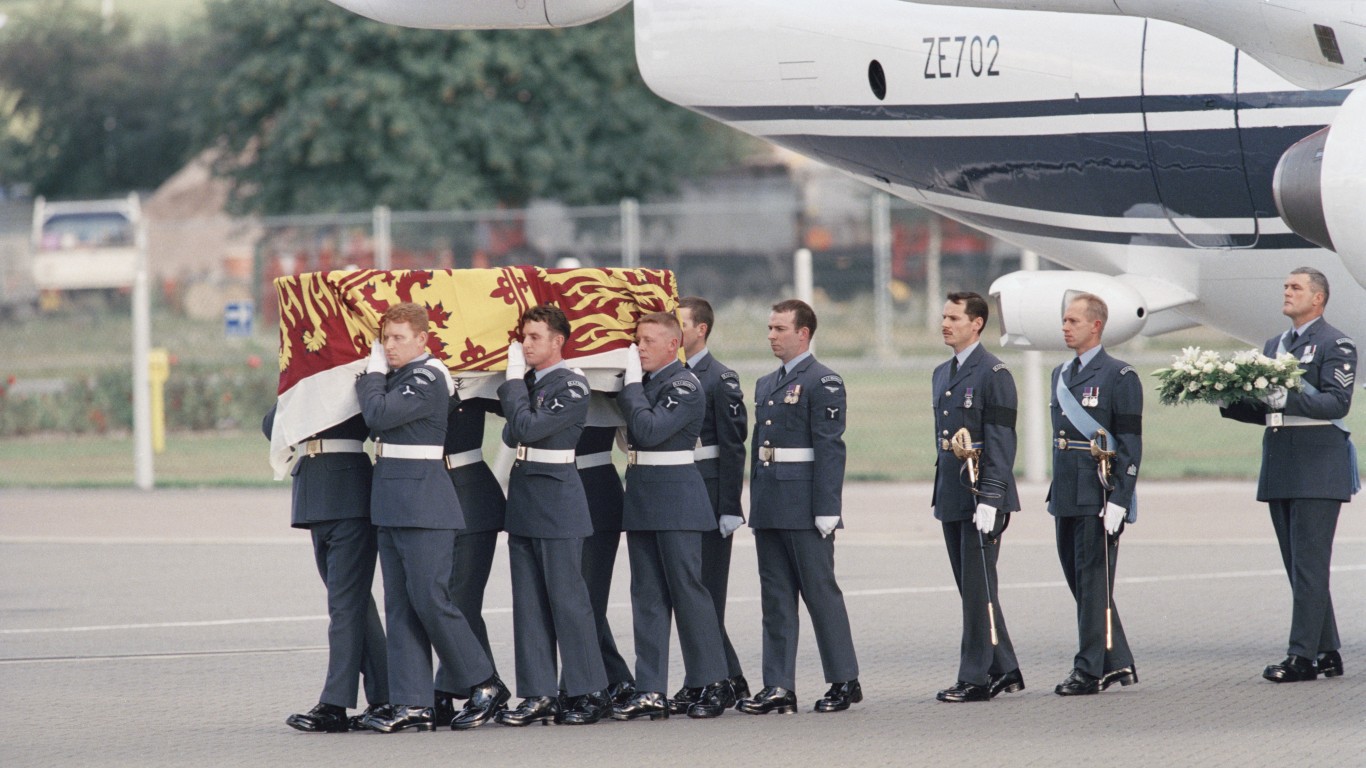
1997
> Event: Death of Princess Diana
One year after divorcing Prince Charles, Princess Diana was killed in a car crash in Paris. The car she was riding in was fleeing from paparazzi and everyone but one of Diana’s bodyguards died in the accident. The televised funeral of “the People’s Princess” was one of the most highly viewed events ever in British history. Queen Elizabeth paid tribute to the princess in a TV broadcast the day before the funeral.

1998
> Event: Good Friday Agreement
The Good Friday Agreement was actually a pair of agreements signed on April 10, 1998, that ended most of the violence related to The Troubles. The agreement involved questions of sovereignty, civil rights, demilitarization, and justice. Citizens of both the Republican of Ireland and Northern Ireland voted in a referendum to approve the measures. Irish President Mary McAleese had lunch with the Queen in Buckingham Palace the day after part of the agreement went into effect in 1999.
[in-text-ad-2]
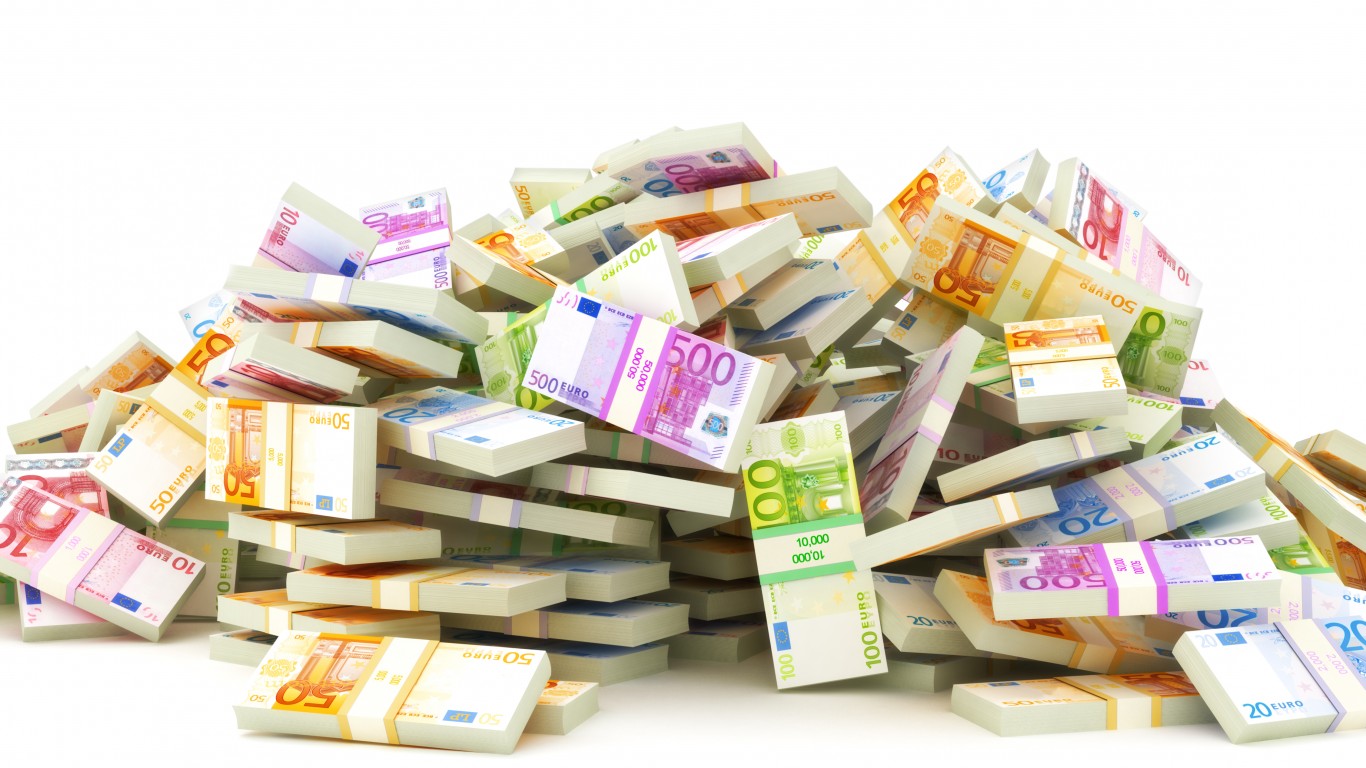
1999
> Event: Refusal to join the Eurozone
The euro was introduced as the official currency of the European Union in 1999. The U.K. had opted out of joining the Eurozone in 1993, but a new effort was made to convert Britain’s age-old sterling units. Although projections showed that Eurozone participation would increase the U.K.’s GDP and would be good for trade, public opinion was against it and the nation reiterated its desire to keep its own currency.
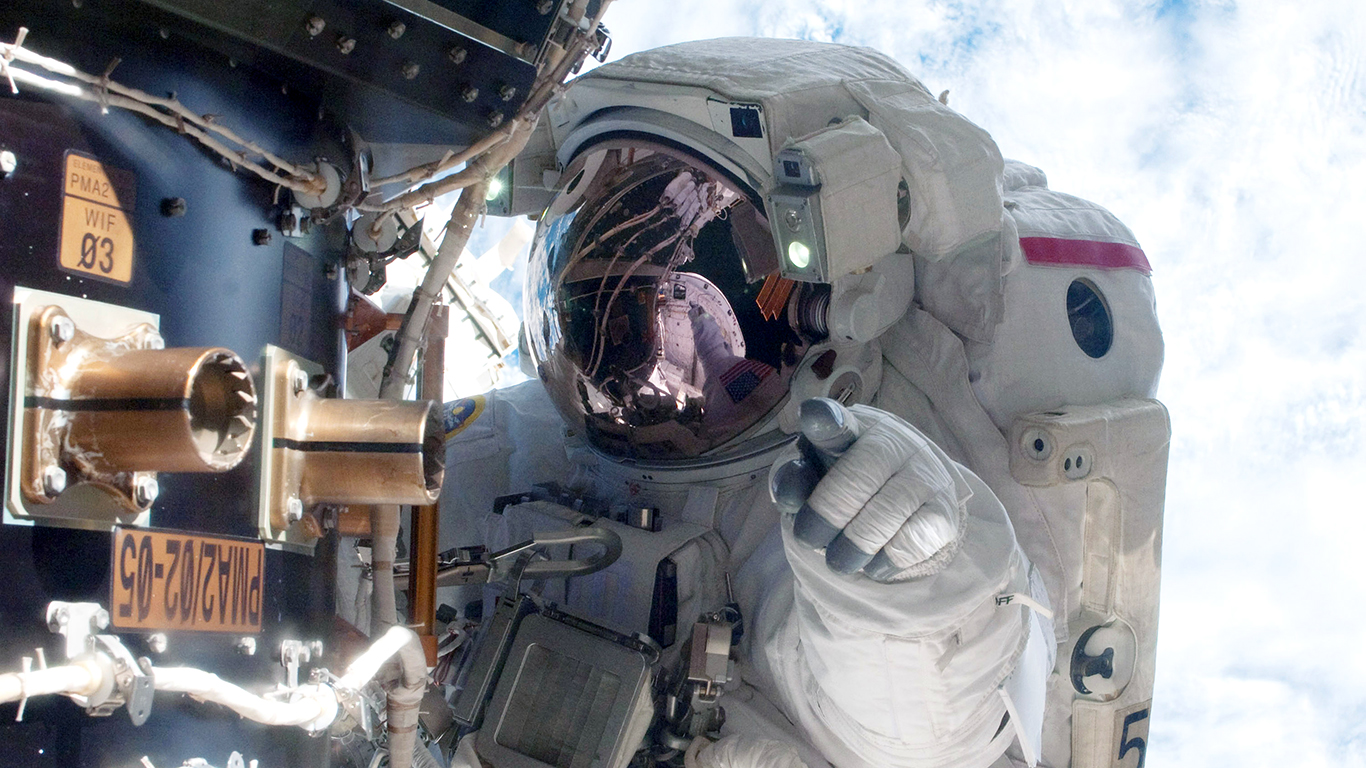
2000
> Event: Population of the International Space Station
The ISS is a habitable artificial satellite in low Earth orbit. The first components were launched in 1998 and the first official long-term residents arrived in 2000. The space station is a joint effort between five space agencies and more than 15 nations. The Queen has celebrated the British astronauts sent to the space station over the years and she spoke with some onboard the ISS in 2007.
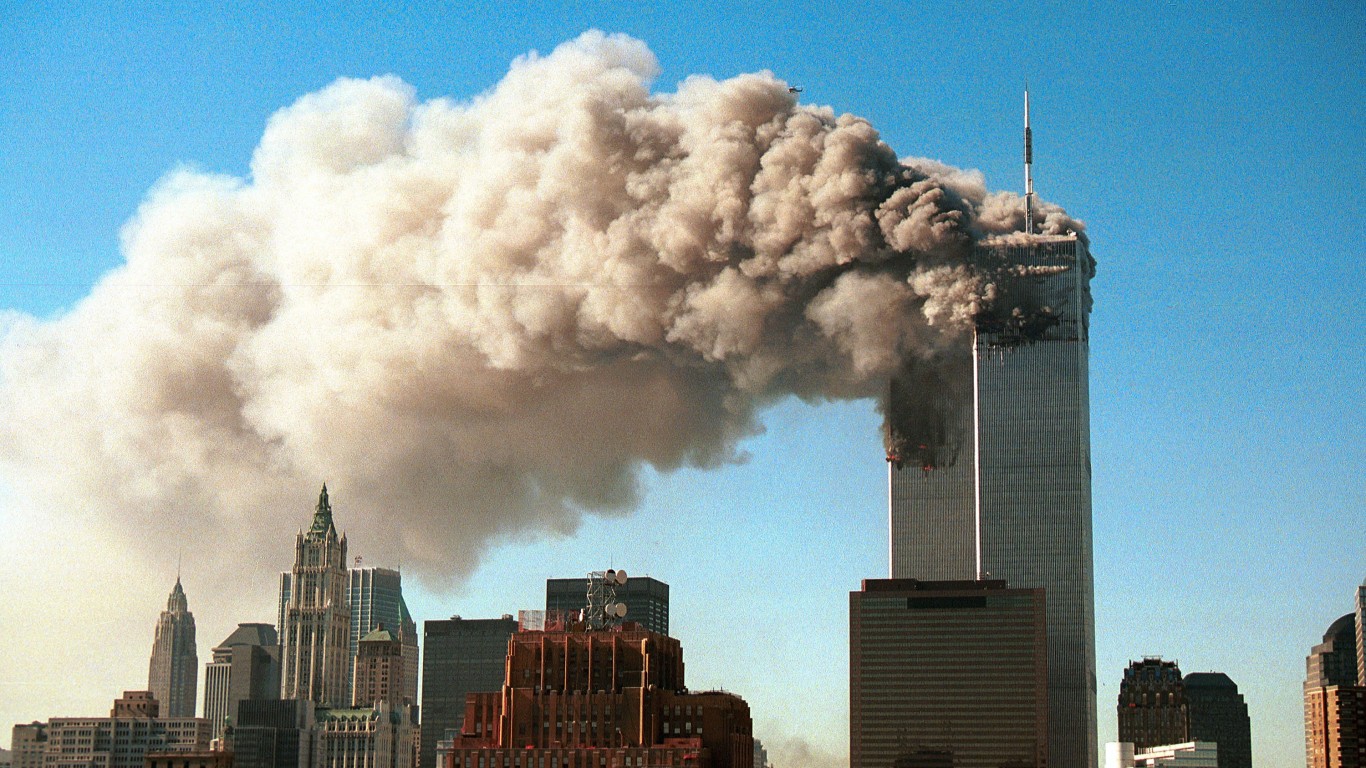
2001
> Event: September 11th attacks
The terrorist attacks on September 11th, 2001, shocked the world and were a watershed moment that would change history for the United States, the United Kingdom, and many other nations around the world. Following the attacks, the Queen violated a 600-year-old royal custom and instructed the band of the Coldstream Guards to play the American national anthem at the daily changing of the guard at Buckingham Palace in a show of support for Americans in London. The Queen asked for the anthem to be played again this year to mark the 20th anniversary of the attacks.
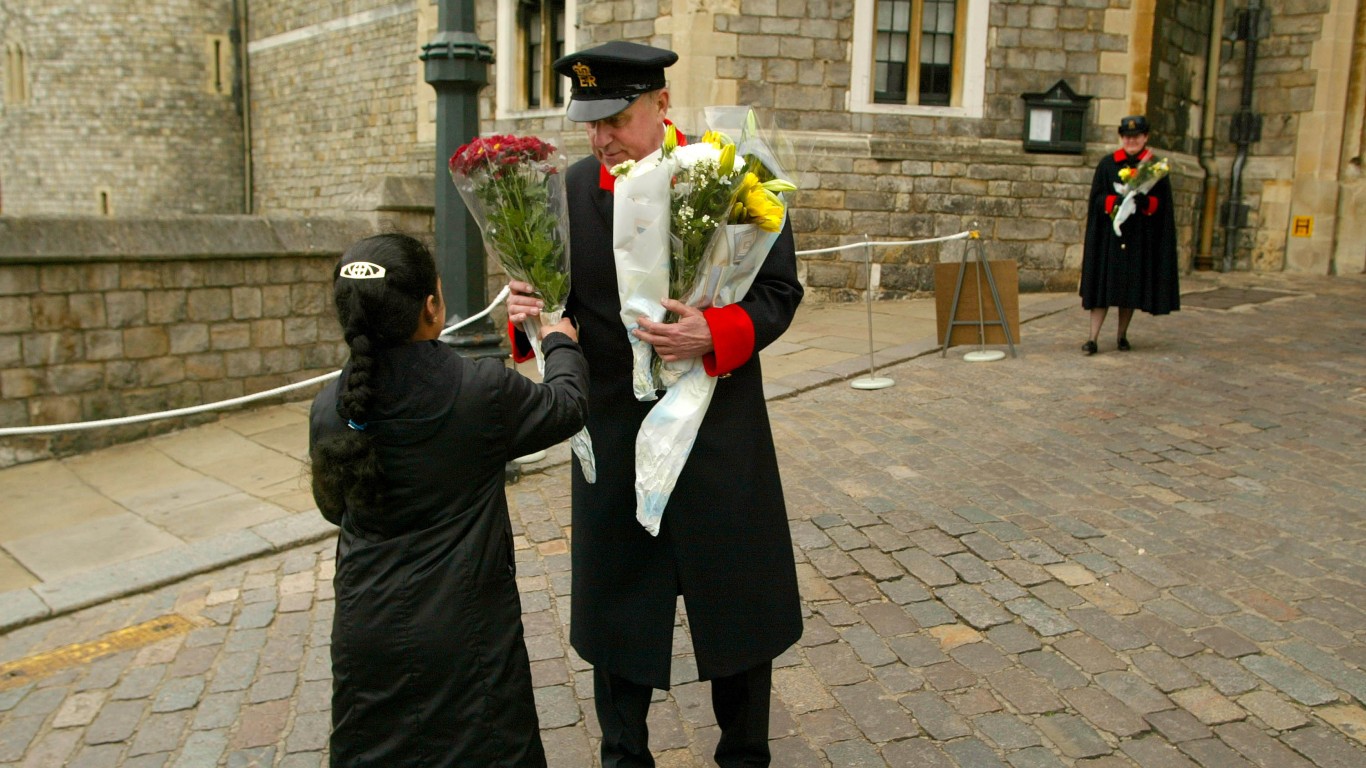
2002
> Event: Deaths of Princess Margaret and the Queen Mother
In 2002, the Queen lost her mother and her sister. Princess Margaret, Elizabeth’s younger sister, died in February at the age of 71. Her mother, known officially as Queen Elizabeth the Queen Mother, died at the age of 101 in March. The Queen Mother’s husband, George VI, became king unexpectedly in 1936 when his older brother, Edward VIII, abdicated in order to marry a divorced American woman, Wallis Simpson. As head of the Church of England, his marriage to a divorcée would have been unacceptable.
[in-text-ad]
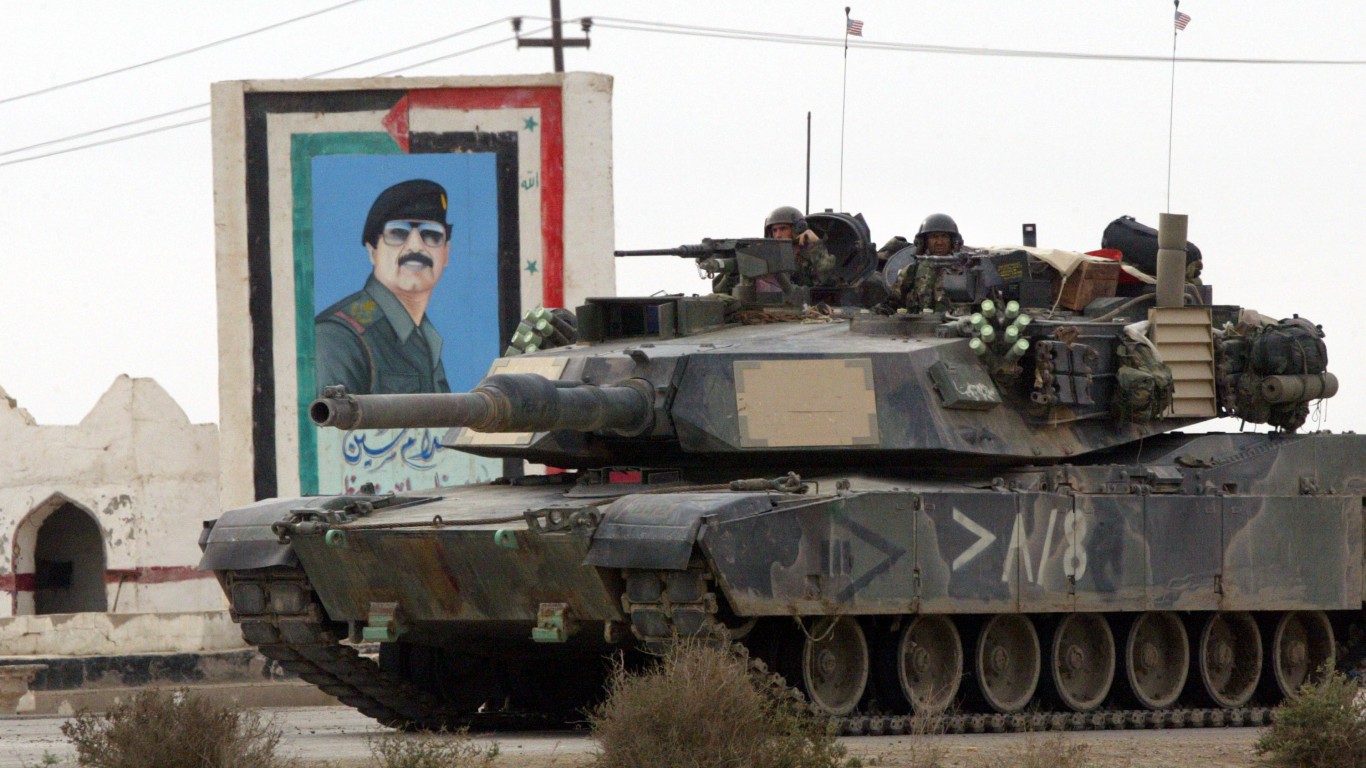
2003
> Event: Invasion of Iraq
After claiming that Iraqi leader Saddam Hussein possessed weapons of mass destruction and was somehow linked to Al-Qaeda in Afghanistan, the United States invaded Iraq. The United Kingdom, along with a coalition of allied forces, also took part in the invasion. In 2006, the Queen sent a special message to troops fighting in Iraq and Afghanistan and thanked them for their service.
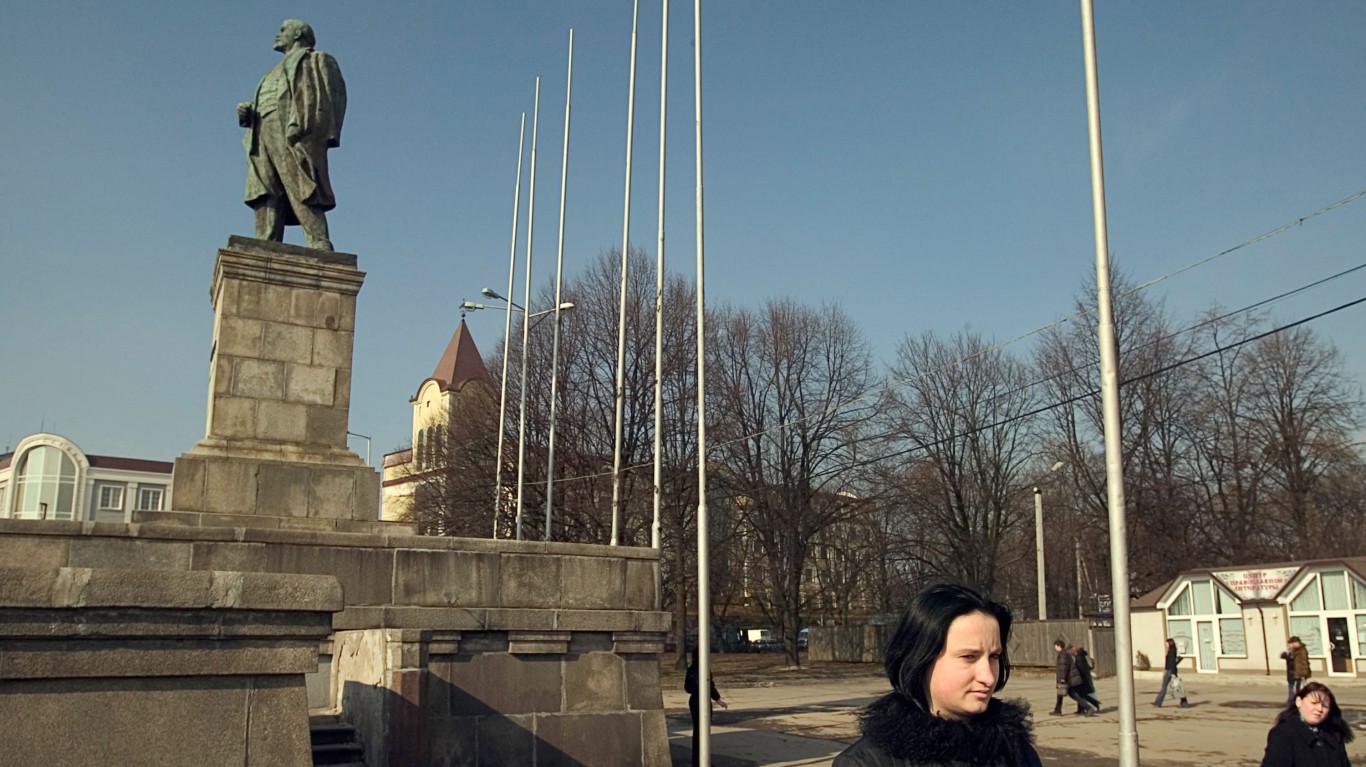
2004
> Event: Expansion of the E.U.
In 2004, the European Union expanded substantially with the addition of 10 new countries. The majority were formerly part of the Eastern bloc, and three had belonged to the Soviet Union. Two more countries, Bulgaria and Romania, were able to join in 2007. The U.K. chose not to put any limits on freedom of movement between member countries at the time, but this decision may have led to anti-immigrant sentiments and eventually played a role in Brexit.
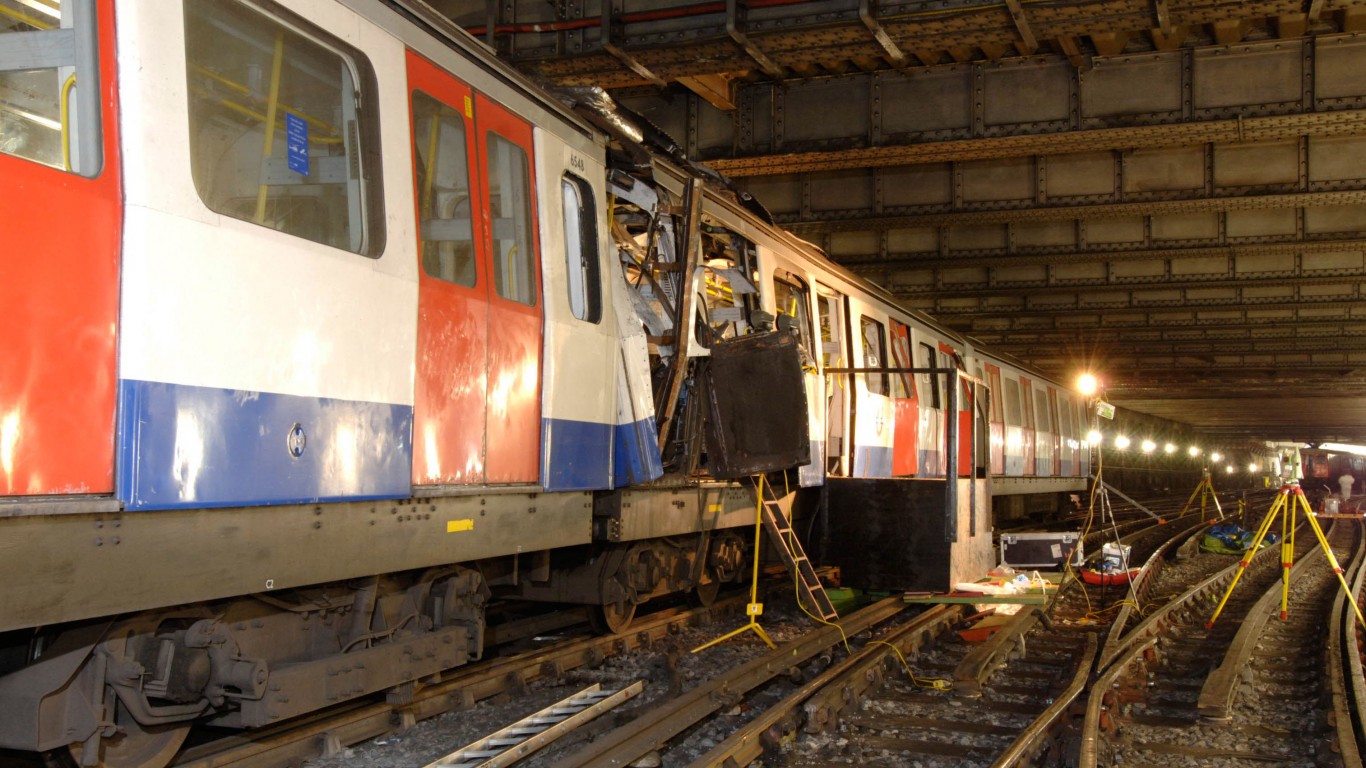
2005
> Event: Terrorist attack on the Underground
On July 7, 2005, terrorists detonated homemade explosives on three separate London Underground trains, and set off a fourth bomb on a double-decker bus. It was the country’s first radical Islamist terrorist attack and it left over 50 people dead and more than 700 injured. In the United States, the U.S. Army band played the British national anthem as a tribute, echoing the Queen’s similar gesture in London after 9/11.
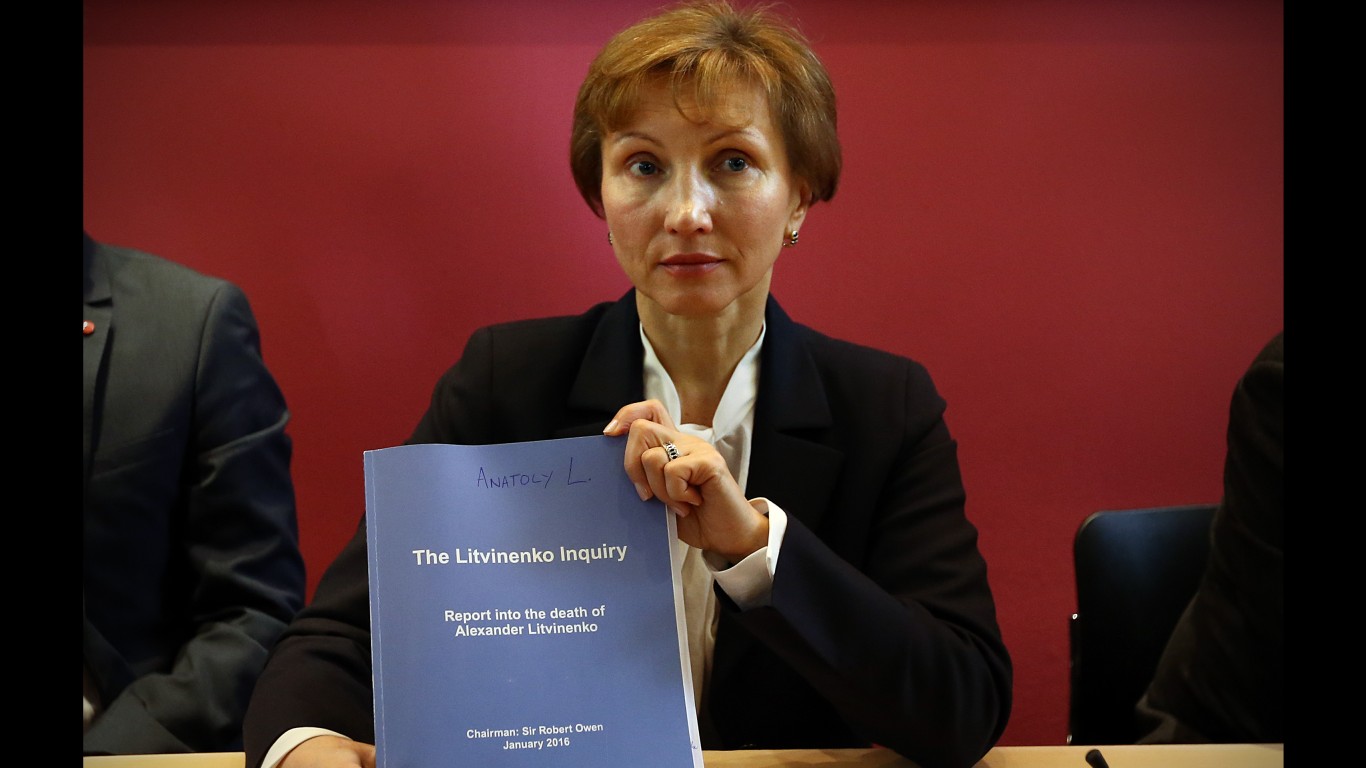
2006
> Event: Assassination of Alexander Litvinenko
Alexander Litvinenko, a former officer of the KGB and Russian Federal Security Service, fled to the United Kingdom fearing retribution after he spoke out about corruption under Vladimir Putin. Six years after fleeing, he was poisoned with a radioactive isotope by two Russian agents. On his deathbed, Litvinenko accused Putin, and drew international media attention. The killing led to difficulties in the relationship between the United Kingdom and Russia. The Queen later bestowed knighthood on the chief advisor of Britain’s Health Protection Agency for organizing public safety measures after the killing.
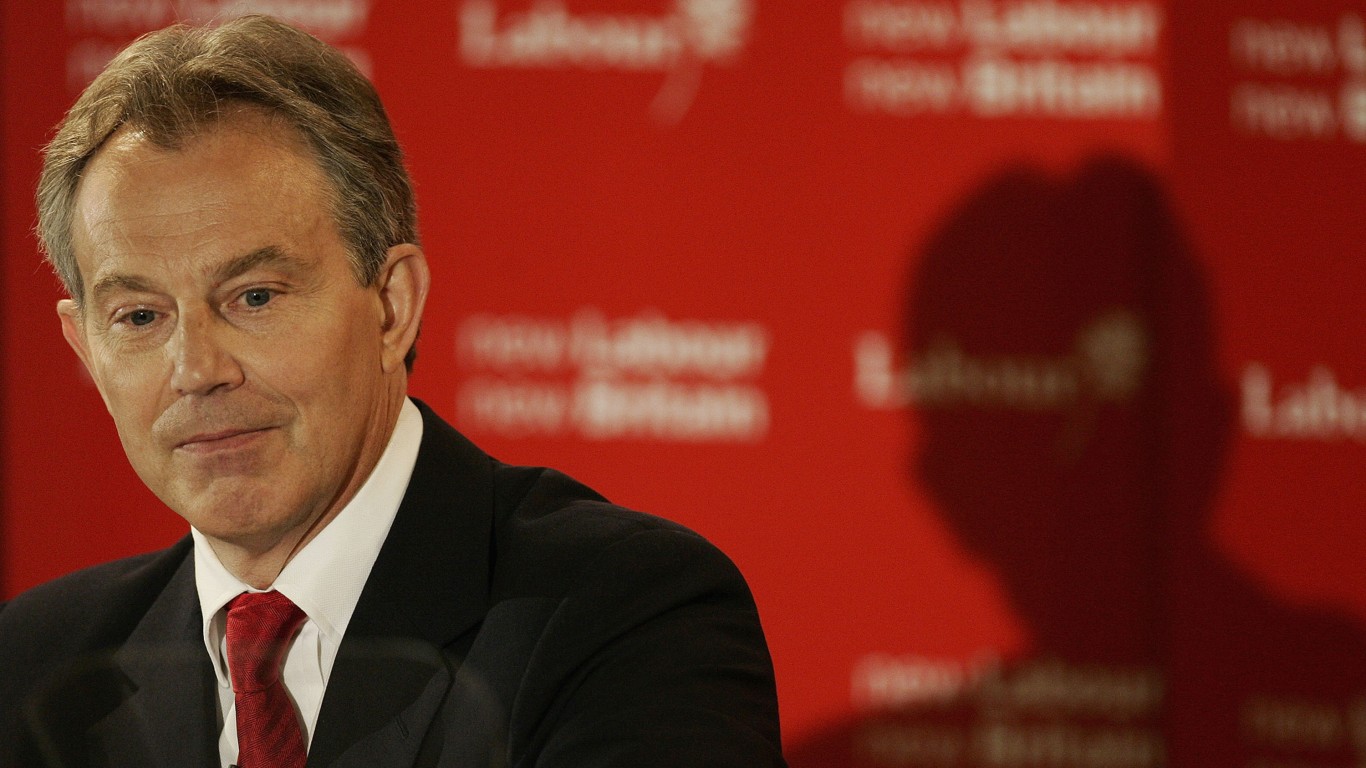
2007
> Event: Resignation of Tony Blair
Tony Blair was prime minister from 1997 to 2007. He was the first person born after Queen Elizabeth’s accession to the throne to hold that office. He ordered British troops into combat five times including missions in Iraq, Afghanistan, and Kosovo and was accused of misleading parliament and plunging the country into the Iraq War. He lost popularity as the war dragged on and was blamed for a major parliamentary defeat of Labour candidates in the 2005 general election. In June of 2007, he handed over leadership of the Labour Party to Gordon Brown, and resigned as prime minister three days later.
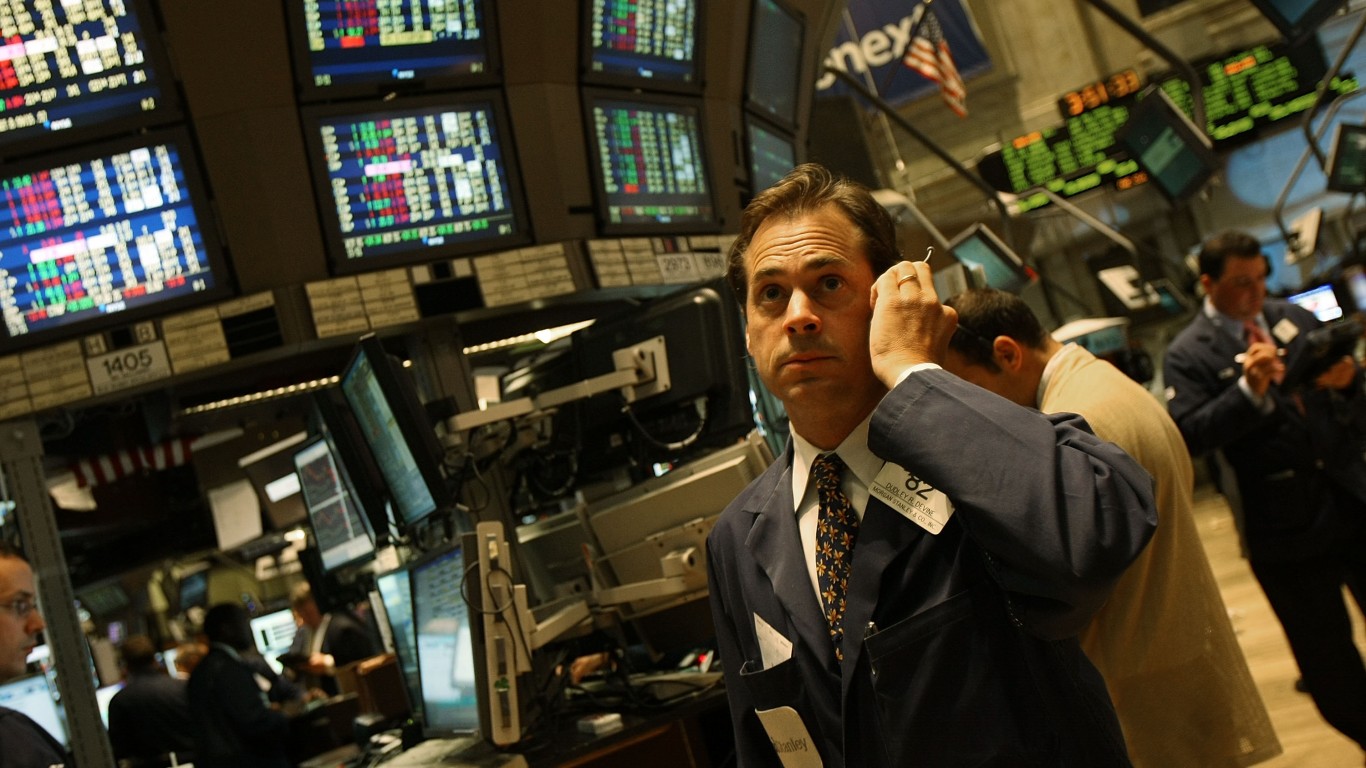
2008
> Event: Financial collapse
The world’s financial system began to feel the effects of a so-called “perfect storm” of financial irresponsibility and predatory lending in 2007, but the bankruptcy of Lehman Brothers in September of 2008 marked the beginning of a worldwide banking crisis. The United Kingdom responded to the crisis with a $500 billion bank bailout to save its failing financial institutions. The Queen canceled her 60th wedding anniversary party at the Ritz Hotel in London during the crisis.
[in-text-ad-2]
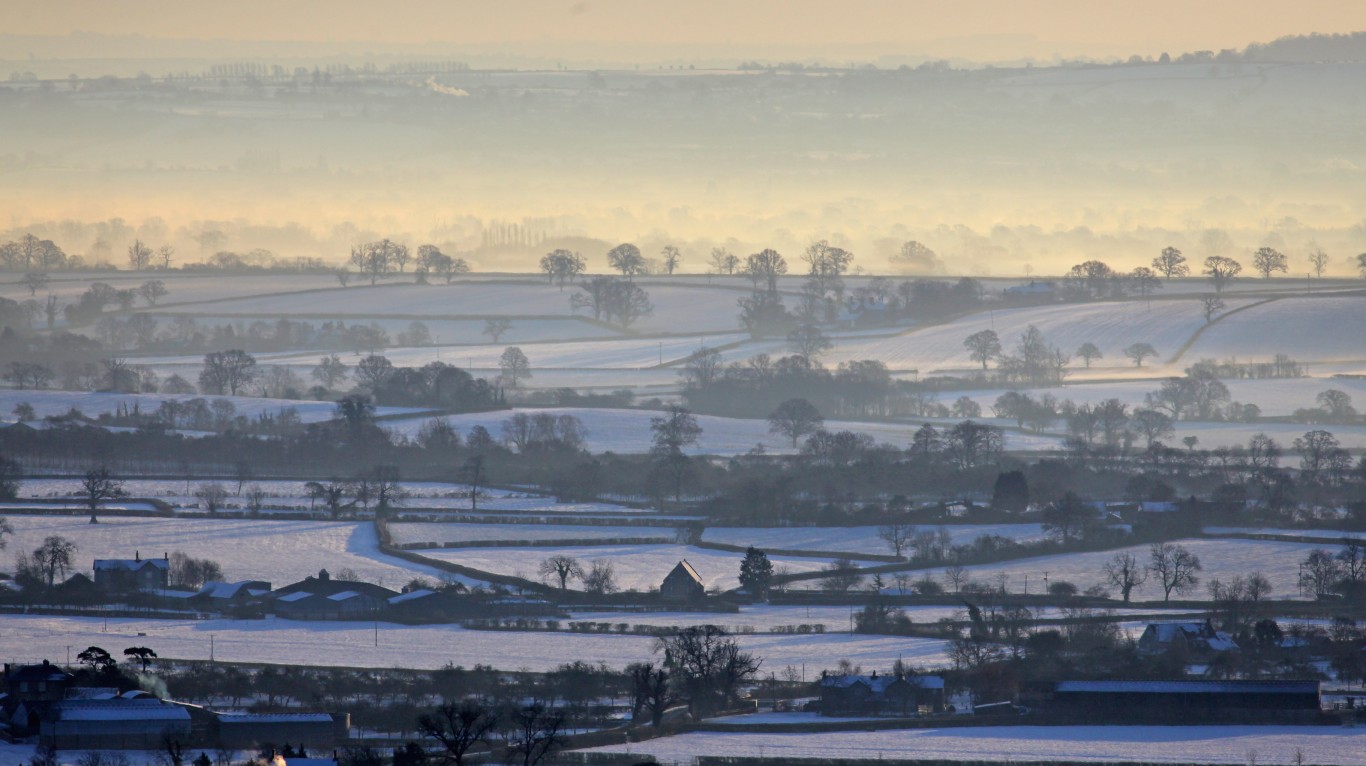
2009
> Event: Extreme snowfall
The winter of 2009-2010 in the British Isles was uncommonly extreme and led to transportation disruptions, school closures, the cancelation of sporting events, and power outages. Snow fell continuously throughout December and January with few breaks in between. Temperatures were exceptionally low, and it was recorded as the coldest winter in nearly 30 years. At least 25 people were killed by weather-related causes.
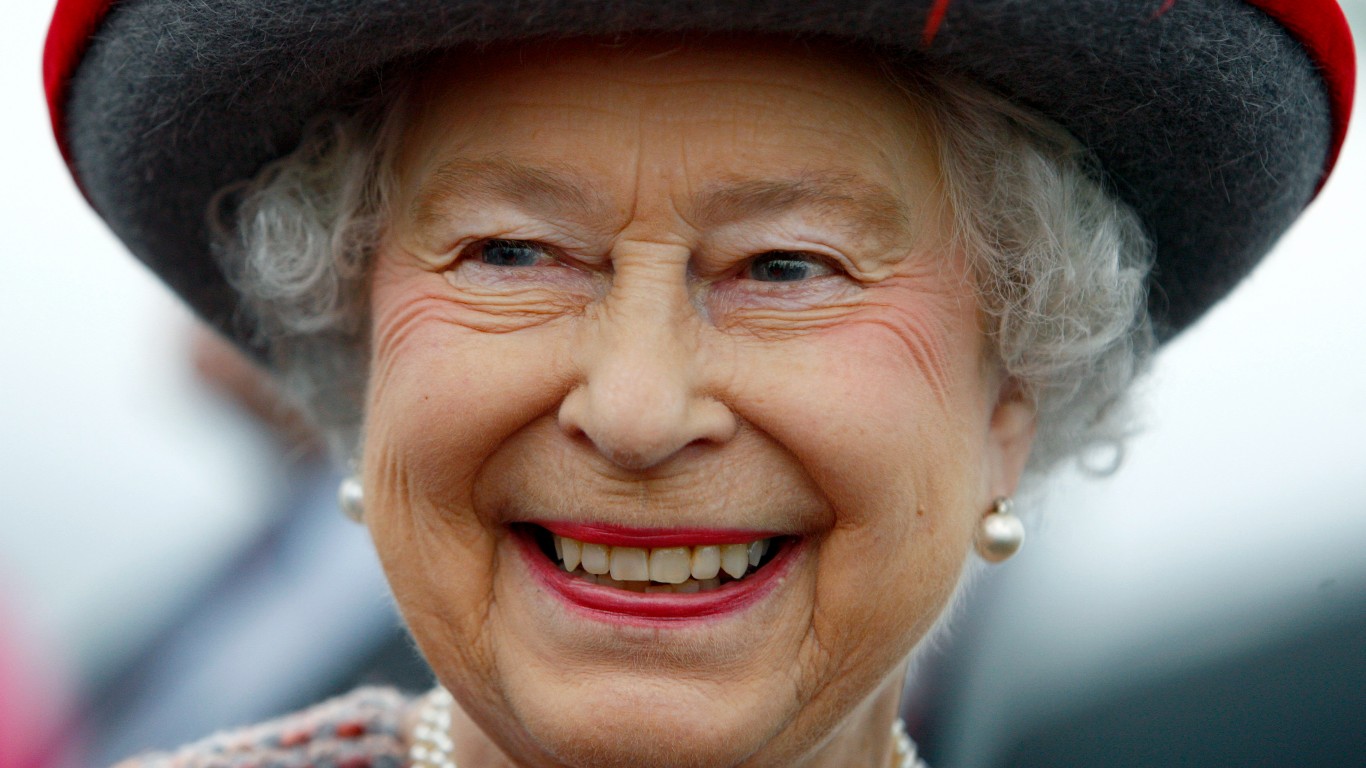
2010
> Event: Birth of Elizabeth’s first great-grandchild
Savannah Phillips, born on December 29, 2010, was the Queen’s first great-grandchild. She is Princess Anne’s grandchild and the daughter of Anne’s son, Peter Phillips, and his wife, Autumn. When she was born, Savannah was 12th in the line of succession to the throne, but her position has since dropped to 19th due to other births in the royal family. Queen Elizabeth was present at her baptism.
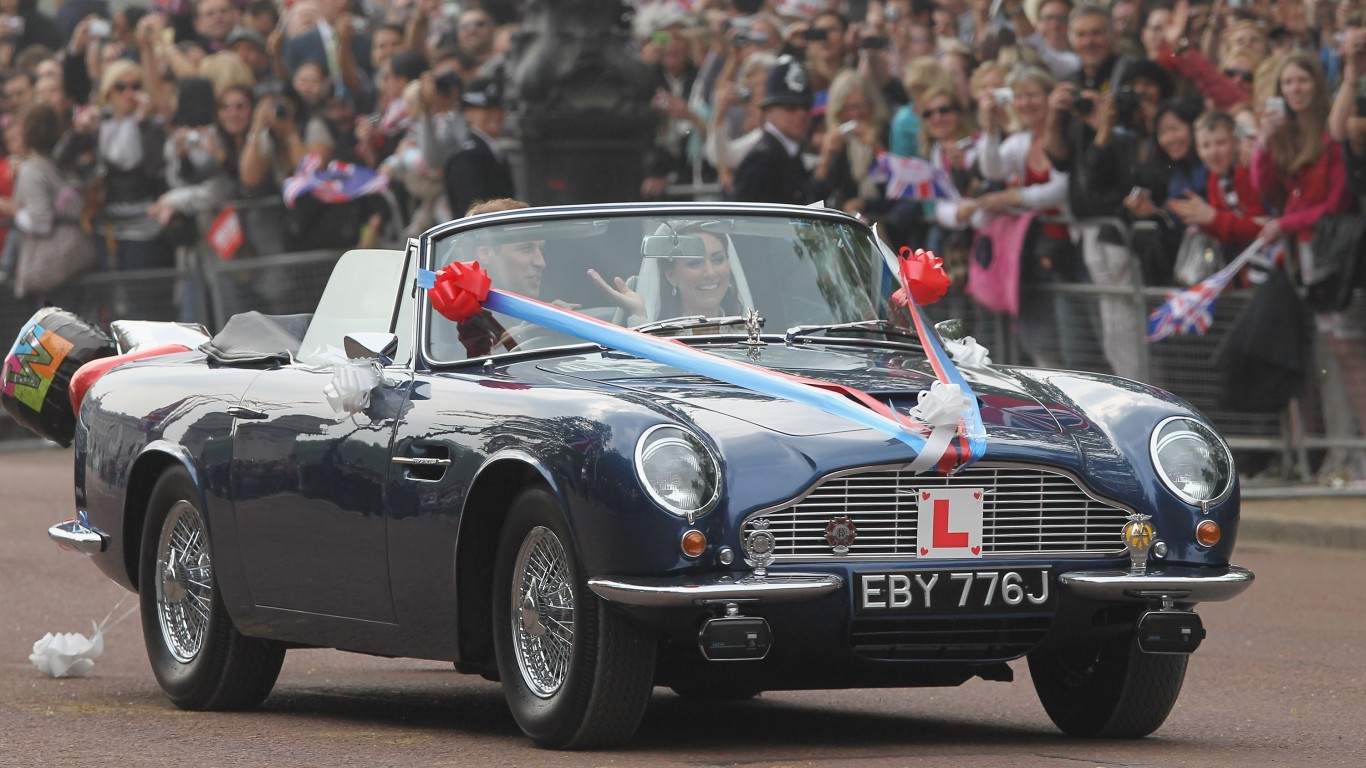
2011
> Event: Marriage of Prince William and Catherine Middleton
Prince William, second in the line of succession after his father, Prince Charles, married Catherine Middleton in April of 2011. The two had been engaged in Kenya the previous year. The engagement ring Will gave Catherine had belonged to his mother, Princess Diana. The pair work for the monarchy fulltime and often take part in state visits with visiting dignitaries in the U.K. and abroad. William will likely become king after his father.
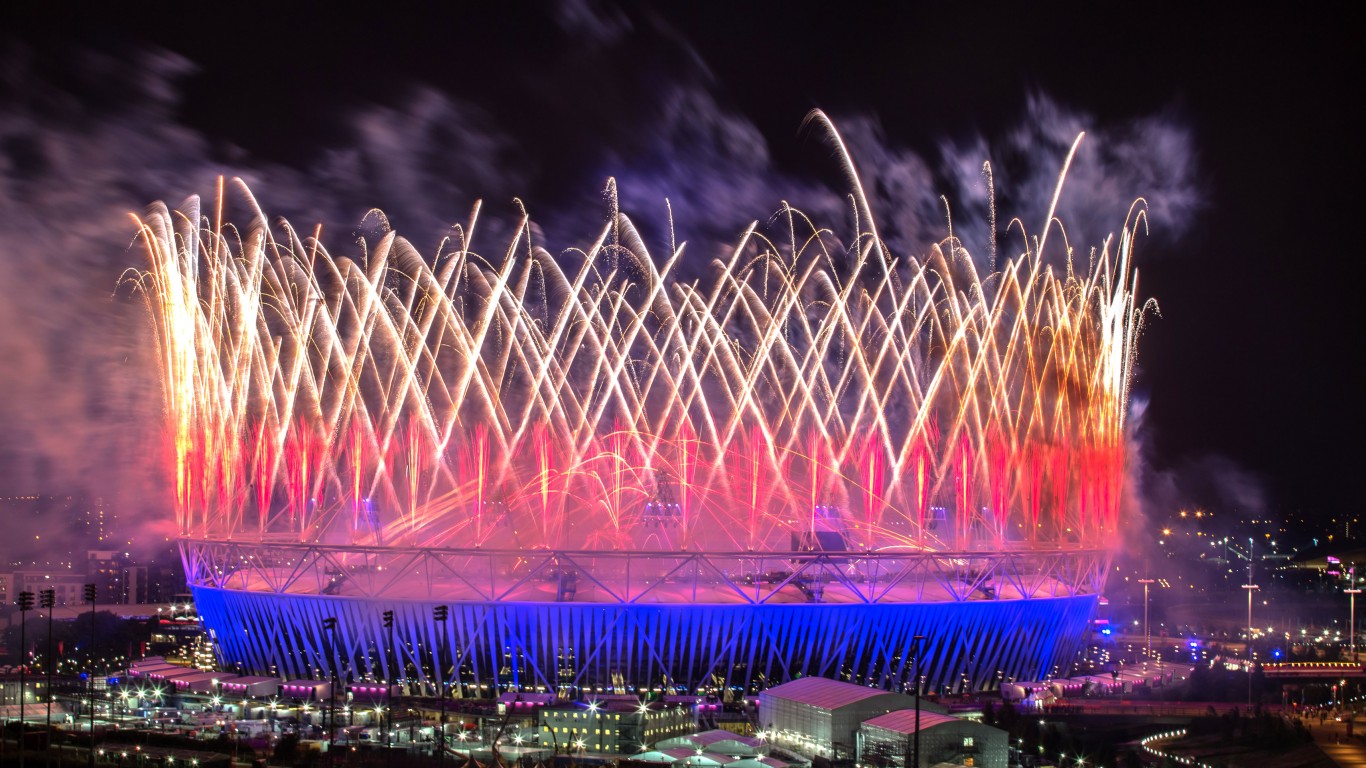
2012
> Event: Summer Olympic Games in London
In 2012, London hosted the Summer Olympic Games for the third time, after 1908 and 1948. Queen Elizabeth officially opened the games and starred in two short comic films as herself beside Daniel Craig as James Bond and Rowan Atkinson as Mr. Bean. It was actually the second Olympic Games personally opened by the Queen, the first having been in Montreal in 1976.
[in-text-ad]
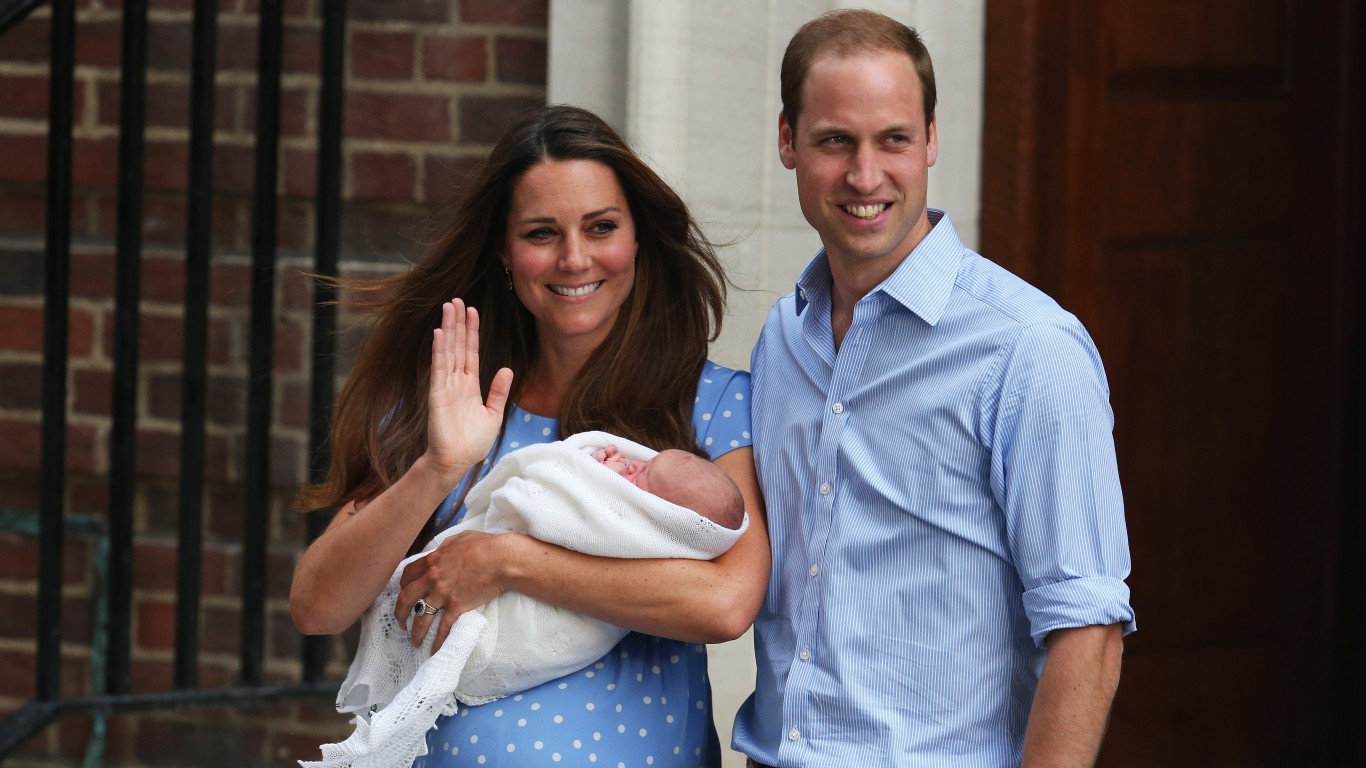
2013
> Event: Birth of Prince George
Prince George, born July 22, 2013, is the first son of Prince William and Catherine Middleton. George is currently third in the line of succession and will likely take the throne after his father. He made his first public appearance in 2015, and has already started to accompany his parents on diplomatic trips — meeting Barack and Michelle Obama at the age of three, for instance.
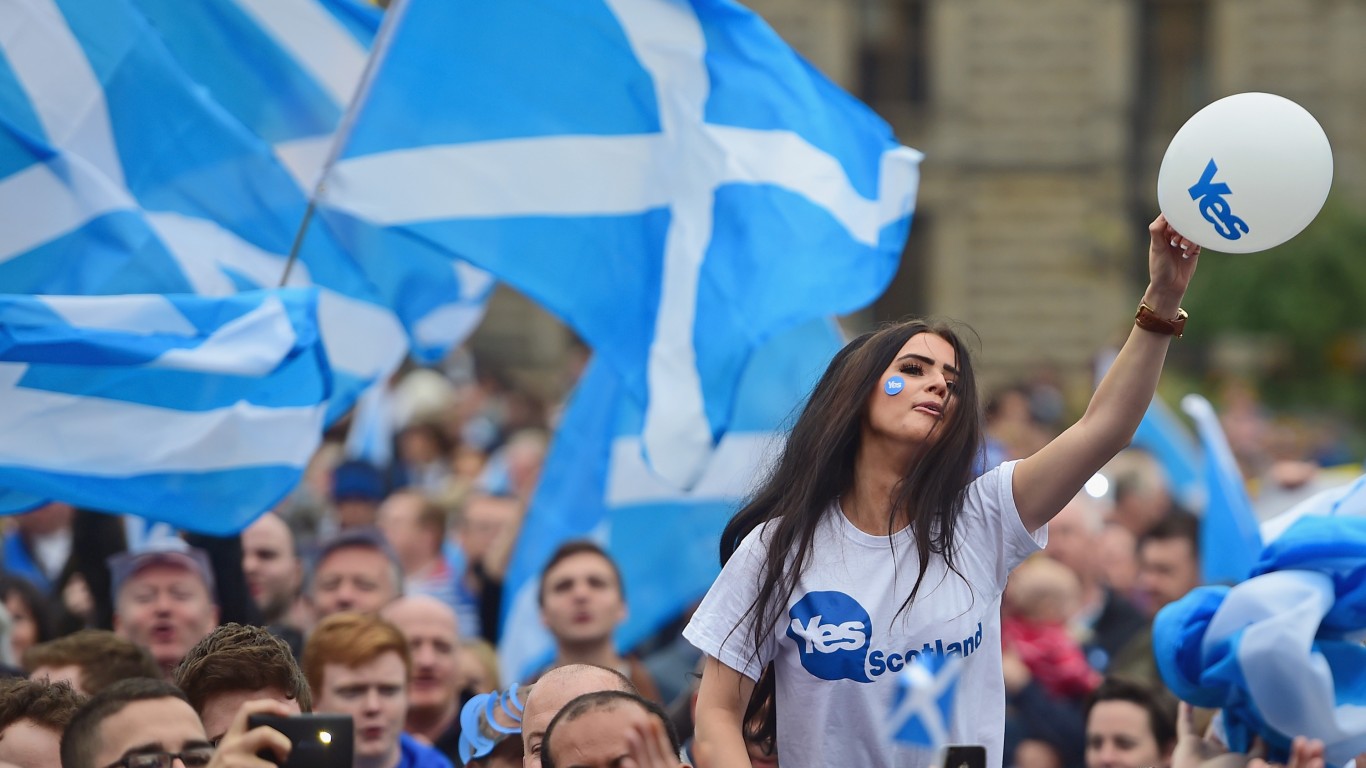
2014
> Event: Failure of Scottish independence referendum
In 2014, Scottish voters went to the polls to answer the question “Should Scotland be an independent country?” Some 55.3% voted “No” and 44.7% said “Yes.” With over 84% turnout, the election had one of the highest recorded rates of voter participation in the history of the United Kingdom. While that seemed to settle the question for the moment, the U.K.’s decision to leave the European Union in 2016 has reignited the debate. In 2013, the Queen had officially given her approval for the initial referendum to take place.
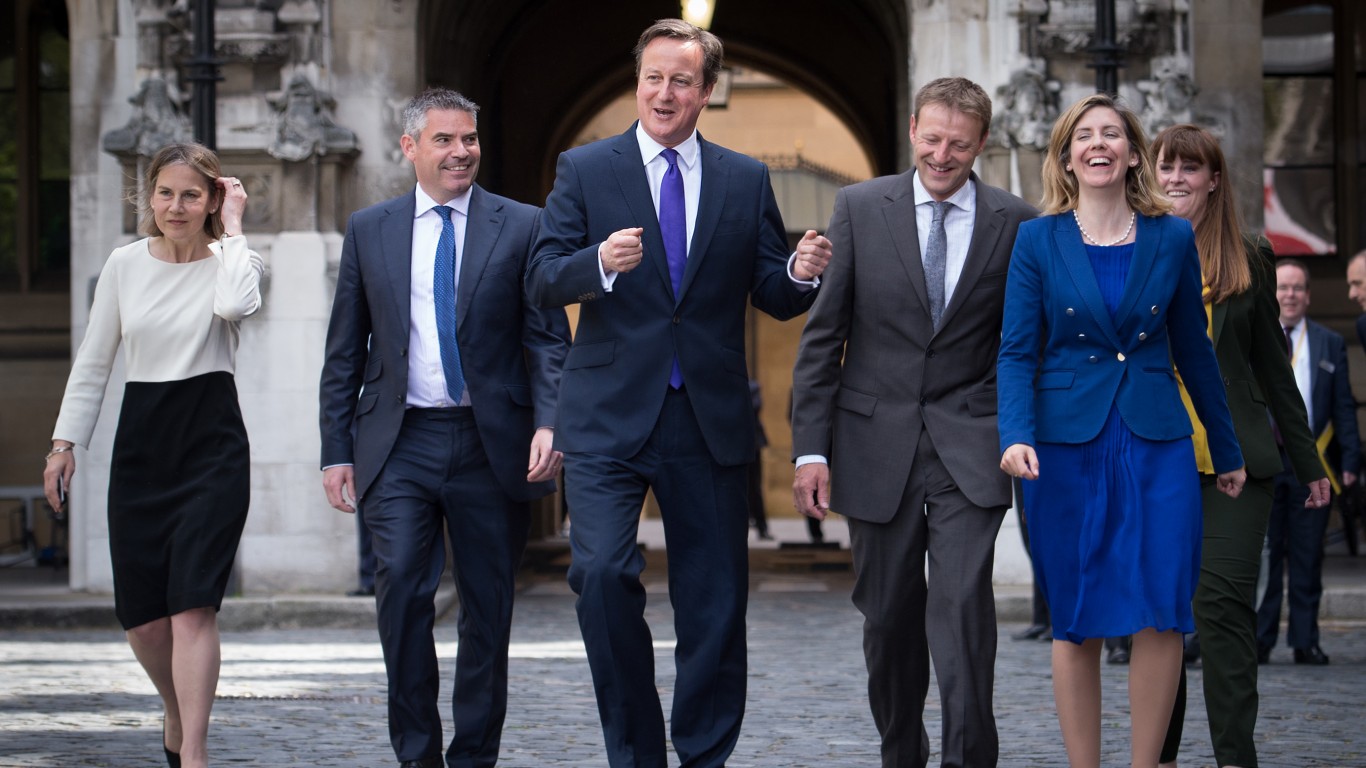
2015
> Event: Conservative Party domination
In the 2015 general election, the Conservative Party came out ahead of its rival Labour Party and maintained control of the government. Leading up to the election many experts underestimated the level of support for the Conservatives. Conservative David Cameron became prime minister in 2010, remaining in office until he was succeeded by Theresa May in 2016.
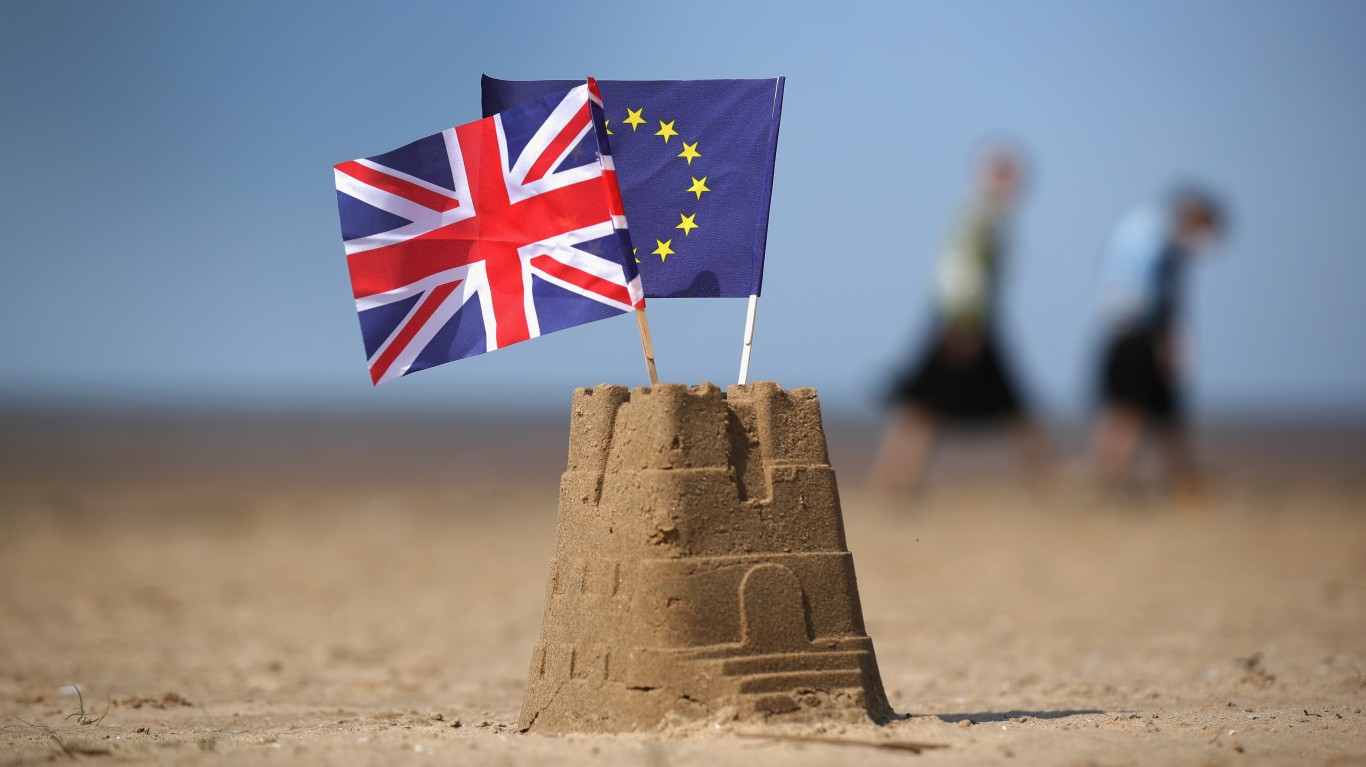
2016
> Event: Passage of “Brexit”
In 2016, citizens of the United Kingdom went to the polls and narrowly voted to take their nation out of the European Union. After the result, David Cameron, who had called for the referendum apparently believing that it had no chance to succeed, resigned as prime minister and Theresa May took over. On January 31, 2020, the United Kingdom officially withdrew from the European Union after several years of planning and negotiating with the rest of the EU. The Queen gave her royal assent to the bill that triggered the U.K.’s withdrawal.
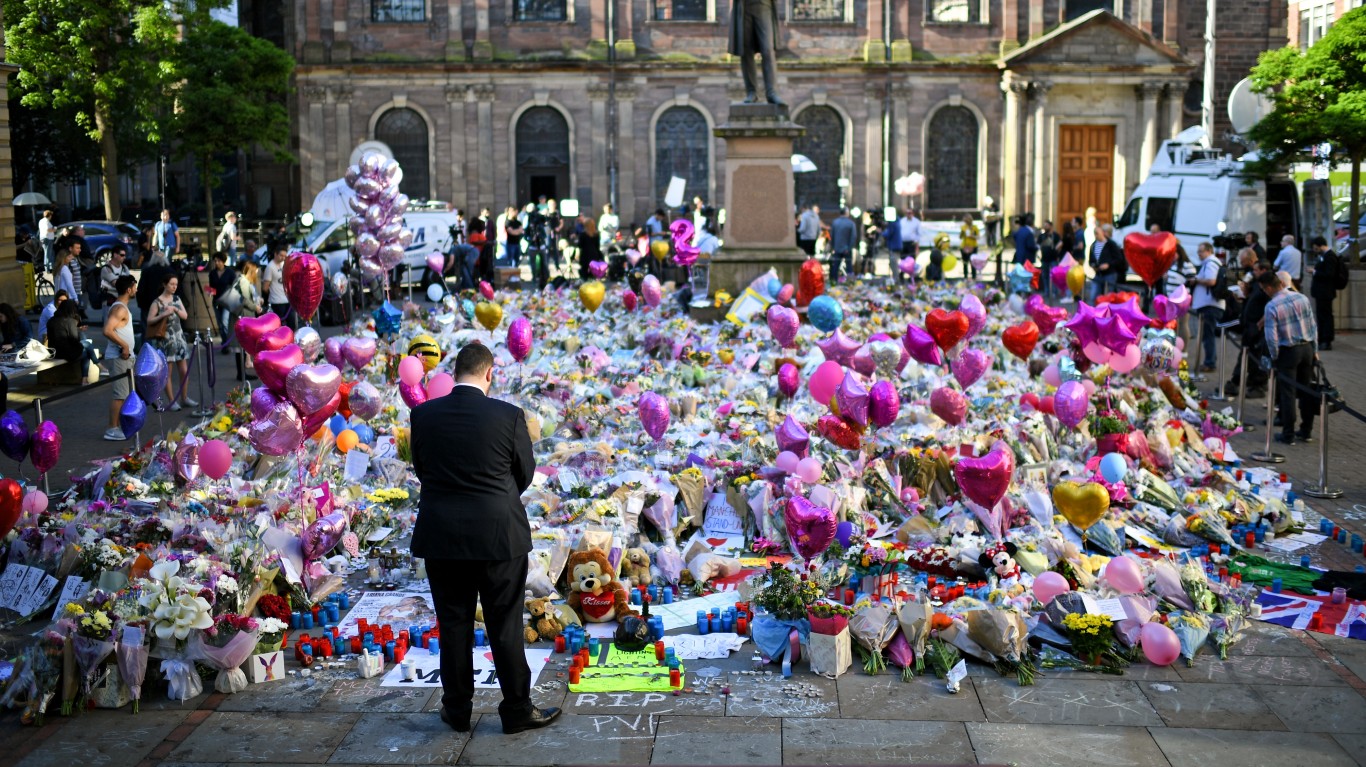
2017
> Event: Terrorist attacks
In 2017, the United Kingdom saw a string of terrorist attacks beginning when a man drove a car across Westminster Bridge in London, killing four pedestrians and injuring several more. A month later, 22 were killed when a man detonated a suiсide bomb at an Ariana Grande concert in Manchester. Throughout the year, several other attacks involving automobiles and bombs happened in the country. Several citizens were awarded honors by the Queen for their bravery during the attacks.
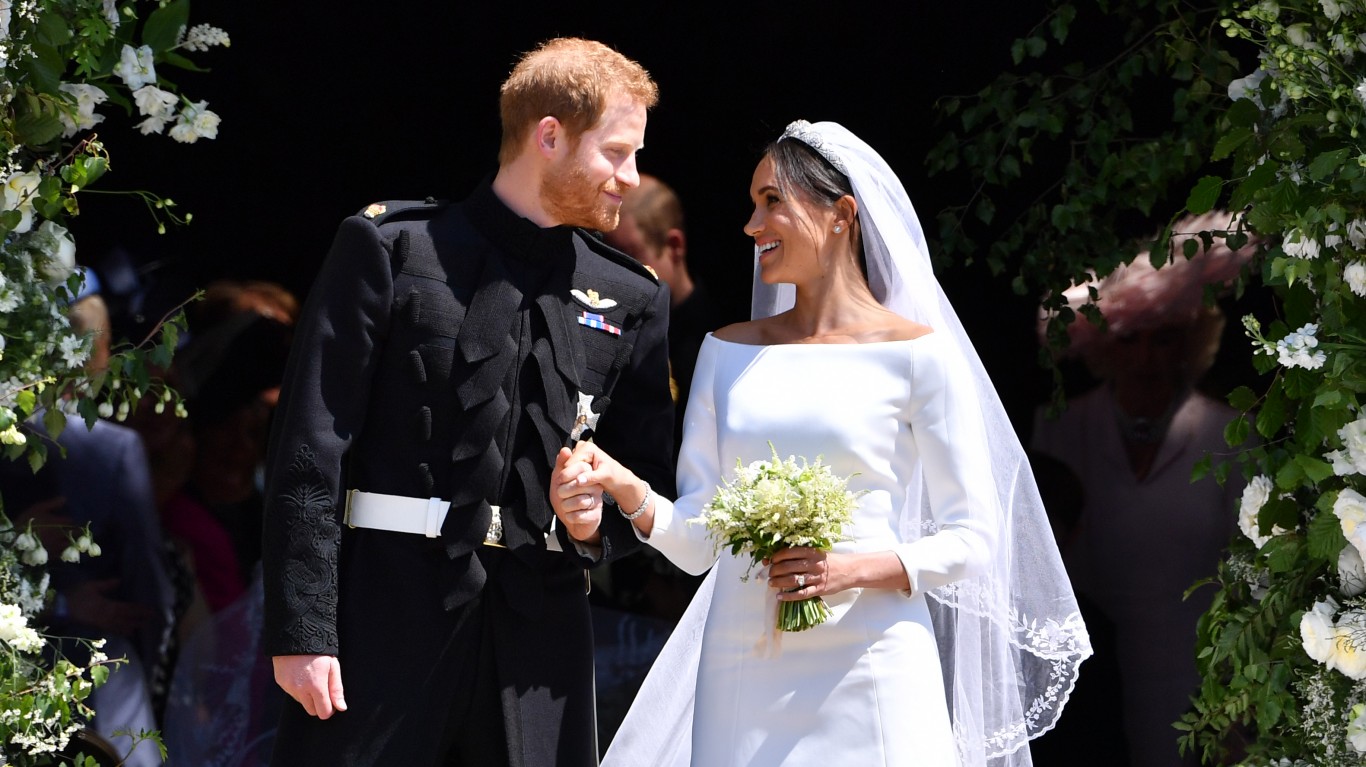
2018
> Event: Marriage of Prince Harry and Meghan Markle
In 2017, Prince Harry married American actress Meghan Markle, known for her role on the American TV series “Suits.” Officially known now as the Duchess of Sussex, she retired from acting upon marrying Harry. As a divorced woman of color, she has been controversial in the U.K., with some citizens embracing her as a face of the future while others react negatively. In 2020 the couple stepped down as senior members of the royal family and moved to California, where they are doing charity work and considering business opportunities. They have two children, Archie and Lilibet.
[in-text-ad-2]
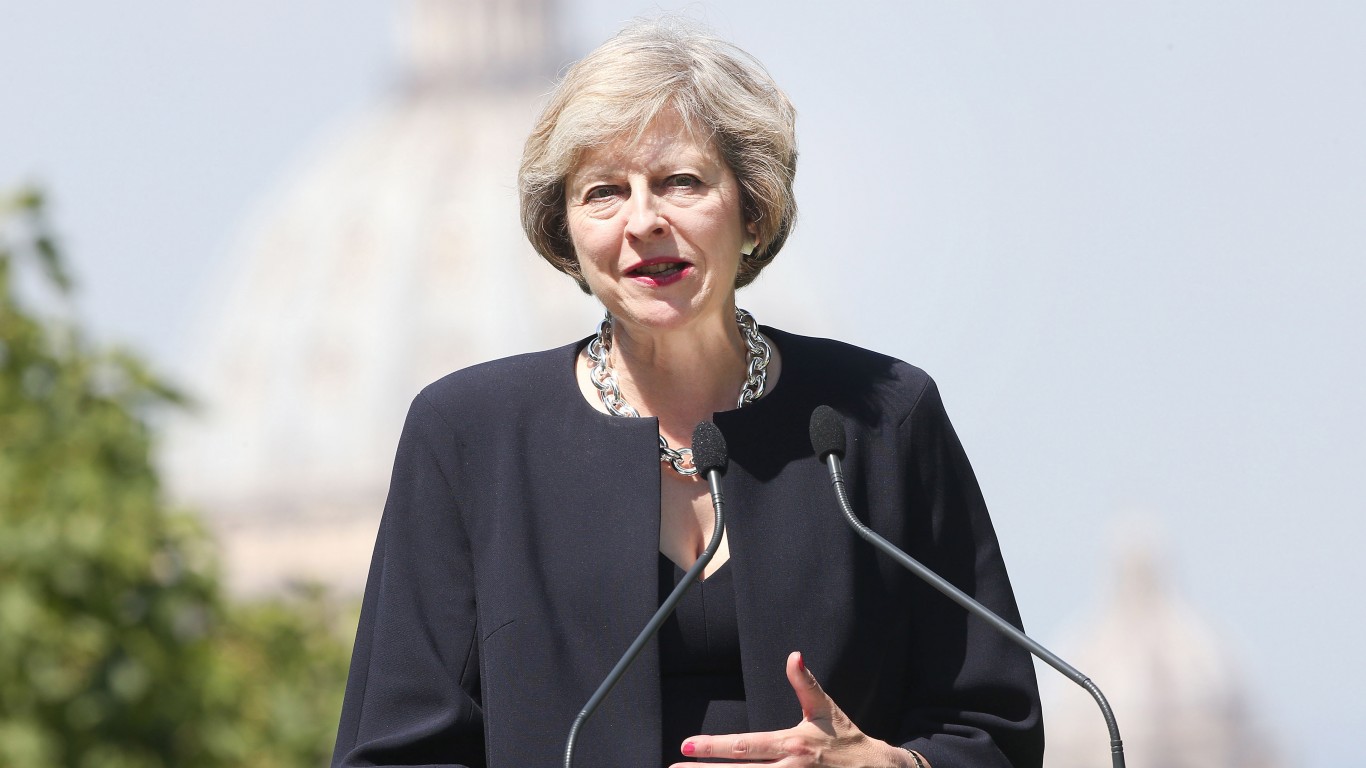
2019
> Event: Resignation of Theresa May
Theresa May was responsible for carrying out Brexit negotiations with the European Union and helped to eventually reach the Brexit withdrawal agreement. However, she decided in March 2019 that she would not be leading the United Kingdom to the next stage of Brexit negotiations. She officially tendered her resignation to the Queen on July 24, 2019, and was succeeded by Boris Johnson.
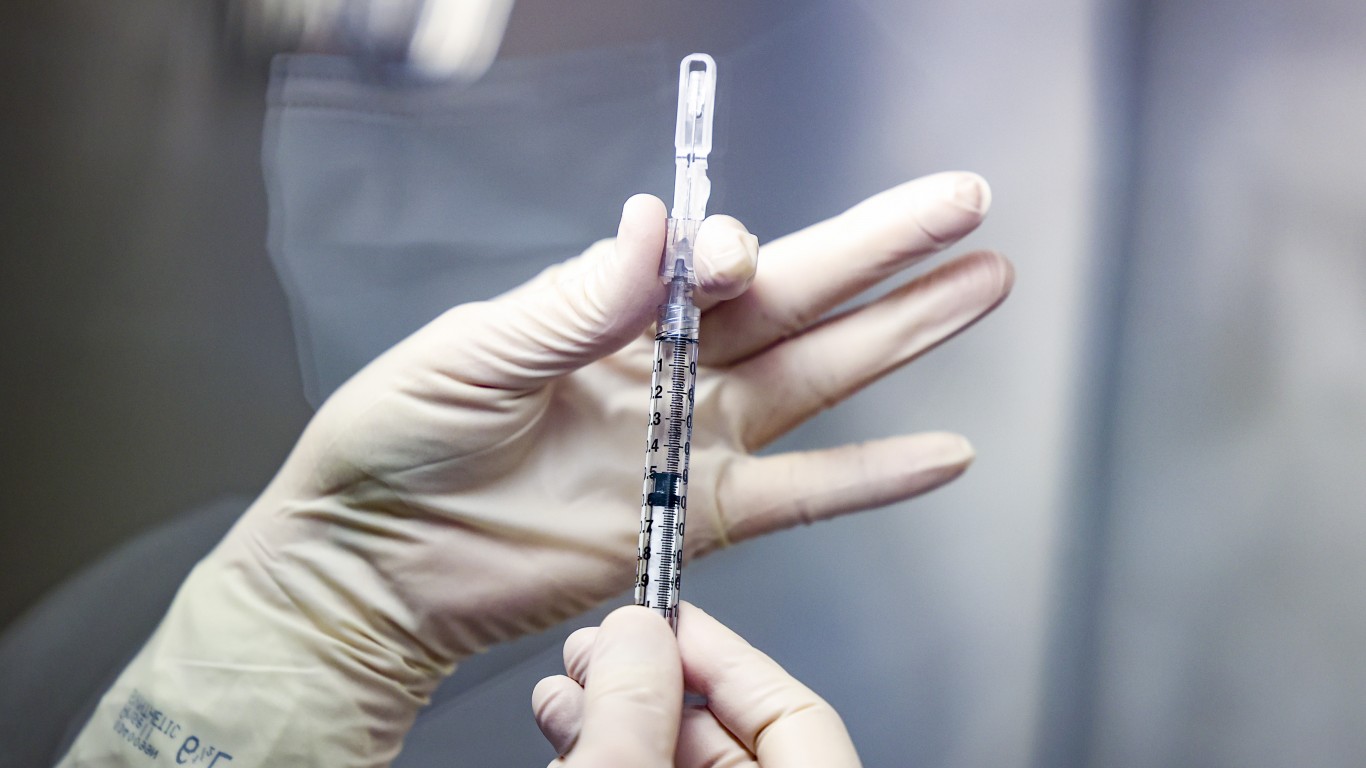
2020
> Event: Appearance of COVID-19
Covid-19 affected everyone’s life, including that of the Queen. She has been witnessed wearing a facemask and social distancing throughout the pandemic. The Queen and her husband, the since-deceased Prince Philip, were among the first Britons to get vaccinations, receiving their first doses in January 2021.
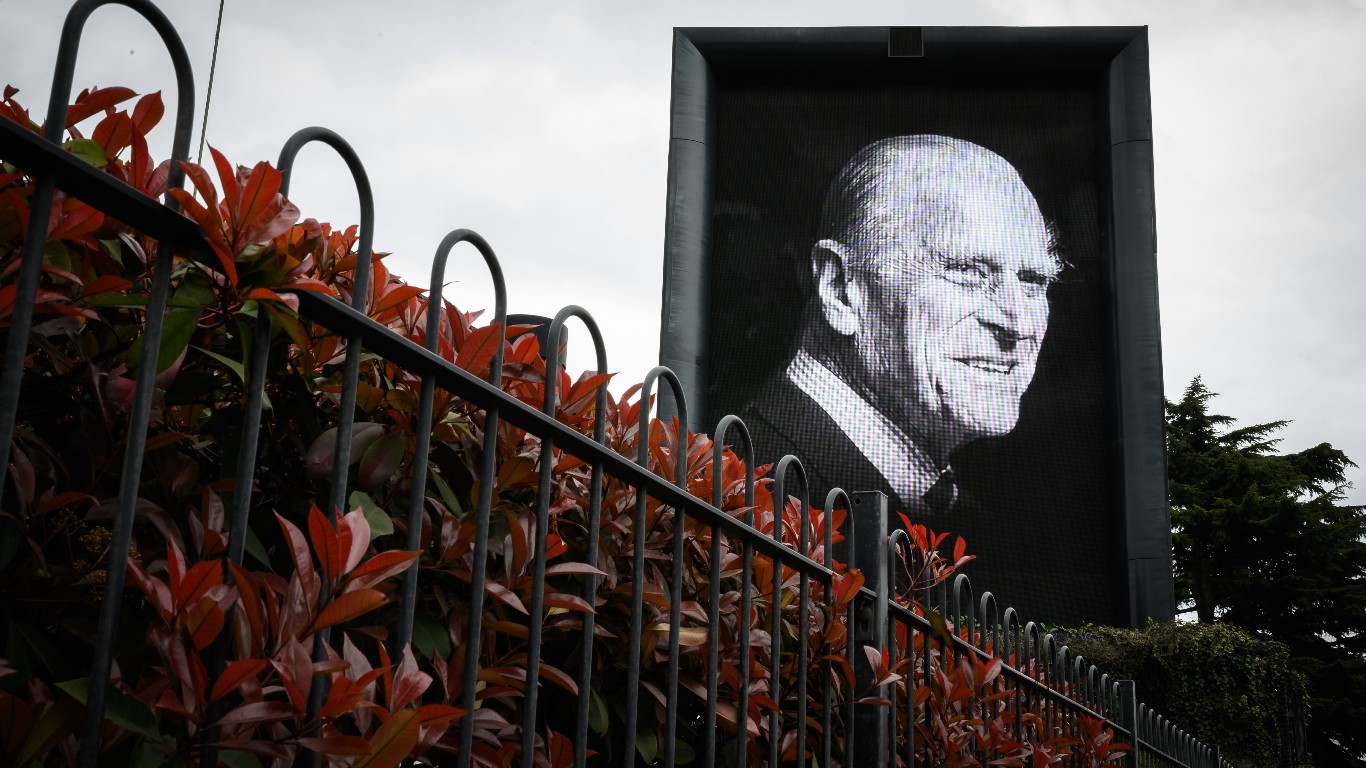
2021
> Event: Death of Prince Philip
Prince Philip, Duke of Edinburgh, passed away on April 9, 2021, at the age of 99. The prince and Elizabeth had been married for over 70 years, since 1947 — five years before she took the throne. Philip was born in Greece in 1921 and was a member of both the Greek and Danish royal families. He died of natural causes at Windsor Castle, two months before his hundredth birthday.
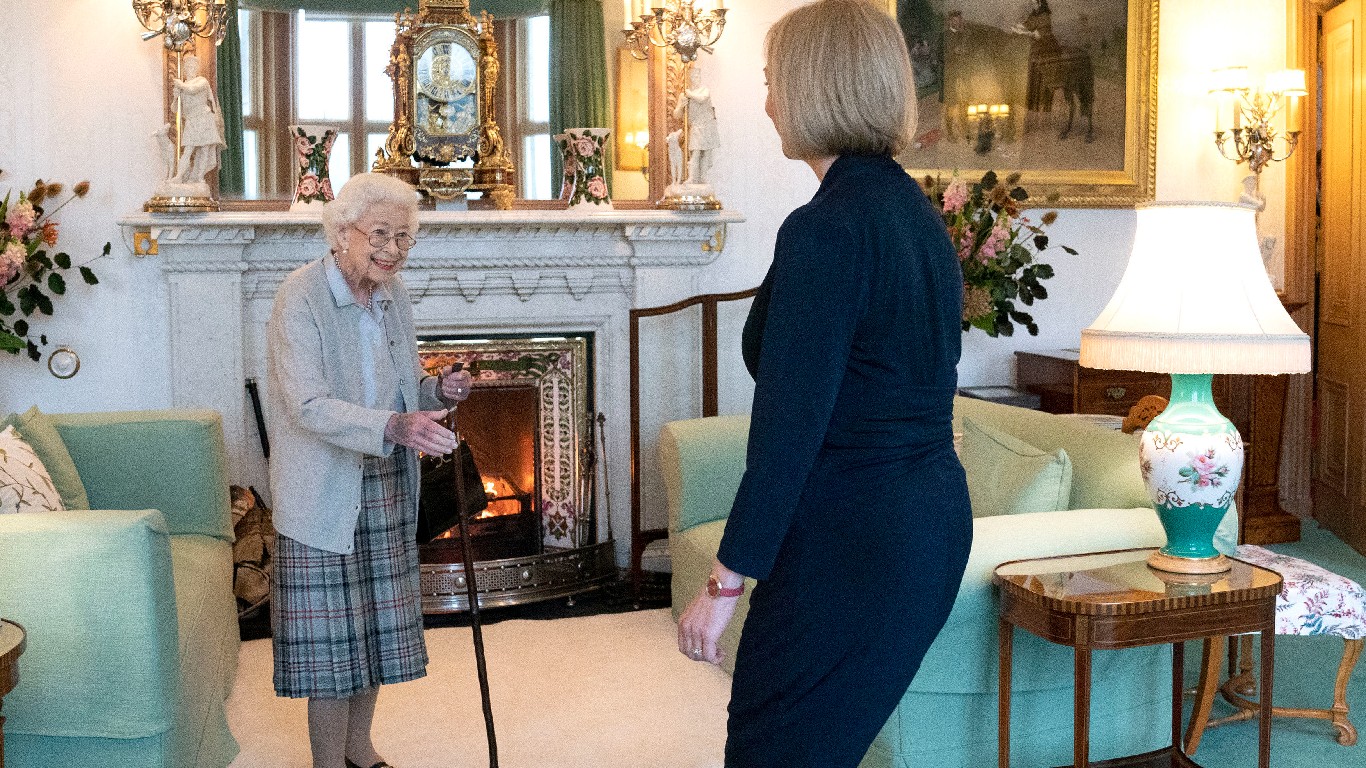
2022
> Event: Death of Prince Philip
The Queen’s last official duty – two days before she died – was inviting the newly elected leader of the Conservative Party, Liz Truss, to become prime minister and form a new government.
Are you ahead, or behind on retirement? For families with more than $500,000 saved for retirement, finding a financial advisor who puts your interest first can be the difference, and today it’s easier than ever. SmartAsset’s free tool matches you with up to three fiduciary financial advisors who serve your area in minutes. Each advisor has been carefully vetted and must act in your best interests. Start your search now.
If you’ve saved and built a substantial nest egg for you and your family, don’t delay; get started right here and help your retirement dreams become a retirement reality.
Thank you for reading! Have some feedback for us?
Contact the 24/7 Wall St. editorial team.